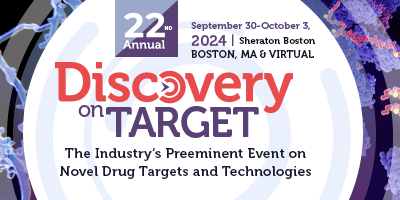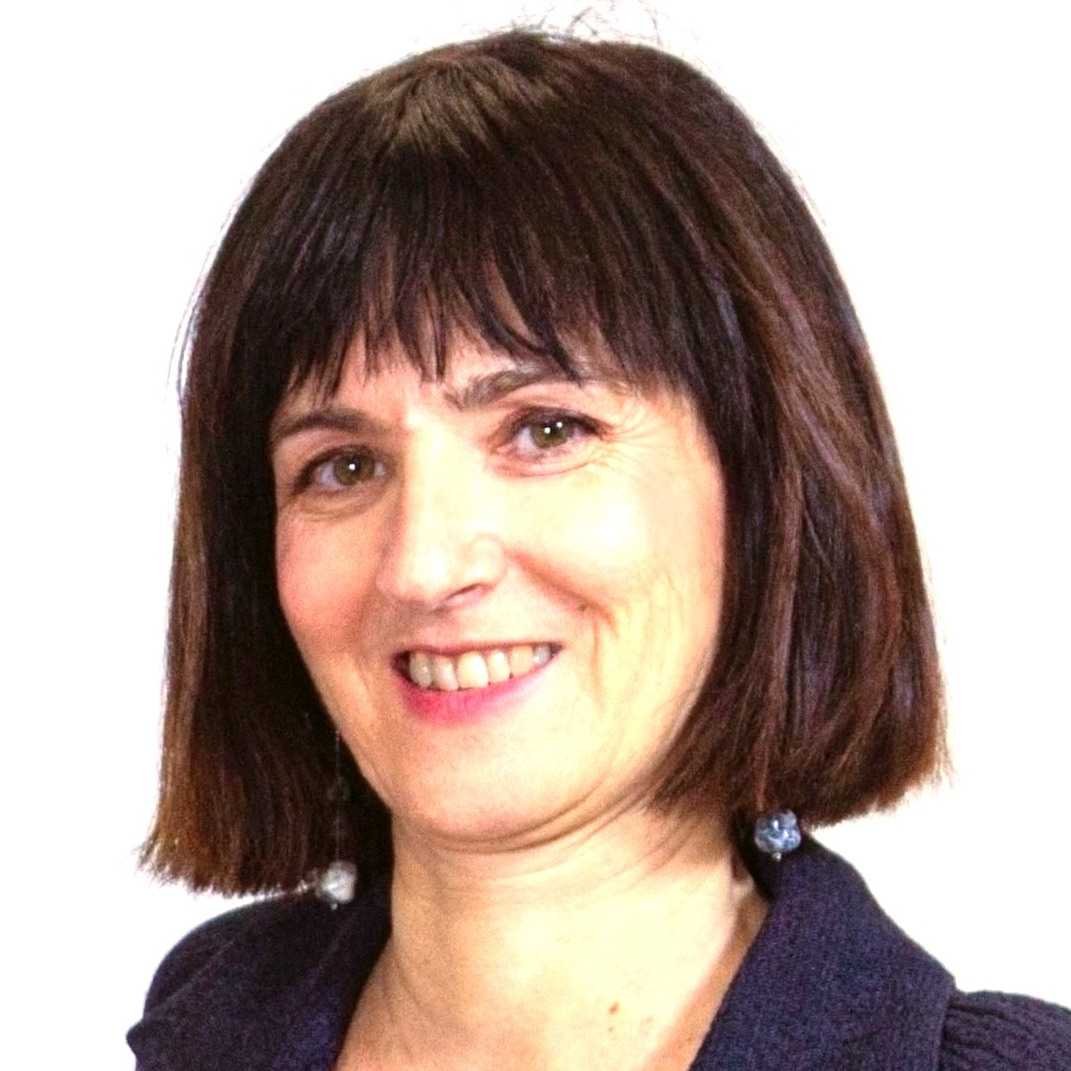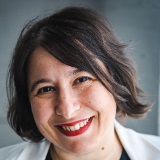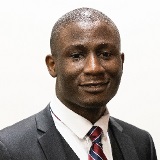2024年的演讲嘉宾资讯
Speaker Biographies
Filter by:
Mikail Abbasov, PhD, Assistant Professor, Chemistry and Chemical Biology, Cornell University
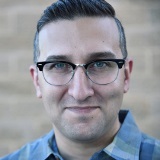
Mikail earned his A.S. in Cell Biology and B.S. in Biochemistry from West Texas A&M University. He began his graduate research at the Killgore Research Center under Gene Carlisle, studying carbon nanotube and dye-doped liquid crystals for holographic data storage and nonlinear optics. During his Ph.D. at Texas A&M University with Daniel Romo, Mikail worked on the total synthesis of natural products and the development of organocatalytic cascades. As a Hewitt Foundation for Medical Research fellow at the Scripps Research Institute with Benjamin Cravatt, Mikail identified protein-altering mutations and critical polymorphisms in endocannabinoid serine hydrolases using activity-based chemoproteomics. His later work focused on profiling lysine-reactive electrophiles, revealing numerous druggable targets in human cancer and immune cells. Mikail leads a highly interdisciplinary research program at Cornell University, spanning expertise in the total synthesis of complex bioactive natural products, targeted modulation of protein function, activity-based proteomics, and functional genomics. His laboratory aims to redefine the boundaries of druggable targets within the human disease proteome by harnessing chemical reactivity and structural complexity of bioactive natural products and elaborate small molecules, coupled with advanced technological innovations in mass spectroscopy.
Mohamed Abouzleikha, VP & Head, Artificial Intelligence Product Devevlopment, X-Chem
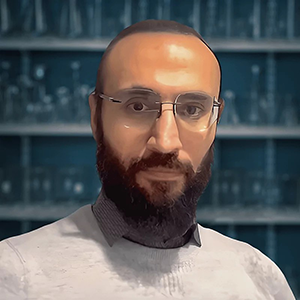
Mohamed AbouZleikha is an accomplished professional in the field of artificial intelligence (AI) and machine learning, currently serving as the VP and head of AI product development at X-Chem in the U.K. As the former CTO and co-founder of Glamorous AI, he played a pivotal role in spearheading the development of an innovative AI platform dedicated to drug discovery. His diverse expertise encompasses leadership positions, notably as a senior data science manager at Flit Technologies, focusing on predictive analytics for trip management, and roles at Moodagent, where he successfully engineered end-to-end recommendation systems for the music industry. Prior to his industry roles, Mohamed served as a postdoctoral research fellow at Aalborg University and earned a Ph.D. in computer science, contributing significantly to the field with several publications and patents.
Kay Ahn, PhD, CSO & Co-Founder, ReAx Biotechnologies

Kay Ahn, Ph.D. is CSO and a Co-founder of ReAx Biotechnologies. Prior to ReAx, she served as CSO at Kojin Therapeutics. Before Kojin, she was the Global Head of Molecular & Cellular Pharmacology at the Janssen Pharmaceutical Division of Johnson and Johnson Company overseeing three sites and, just prior to that, she held positions of increasing responsibilities over 20+ years at Pfizer R&D. Throughout her industry career, she has been especially instrumental in advancing covalent inhibitors and first-in-class targets in drug discovery and development efforts and has contributed to multiple investigational new drugs entering clinical trials. Dr. Ahn was an NIH post-doctoral fellow with Professor Author Kornberg in the Biochemistry Department at Stanford University. She was a postdoctoral fellow with Professor Judith Klinman in the Chemistry Department at University of California at Berkeley after receiving her Ph.D. in Chemistry from the Ohio State University. Dr. Ahn has contributed to 56 publications of which she is corresponding author for 23.
Barak Akabayov, PhD, Professor, Department of Chemistry, Ben Gurion University of the Negev
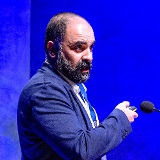
Barak Akabayov is an Associate Professor in the Department of Chemistry at Ben-Gurion University of the Negev. He holds a Ph.D. in Structural Biology from the Weizmann Institute of Science and completed postdoctoral research at Harvard Medical School. His research focuses on structural biology, biophysics, and molecular pharmacology, contributing to understanding DNA replication and protein translation. Akabayov’s lab also extends to targeting RNA, cheminformatics, and the application of machine learning in biochemical research, reflecting a multidisciplinary approach to address complex biological problems.
Samantha J. Allen, PhD, Scientific Director, High Dimensional Biology & Cellular Pharmacology, Janssen R&D LLC

I'm currently a Director in the Therapeutics Discovery team at Janssen, working across the drug discovery portfolio. My team builds and implements cellular assays with a particular emphasis on high-content approaches to identify and differentiate molecules. Before joining Janssen in 2015, I spent 7+ years at Merck in the Structural Biology and Screening and Protein Sciences teams. Prior to joining Merck, I conducted postdoctoral work on chemokine receptors at UC-Berkeley and UCSD.
Angelo Andres, Senior Scientist, Chemical Biology, AstraZeneca Pharmaceuticals
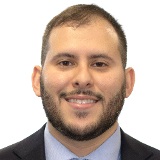
Angelo Andres is a Senior Scientist within the Chemical Biology & Proteomics group at AstraZeneca. Before embarking on his scientific journey he served in the GWOT with the U.S. Army. He then earned a PhD in Medicinal Chemistry from The University of Kansas where he specialized in the development of cellular probes and assays to study live cell target engagement. At AstraZeneca he generates synthetic probes and applies proteomics to support drug discovery programs across multiple therapeutic modalities spanning small molecules, degraders, and cell therapies.
Allen Annis, PhD, Independent Consultant, former SVP Research, Aileron Therapeutics

Allen Annis, Ph.D., is currently an independent consultant to the biotech industry. Most recently, Dr. Annis served as Senior Vice President for Research, at Aileron Therapeutics Inc. Prior to Aileron, Dr. Annis was Vice President of New Technologies at NeoGenesis Pharmaceuticals, Inc., where he co-developed its core drug discovery platform, the Automated Ligand Identification System (ALIS), a high-throughput technology based on affinity selection-mass spectrometry to measure protein-drug interactions. In 2005, Schering Plough acquired NeoGenesis to gain exclusive access to ALIS. After the acquisition Dr. Annis continued with Schering for two years as Director of Technology Development before joining Aileron. Schering Plough has since been acquired by Merck, where ALIS is still used for drug discovery and development. Dr. Annis holds a M.A. and Ph.D. in chemistry from Harvard University, and a B.S. in chemistry from Georgia Institute of Technology.
Philippe Archambault, Application Scientist, Chemical Computing Group
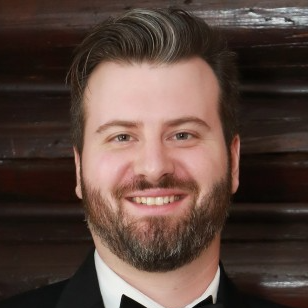
Philippe Archambault began internship at Chemical Computing Group (CCG) through a Mitacs scholarship program in September 2020. Immediately after his internship ended, he took a full-time position at CCG as an applications scientist while completing his PhD in Chemistry at Concordia University under the supervision of Profs. Heidi M. Muchall and Gilles H. Peslherbe. At CCG, he has been focusing most of his work on biologics and exploring various nucleic acids topics.
Bekim Bajrami, PhD, Senior Scientist, Chemical Biology and Proteomics, Biogen, Inc.
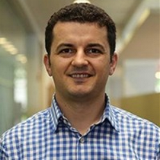
Bekim Bajrami is a Senior Scientist within Chemical Biology and Proteomics group at Biogen. His work evolves around the development of proteomics and chemoproteomics assays with a goal to support mechanism of action studies, target identification, and target engagement for multiple kinase programs. Bekim received a BS in Biomolecular sciences from Central Connecticut State university and subsequently obtained a PhD in Chemistry from University of Connecticut.
Injin Bang, PhD, Postdoctoral Researcher, Infectious Diseases & Immunology, New York University

Injin Bang is a postdoctoral fellow at NYU Langone Health, currently focusing on the development of potentially therapeutic antibodies targeting cancer drug targets under Dr. Shohei Koide. She received her Ph.D. from Seoul National University in 2019 under the mentorship of Dr. Hee-Jung Choi with her thesis in biophysical characterization of Wnt receptor and a GPCR, Frizzled4, in signal activation. Prior to her current role, she conducted research at Columbia University's Dr. Mancia's lab, utilizing cryoEM to elucidate the mechanism of membrane protein enzyme. She joined Dr Koide's lab to conduct more translational research, combining her expertise in structural biology and antibody engineering to develop efficient and safe immunotherapeutics.
Liron Bar-Peled, PhD, Associate Professor, Medicine, Harvard Medical School and Massachusetts General Hospital Cancer Center
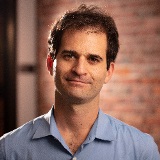
Liron received his Bachelor of Science degree in Biochemistry from the University of Georgia in 2004. Liron received his PhD in Biology from the Massachusetts Institute of Technology, where he used advanced cellular and molecular techniques to uncover how nutrients are sensed by the mTORC1 pathway in the laboratory of David Sabatini. In 2013 as a Damon Runyon Postdoctoral fellow, he joined the laboratory of Ben Cravatt at the Scripps Research Institute to understand how cancer cells respond to oxidative stress. Employing chemical, proteomic and biochemical approaches, Liron revealed new druggable components of the NRF2 antioxidant response pathway uncovering new mechanisms by which NRF2 regulates metabolic pathways. In early 2019, Liron joined the Center for Cancer Research at the Massachusetts General Hospital and the Department of Medicine at Harvard Medical School.
Amir Barati Farimani, PhD, Associate Professor, Machine Learning, Carnegie Mellon University
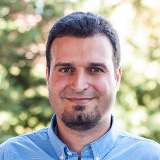
Amir Barati Farimani received his Ph.D. in 2015 in mechanical science and engineering from the University of Illinois at Urbana-Champaign. His Ph.D. thesis was titled “Detecting and Sensing Biological Molecules using Nanopores.” He extensively used atomistic simulations to shed light on the DNA sensing and detection physics of biological and solid state nanopores. Right after that, he joined Professor Vijay Pande’s lab at Stanford. During his post-doc, he combined machine learning and molecular dynamics to elucidate the conformational changes of G-Protein Coupled Receptors (GPCRs). He specifically was focused on Mu-Opioid Receptors to elucidate their free energy landscape and their activation mechanism and pathway. The Barati Farimani’s lab, the Mechanical and Artificial Intelligence laboratory (MAIL), at Carnegie Mellon University is broadly interested in the application of machine learning, data science, and molecular dynamics simulations to health and bio-engineering problems. The lab is inherently a multidisciplinary group bringing together researchers with different backgrounds and interests, including mechanical, computer science, bio-engineering, physics, material, and chemical engineering. The mission is to bring the state-of-the-art machine learning algorithm to mechanical engineering. Traditional mechanical engineering paradigms use only physics-based rules and principles to model the world, which does not include the intrinsic noise/stochastic nature of the system. To this end, the lab is developing the algorithms that can infer, learn, and predict the mechanical systems based on data. These data-driven models incorporate the physics into learning algorithms to build more accurate predictive models. They use multi-scale simulation (CFD, MD, DFT) to generate the data.
David Bearss, PhD, Co-Founder & CEO, Halia Therapeutics

Dr. David J. Bearss is a serial entrepreneur and pharmaceutical innovator with over two decades of experience spanning academic and industrial roles. His expertise is at the intersection of structure-based small-molecule drug discovery and the utilization of genetic model systems for drug discovery. Dr. Bearss has had significant achievements throughout his career with a strong foundation in translational research focused on drug advancement to the clinic and using genetic markers for predictive drug sensitivity. Notably, Dr. Bearss has discovered 16 compounds that have successfully navigated from discovery in the lab to IND into clinical development. His entrepreneurial experience is evident through his roles as the co-founder of eight biotechnology companies and his commitment to advancing novel drug development. Before taking on his role as Chief Scientific Officer at Halia in January 2021 and assuming the CEO position in March 2022, Dr. Bearss served as the CEO of Tolero Pharmaceuticals, an organization later acquired by Sumitomo Dainippon Pharma in 2017. During his tenure as CSO at Montigen Pharmaceuticals, followed by its acquisition by SuperGen Inc., and as CSO of SuperGen, he continued to develop his expertise in drug discovery and early clinical research. Dr. Bearss's academic career was highlighted in his founding role as the Center for Investigational Therapeutics Co-Director at the Huntsman Cancer Institute. In addition, he held academic positions as an Associate Professor in the Department of Oncological Sciences at the University of Utah and as an Associate Professor of Physiology and Developmental Biology at Brigham Young University. Dr. Bearsshas won several awards for his entrepreneurial and scientific achievements, including the Utah Governor's Medal of Science and BIO Utah Entrepreneur of the Year.
Michael Bellucci, Sr Dir of R&D, XtalPi Inc
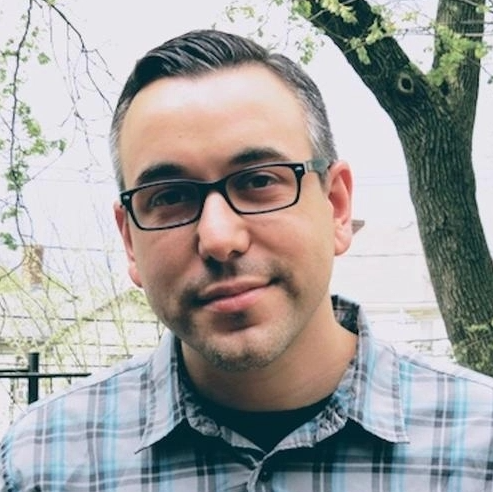
Dr. Michael Bellucci is a Senior Director at XtalPi, Inc. where he leads a research team that develops algorithm technologies for solid form development and risk assessment as well as drug discovery. Prior to his current role, he was research scientist at MIT in the Novartis-MIT Center for Continuous Manufacturing where he led many research projects in collaboration with pharmaceutical companies. His solid-state research has focused on combining computational chemistry and A.I./machine learning methods to study processes and properties associated with molecular crystals, such as solubility, morphology, surface adsorption, polymorphic transitions, and crystallization. Michael is a theoretical and computational chemist by education and holds a Ph.D. in chemistry from Boston University.
Svetlana Belyanskaya, PhD, former Vice President, Biology, Anagenex

Dr. Belyanskaya is an accomplished scientific leader in the field of small molecule drug discovery and an expert in DNA encoded library technology. She has been an instrumental player in the discovery of the first DEL-sourced molecule to progress into clinical trials. For more than 20 years she has been working in the DEL field and has made a significant contribution to the development of this platform at Praecis Pharmaceuticals, GlaxoSmithKline, Anagenex Inc. She is passionate about DEL platform development and constantly publicizing this technology at scientific conferences and seminars. She has multiple publications in the field of DEL technology, has taught short courses on DEL, and works as a consultant for startup companies. Dr. Belyanskaya held senior positions in the leading cross-functional team at GSK and has served as a Vice President of Biology at Anagenex Inc. Currently, she is a co-founder and a member of the executive team at DEL Source Inc. (LinkedIn).
Jean Bernatchez, Sr Scientist & R&D Grp Leader, In Vitro Pharmacology, Eurofins Discovery
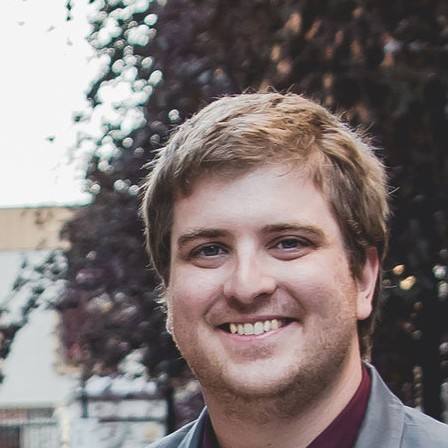
Dr. Bernatchez is a Senior Scientist and the San Diego R&D Group Leader at Eurofins Discovery, and is responsible for developing the company’s portfolio of biochemical and cell-based assays in the areas of emerging drug targets and targeted protein degradation. Jean has extensive biochemical and cell-based assay development experience across multiple discipline areas in infectious diseases and oncology. Prior to joining Eurofins Discovery, Jean was a postdoctoral scholar at the Skaggs School of Pharmacy and Pharmaceutical Sciences at the University of California, San Diego, where he developed drug screening assays and conducted high-throughput screening campaigns to identify compounds with activity against Zika virus, SARS-CoV-2, the tropical parasites Trypanosoma cruzi and Leishmania donovani, glioblastoma and meningioma. In over 10 years of work in the drug discovery field, Dr. Bernatchez has published over 30 scientific articles and book chapters in the areas of antivirals, antiparasitics and anticancer agents. He holds a Bachelor of Science degree in Biochemistry (First-Class Honors) and a Doctor of Philosophy degree in Biochemistry (Chemical Biology Interdepartmental Graduate Program), both from McGill University in Montreal, Quebec, Canada.
Sarah Bernhard, Laboratory of Susrata Majumdar, Center for Clinical Pharmacology, Washington University School of Medicine

Sarah Bernhard is a fourth-year neuroscience doctoral student at Washington University in St. Louis in the Che-Majumdar labs. She received a bachelor’s degree from Carnegie Mellon University in Pittsburgh where her undergraduate research focused on behavioral pharmacology. Her graduate research is focused on understanding key structural interactions of ligands at the delta opioid receptor and how these interactions impact signal transduction. Through her work, she has solved countless cryoEM structures at the delta opioid receptor to understand how peptides, small molecules, antagonists, and allosteric modulators engage the receptor and lead to their specific pharmacological profiles. She is actively engaged in structure-aided drug design with medicinal chemists, computational chemists, and pharmacologists, and mentors both senior and junior investigators in the laboratory. Although she is an early-career researcher, Ms. Bernhard already has nine publications with co-authored publications in Neuron, Nature Chemistry Biology, and J Med Chem, and was awarded the PhRMA predoctoral fellowship. Among other awards, she won first poster prize on her drug discovery presentation from ASPET in 2023, and has won travel awards from CPDA and INRC. She is also an executive student member at Division for Drug Discovery and Development at ASPET.
Shruthi Bharadwaj, PhD, Global Lead, Digital & Analytics, R&D Global Operations, Sanofi

Shruthi Bharadwaj is Global Lead, Digital & Analytics, R&D Global Operations at Sanofi. Until recently she served as the Technical Advisor to the Chief Data and Digital Officer at Novartis. She received her PhD in Biomedical Engineering from the University of Florida and continued her research as a post-doctoral fellow at the MD Anderson Cancer Center. Shruthi has been interested and involved in utilizing AI and machine learning approaches in Pharma. She has a patent that involves machine-learning approach to predict the onset of colon cancer in patients with Inflammatory Bowel Disease. She has won several NIH grants that supported her research in leveraging AI approaches in healthcare. She has published several research articles, book chapters and abstracts that focus on AI approaches in diagnosis and drug development.
Hans-Peter N. Biemann, PhD, Distinguished Scientist, Integrated Drug Discovery, Sanofi

Hans-Peter Biemann has originated innovative discovery programs and applied emerging small molecule technologies during tenures in Genzyme’s and Sanofi’s Drug Discovery units. Contributions on preclinical and clinical agents have included partnerships with academic leaders and start-ups. Working across various disciplines (protein biochemistry, cell biology, structural biology, biophysics), Hans has conducted and led phenotypic, fragment-based, and HTS-based drug discovery. He established productive FBDD, high-res Cryo EM drug design, Affinity Selection Mass Spectrometry over the past 15 years at Sanofi/Genzyme. Prior to joining Genzyme in the 1990s, he completed a post doc in Daniel Koshland’s U.C. Berkeley group and trained in Raymond Erikson’s Harvard group (PhD). His B.S. was earned at Yale.
John W. Blankenship, PhD, Executive Director and Head, Biologics Discovery and Automation, Novartis Biomedical Research

John got his Ph.D. from the Scripps Research Institute in 2003. Since then, John’s research has focused on using display technologies, immune approaches and an array of protein engineering approaches for antibody discovery and bi and multispecific antibody engineering at multiple companies - Genentech, Trubion, Emergent BioSolutions, and Novartis. John leads the global biologics discovery unit at Novartis Biomedical Research, where they use a mix of display and immunization approaches coupled with high throughput screening to find and optimize antibodies for a variety of therapeutic modalities and indications.
Ann Boija, PhD, Vice President, Head of Cancer Biology, Dewpoint Therapeutics
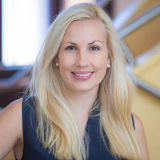
Ann leads the global Cancer Biology team at Dewpoint focusing on advancing condensate science into breakthrough medicines to treat cancer patients. Ann has longstanding expertise in gene control, cancer biology, and condensate biology. Throughout her career she has focused on novel biomedical science that can be translated into medicine to alter the course of cancer and improve human health. Ann has a master’s degree in Biomedical Sciences from Umeå University and a PhD in Biology from Stockholm University, Sweden. She did her postdoctoral training at the Whitehead Institute of the Massachusetts Institute of Technology (MIT). During her time at MIT, she led pioneering research focused on the role of condensates in gene control and cancer therapeutic drug activity.
Kris A. Borzilleri, Principal Scientist, Structural Biology & Molecular Sciences, Pfizer Global R&D, Groton Labs

25+ years of experience within Pfizer Research and Development focusing on target-ligand interactions using a variety of biophysical techniques. The earlier part of my career was spent was largely focused on protein NMR techniques to solve protein structures and evaluate ligand binding. In an effort to provide greater impacts, my efforts turned towards a variety of biosensing techniques (SPR, BLI, SPRm) to access binding interactions for targets across the Pfizer portfolio. With recent technology development, I have been able to apply these biophysical techniques to membrane proteins in the whole cell environment as well as in membrane preparations.
Philip E. Brandish, PhD, Senior Vice President, Immuno-Oncology, Bicycle Therapeutics

Biotech research leader focused on bringing innovative new medicines to cancer patients. Immunology, oncology, and drug discovery subject-matter expert with >20 years' experience across a range of drug modalities and from target ID through clinical POC. Extensive successful track record of building great teams, promoting rigorous science, and delivering on the pipeline. Currently Senior Vice President of immuno-oncology at Bicycle Therapeutics, a platform company focused on constrained peptides. Formerly a Director of Oncology Discovery research at Merck & Co.
Brooke Brauer, PhD, Senior Research Scientist, Mass Spectrometry, AstraZeneca Pharmaceuticals
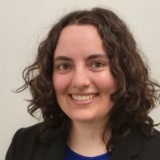
I received my PhD in biochemistry from Dartmouth college in 2022, where I studied phosphatases, proteomics, and phosphoproteomics. I then transitioned into my current role at AstraZeneca, where I have been developing targeted proteomics methods for target profiling and MOA studies to support several projects.
John Brognard, PhD, Senior Investigator, Laboratory of Cellular & Developmental Signaling, National Cancer Institute, National Institutes of Health
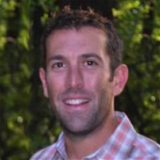
John obtained his PhD from University of California, San Diego in Dr. Alexandra Newton’s laboratory, where he discovered a novel class of phosphatases that directly regulate AKT. John then trained as a postdoctoral fellow in Dr. Tony Hunter’s laboratory at the Salk Institute. He joined the CRUK Manchester Institute as a group leader where his lab focused on identifying mechanisms to promote lung tumorigenesis. John then moved to the NCI and his research is focused on defining novel enzymes that act to suppress or promote tumorigenesis and in some cases can serve as novel targets for therapeutic intervention. The lab has several ongoing collaborations with pharmaceutical companies to investigate novel inhibitors targeting newly identified kinases implicated in cancer.
Dean G. Brown, PhD, Vice President & Head, Chemistry, Jnana Therapeutics

Dean Brown is VP and Head of Chemistry at Jnana Therapeutics. Prior to Jnana, he was Director of Chemistry at AstraZeneca within the Hit Discovery Department, Discovery Science IMED Biotech Unit. He obtained a B.S in chemistry at Abilene Christian University (Abilene, TX) and a Ph.D. at the University of Minnesota (Minneapolis) in organic chemistry. He has over 20 years of experience in industry with AstraZeneca. Dean has been responsible for building many new scientific programs in both neuroscience and infection, several which have resulted in successful transition to clinical trials. His scientific interests are in lead generation, library design, DNA-encoded library screening, synthetic chemistry and applications of computational chemistry. Dean is listed as an author or co-author on more than 60 publications and patent applications in medicinal chemistry and drug design, including granted patents on clinical candidates.
Florence Brunel, PhD, Senior Principal Scientist, Novo Nordisk Inc

Florence was born and raised in France. She obtained a MS from the Ecole Nationale Superieure de Chimie de Montpellier, and then moved to the US. She obtained her Ph.D. with Prof. Arno Spatola at the University of Louisville, where her love of and career in peptides started. She then moved to San Diego to pursue her postdoctoral training with Dr. Phil Dawson at Scripps Research where she continued working with peptides while learning new methodologies such as chemical ligation. Florence then took her interest in turning peptides into drugs to the biotech and pharmaceutical industry at companies like Amylin Pharmaceuticals, Pfizer/CovX and Vertex Pharmaceuticals. Florence is now an employee of Novo Nordisk where her role has evolved into project management of internal projects and external collaborations, as well as identifying new technologies to meet Novo Nordisk’s strategy. Florence remains very active in the peptide community as an elected council member for the American Peptide Society, a board member for TIDES and the elected chair of the 2026 Chemistry and Biology of Peptides Gordon Research Conference.
Malte Buchholz, PhD, Head of Basic Research, Clinic for Gastroenterology, Philipps University Marburg

Malte Buchholz studied Biology at the University of Goettingen, Germany, from 1989 to 1995. He received his PhD title in 1998, again at the University of Goettingen, for a thesis on species barriers in transmissible spongiform encephalopathies. Subsequently, he joined the Gastroenterology Department at the University of Ulm, Germany, as a PostDoc, starting his reasearch interest in gastrointestinal tumors. Since 2006, he is a group leader and associate professor at the Clinic for Gastroenterology of the University of Marburg, Germany. His main research focus is the molecular basis of malignancy in pancreatic tumors as well as development of molecular biology-based approaches for predictive, prognostic and differential diagnostics.
Tauseef Butt, PhD, President & CEO, Progenra, Inc.

Tauseef Butt received his PhD degree in Molecular Biology from The University of Glasgow, Scotland. He was a Staff Fellow at the National Institutes of Health, Bethesda, MD, before joining SmithKline (now GSK) Pharmaceuticals. He serves as President and CEO of Progenra. He was an Adjunct Professor in Biochemistry and Biophysics, at University of Pennsylvania Medical School, Philadelphia, PA. He is also an Adjunct Professor in Biomedical Engineering at Drexel University, Philadelphia. He has been instrumental in raising ~$120 million capital. He is active in numerous national and regional professional organizations, including several dedicated to biotechnology.
Yong Cang, PhD, Professor, ShanghaiTech University; Co-Founder & CSO, Degron Therapeutics

Yong Cang is the Co-founder and CSO of Degron Therapeutics. He is a scientific leader in targeted protein degradation, ubiquitin ligase biology, and cancer immunotherapy with 30+ publications in top biomedical journals. Dr. Cang pioneers novel molecular glue degrader discovery strategies, with a focus on screening approach development and mechanistic understanding of interactions between molecular glue drugs, ubiquitin ligases, and neo-substrates. Dr. Cang is a professor and head of the Laboratory of Targeted Protein Degradation in the School of Life Science and Technology of ShanghaiTech University. He previously was an assistant professor in the NCI-designated Cancer Center of Sanford Burnham Prebys Medical Discovery Institute and a professor of Zhejiang University. Dr. Cang consulted for pharmaceutical industry and venture funds. Dr. Cang received a Bachelor of Science degree from Fudan University and a PhD in Molecular Genetics from the Albert Einstein College of Medicine. He completed his postdoctoral training with Professor Stephen Goff at Columbia University and HHMI.
Kendra Carmon, PhD, Associate Professor, Center for Translational Cancer Research, University of Texas Health Science Center at Houston

Kendra Carmon, PhD, is an Associate Professor in the Center for Translational Cancer Research at the Institute of Molecular Medicine (IMM) at UTHealth and on the faculty of the MD Anderson UTHealth Graduate School of Biomedical Sciences. Dr. Carmon earned her BS in Chemical Engineering and M.S. in Biological Chemistry from Clarkson University and received her PhD from the MD Anderson UT Health Graduate School of Biomedical Sciences. Following the completion of her PhD, she continued her postdoctoral training at the IMM where her work lead to the discovery that R-spondins function as ligands for the stem cell receptor, LGR5. Dr. Carmon’s research is focused on the development of innovative antibody-drug conjugate (ADC) therapeutics that “target and destroy” solid tumors and cancer stem cells, similar to guided missiles. Dr. Carmon’s laboratory is currently identifying novel colorectal cancer targets, generating a series of ADCs using functionally different antibodies and payloads, and utilizing cutting-edge techniques, such as patient-derived organoid models, to evaluate anti-tumor efficacy. Her work is also focused on investigating the signaling mechanism(s) of these cancer targets and their role in tumor progression and drug resistance. Dr. Carmon’s work is currently funded by NIH/NCI and the Cancer Prevention and Research Institute of Texas.
Kate Carroll, PhD, Associate Professor, Chemistry, Florida Atlantic University
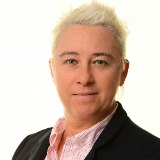
Kate S Carroll is an Associate Professor with Tenure in the Department of Chemistry at The Scripps Research Institute in Jupiter, Florida. She received her BA degree in Biochemistry from Mills College in 1996 and PhD in Biochemistry from Stanford University in 2003. Her postdoctoral work was completed at the University of California, Berkeley, where she was a Damon Runyon-Walter Winchell Chancer Fund Fellow with Prof. Carolyn Bertozzi. She was an assistant professor at the University of Michigan until 2010, when she joined the Chemistry faculty at Scripps. Her research interests span the disciplines of chemistry and biology with an emphasis on studies of sulfur biochemistry pertinent to disease states. Her lab focuses on the development of novel tools to study redox modifications of cysteine thiols, profiling changes in protein oxidation associated with disease, and exploiting this information for development of diagnostic and therapeutic approaches. In addition, her group investigates sulfur pathways that are essential for infection and long-term survival of human pathogens such as Mycobacterium tuberculosis. She was the recipient of the ACS Pfizer Award in Enzyme Chemistry, Camille Dreyfus Teacher-Scholar Award, Scientist Development Award from American Heart Association, and Special Fellow Award from the Leukemia and Lymphoma Society.
Wai Cheung Adrian Chan, PhD, Principal Scientist, Enabling Sciences, Odyssey Therapeutics

Dr. Wai Cheung Chan received his PhD in Chemical Biology from Harvard University under the joint mentorship of Dr. Sara Buhrlage and Dr. Jarrod Marto. At Harvard, his work focused on developing and applying chemoproteomics and proteomics techniques for inhibitor discovery and signaling characterization of the deubiquitinating enzymes. He is currently a Principal Scientist at Odyssey Therapeutics.
Venkatesh Chari, Scientific Market Development Manager, Eurofins DiscoverX

Venkatesh Chari received his Ph.D. in Biochemistry & Cancer Biology from the University of Toledo - Medical College of Ohio, and he was a part of the R&D team for over 7 years at Eurofins DiscoverX (EDRX). In his current role at EDRX, he is a part of the market development team and involved in supporting method transfers to CRO and CDMO sites for lot-release programs for biologics and biosimilars.
Prasoon Chaturvedi, PhD, Vice President & Head, DMPK, C4 Therapeutics, Inc.

Prasoon Chaturvedi, Ph.D., currently leads the DMPK efforts in the protein degrader space as Vice President, DMPK, at C4 Therapeutics in Watertown, MA. Over the last two decades, Prasoon has worked with numerous cutting-edge technologies to drive drug development endeavors in multiple therapeutic areas including infectious disease, oncology, hematology, cardiovascular, inflammation, and rare diseases leading to multiple successful IND, CTA, and NDA filings and has made key DMPK contributions for several marketed drugs including NUZYRA and ONPATTRO. Prasoon holds a Ph.D. from IIT, Roorkee (India), and did his postdoctoral training at E.K. Shriver Center of Harvard Medical School, MA.
William Chen, MD, PhD, Assistant Professor, Sanford School of Medicine, University of South Dakota
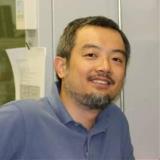
Dr. Chen is a surgeon, engineer, and multidisciplinary scientist with a career vision to improve human health. Dr. Chen is currently an Assistant Professor at the University of South Dakota (USD). He received his MD degree and medical training (internship and surgical residency) in Taiwan before pursuing an academic path. Dr. Chen obtained his Master’s in Biotechnology at the University of Pennsylvania and PhD in Bioengineering at the University of Pittsburgh. He finished his first postdoctoral fellowship in Biomaterial and Regenerative Medicine at the University of Pittsburgh. Dr. Chen finished his NIH-sponsored joint postdoctoral fellowship at Massachusetts Institute of Technology (MIT) and Massachusetts General Hospital (MGH) under the co-mentorship of Dr. Timothy Lu (MIT) and Dr. Anthony Rosenzweig (MGH). He then served as a Research Scientist at MIT for more than 2 years prior to joining USD. Dr. Chen’s research is focused on the development of platform technologies for cardiovascular regenerative medicine using genetic engineering and synthetic and systems biology approaches.
Michael Chen, CEO & Co Founder, Nuclera UK
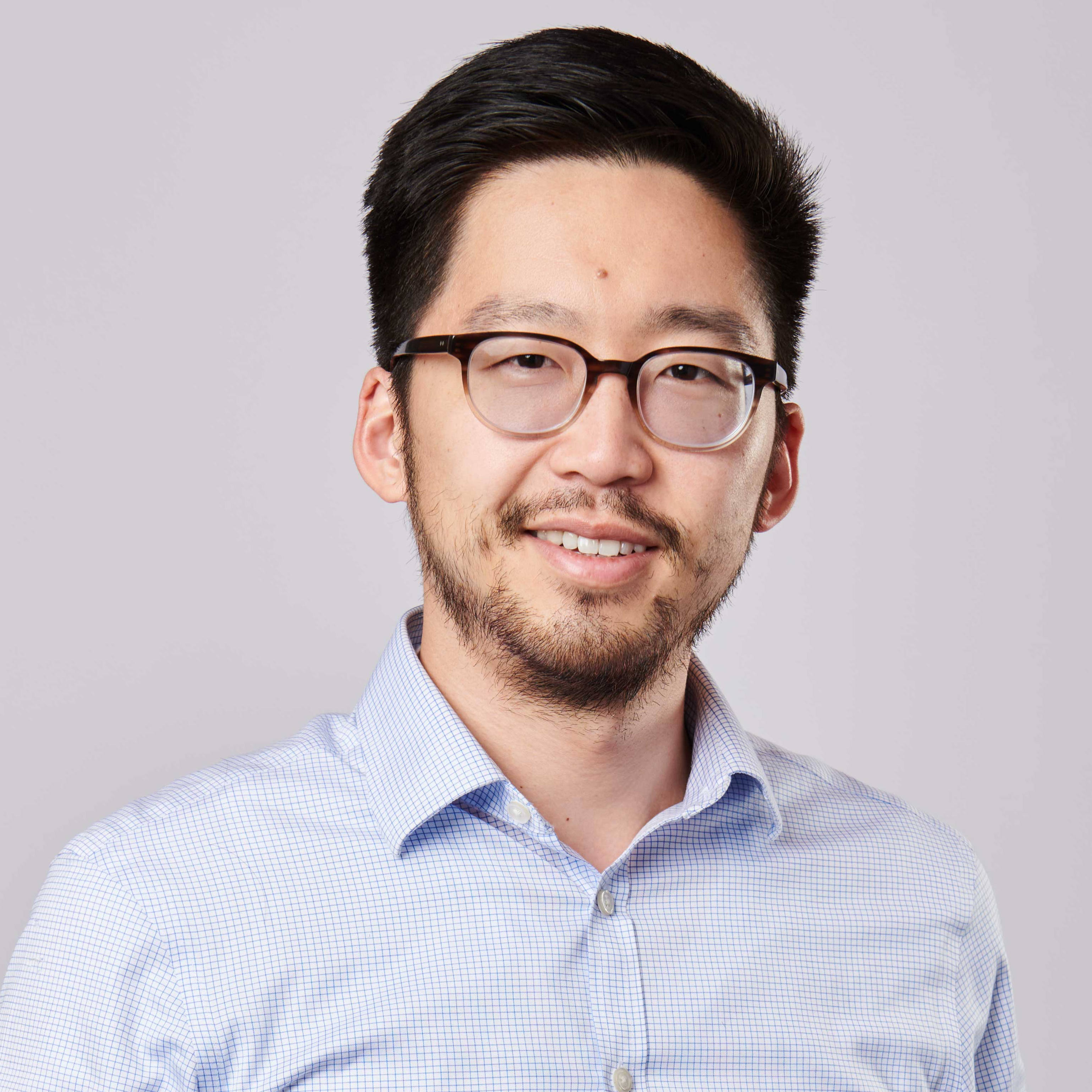
Michael Chen is the co-founder and CEO of Nuclera, a Cambridge UK and Boston US based life science tools company revolutionizing protein accessibility through the eProtein Discovery rapid protein access benchtop platform. With a mission to improve human health, Michael and his classmates founded Nuclera in response to the costly barriers to protein access for research and drug discovery. As CEO, he drives core inventions, sets the company's vision and strategy, and oversees its growth across two continents with over 100 employees. Before Nuclera, Michael was an award-winning structural biologist. His work resulted in numerous high impact publications including Nature. Michael holds a BSc in Chemistry from the Georgia Institute of Technology and a PhD in Structural Biology/Chemistry from the University of Cambridge and the National Institutes of Health.
Nan Chen, CEO, ChomiX Biotech Co., Ltd.
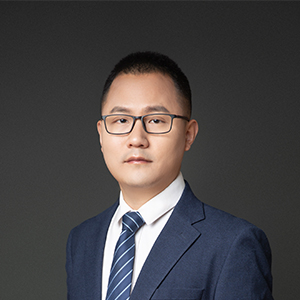
Dr. Nan Chen is the current CEO of ChomiX Biotech Co., Ltd., Nanjing, China. He completed his PhD in 2019 at Peking University, where he conducted research under the supervision of Professor Chu Wang. He then pursued postdoctoral research with Professor Tarun Kapoor at the Rockefeller University. In 2021, he co-founded ChomiX Biotech alongside Professor Chu Wang, Professor Zijian Guo of Nanjing University, and other collaborators.
Alessandro Cinti, Principal Investigator Proposal, Biological Sciences, Axxam
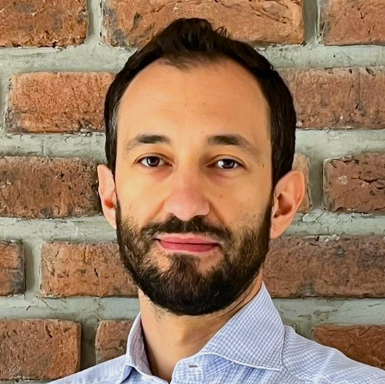
Alessandro Cinti is currently a Proposal Manager at Axxam, where he manages projects from scientific and experimental definition through to deployment. He has more than ten years of research experience and a consolidated expertise across a broad range of discovery disciplines and innovative technologies applied to the drug discovery processes. Prior to joining Axxam in 2017 as a Principal Scientist in the Cell Biology group, he conducted postdoctoral research at McGill University, focusing on the molecular biology of HIV-1 infection. Alessandro holds a Ph.D. in Translational and Molecular Medicine from the University of Milano-Bicocca.
Justin Cisar, PhD, Principal Scientist, Medicinal Chemistry, Janssen Pharmaceuticals Inc.
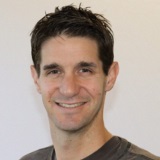
Justin Cisar is a Principal Scientist at Janssen in Spring House, PA. At Janssen, he is a project leader and medicinal chemist with experience in the oncology and immunology spaces. Previously, Justin worked at Abide Therapeutics, focusing on neuroscience targets. He holds a PhD in organic chemistry from Weill Cornell Medical School and Sloan Kettering Institute, and completed postdoctoral research at the Scripps Research Institute.
Pieter Claes, PhD, Principal Scientist, Medicinal Chemistry, Confo Therapeutics
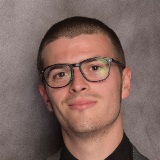
Pieter Claes obtained his Master of Science in Bioscience Engineering, Chemistry, and Bioprocess Technology at Ghent University in 2009. His PhD in the lab of prof. Norbert De Kimpe revolved around the synthesis of bioactive quinones that were tested against Mycobacterium tuberculosis was obtained in 2013. End of 2013, he moved to Galapagos where he was active as a medicinal chemist. In 2018, he moved to Confo Therapeutics where he has a dual medicinal chemist and project leader role.
Philip N. Collier, PhD, Director, Medicinal Chemistry, Kymera Therapeutics

Philip Collier is Director of Medicinal Chemistry at Kymera Therapeutics where he leads research programs in the area of targeted protein degradation. Prior to Kymera, Philip was a Research Fellow at Vertex in the UK and Boston. His efforts there as a leader and member of teams across oncology, immunology, anti-infectives, neurological and rare diseases resulted in successful compound transition to clinical trials. Prior to joining Vertex, Philip conducted postdoctoral work in total synthesis and organometallic chemistry at the California Institute of Technology and Imperial College London. Philip is listed as an author or co-author on more than 40 publications and patent applications in medicinal chemistry and drug design.
Nathan P. Coussens, PhD, Scientific Director, Molecular Pharmacology Laboratory, Frederick National Laboratory for Cancer Research

Nathan P. Coussens, Ph.D., is the director of the Molecular Pharmacology Laboratory at the Frederick National Laboratory for Cancer Research (FNLCR), which is focused on the preclinical development of cancer therapeutics. Previously he was a senior research scientist at the National Center for Advancing Translational Sciences, where he developed biologically and pharmacologically relevant biochemical and cell-based assays to identify and characterize small molecule modulators for a diverse portfolio of projects. Dr. Coussens is a member of the FNLCR Scientific Standards Hub, which strives to increase the reproducibility of biomedical data within the scientific community. He is a member of the SLAS Technology editorial board as well as an associate editor and former editor-in-chief of the National Institutes of Health’s Assay Guidance Manual, a growing online eBook of best practices for preclinical assay development and implementation that has become the go-to resource for translational scientists in industry, academia, and research laboratories worldwide.
Lee Cronin, CEO & Founder, Advanced Research Ctr, Chemify Ltd
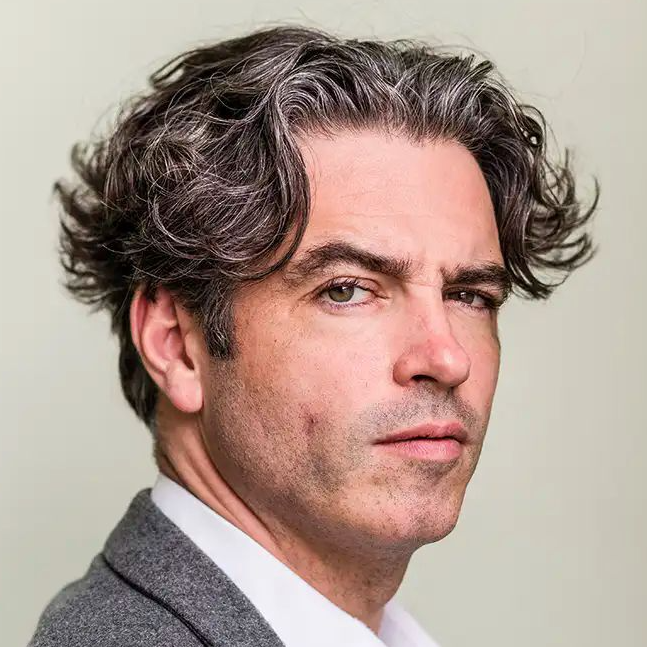
Lee Cronin, PhD, is the Regius Professor of Chemistry at the University of Glasgow (www.chem.gla.ac.uk/cronin/members/) and the founder and CEO of Chemify (https://www.chemify.io/), a Glasgow-based life sciences company combining chemistry, robotics, and AI at scale to digitally design, discover and make new molecules. He has published over 450 papers, given over 600 lectures, and has written extensively on all aspects of science from the origin of life to artificial intelligence.
Danette Daniels, PhD, Vice President, Degrader Platform, Foghorn Therapeutics

Danette Daniels, PhD, joined Foghorn Therapeutics in February 2022 as Vice President of the Protein Degrader Platform with more than 20 years of cancer research experience in focused areas of epigenetics, small molecules, and targeted protein degradation. Prior to joining Foghorn, Danette was an R&D group leader of functional proteomics at Promega Corporation. There she led teams involved in both technology innovation and basic science research, managing collaborations with academic, biotech, and pharma laboratories. For the past several years, she has been a leader in the field of targeted protein degradation, co-developing a new PROTAC modality and pioneering approaches to monitor cellular kinetics of degradation. These efforts have significantly impacted the broader research community by advancing discovery and enabling mechanistic understanding of this new class of therapeutics. Danette received her BA from Columbia University and a PhD in biophysics from Yale University under the direction of Axel Brunger. She completed a postdoctoral fellowship at Stanford University, funded by the American Cancer Society, with William Weis and Roel Nusse.
Arvin Dar, PhD, Professor, Chemical Biology, Memorial Sloan Kettering Cancer Center

Arvin Dar is a member and professor in the Chemical Biology Program at Memorial Sloan Kettering Cancer Center’s Sloan Kettering Institute, where he is also vice director of the Center for Experimental Therapeutics. Dr. Dar graduated from the University of Western Ontario with a BSc in chemistry, earned his PhD from the University of Toronto, and received postdoctoral training at the University of California, San Francisco. Prior to joining MSK in June of 2023, Dr. Dar led an independent research group at the Icahn School of Medicine at Mount Sinai for approximately 10 years. Dr. Dar’s research is focused on kinase structural biology and small molecule design and synthesis. His laboratory has discovered several leads for therapeutic development, including chemical switches and molecular glues to target genetically defined cancers driven by the RAS and WNT pathways. In addition, Dr. Dar co-founded Nested Therapeutics (nestedtx.com) to advance innovative therapeutics aimed at challenging cancer targets and to increase the number of patients that benefit from precision medicine. Dr. Dar has received numerous awards and honors for his research, including the NIH Director’s New Innovator Award, Damon Runyon-Rachleff Innovation Award, the Pew Charitable Trusts’ Pew-Stewart Scholars for Cancer Research award, Pershing Square Sohn Cancer Research Alliance Award, Junior Faculty Award at Mount Sinai, and the Mark Foundation for Cancer Research ASPIRE Award.
Ben J. Davis, PhD, Research Fellow, Biology, Vernalis R&D Ltd.

Dr. Ben Davis is a Research Fellow at Vernalis Research, a biotech company based in Cambridge UK which has been at the forefront of fragment-based approaches since 1998. An NMR spectroscopist and biophysicist by training, his current research focus is the development of biophysics and FBLD methods for challenging therapeutic targets and systems. Dr Davis studied for his PhD in protein folding and molecular interactions with Professor Alan Fersht at Cambridge University, and then studied the interactions of small molecules with proteins and RNA. He has over 20 years’ experience in the drug discovery industry. He has contributed to seven books over the last decade and is an author on more than forty scientific publications. He is a frequent speaker at scientific conferences and has been running FBLD training workshops since 2007.
Stephan John DeCarlo, PhD Student, Laboratory of David Liu, Harvard University
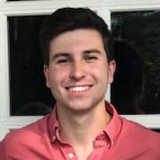
I attended Bowdoin college where I focused on the synthesis and characterization of peptoid catalysts for enantioselective trifuloromethylation. Following graduation, I spent two years at Adimab, LLC, working on antibody and strain engineering. Currently, I am a graduate student in David Liu's lab at Harvard University, focusing on protein evolution and therapeutics development.
John R. Desjarlais, PhD, CSO, Xencor

Dr. Desjarlais is the Executive Vice President, Research and CSO at Xencor, Inc. Since joining Xencor in 2001, Dr. Desjarlais has overseen the company’s engineering, discovery, and preclinical work on antibodies and other proteins. With his coworkers, Dr. Desjarlais has developed several novel technologies for the optimization of antibodies and other proteins, including a platform for generation of bispecific antibodies, and has led the discovery of multiple therapeutic antibody candidates, including CD3 bispecific antibodies, checkpoint bispecific antibodies, and cytokine-Fc fusions for treatment of a variety of diseases. Dr. Desjarlais oversees all of Xencor’s discovery research and preclinical activities, from project conception and candidate generation through preclinical proof-of-concept and early development. Prior to Xencor, Dr. Desjarlais was an Assistant Professor of Chemistry at Penn State University (1997-2001), where he developed and tested methods for the de novo design of protein sequences. He began his work in the field of protein design as a Jane Coffin Childs Fellow at UC Berkeley. Dr. Desjarlais holds a PhD in Biophysics from the Johns Hopkins University and a BS degree in Physics from the University of Massachusetts, Amherst.
Anwesha Dey, PhD, Director & Distinguished Scientist, Discovery Oncology, Genentech Inc.

Anwesha Dey is a Director and Distinguished Scientist in the Discovery Oncology Department at Genentech. Prior to this position, she held postdoctoral research fellowships in the laboratory of Vishva Dixit at Genentech and at the Institute of Molecular and Cell Biology (IMCB), A*STAR, Singapore, in the laboratory of Sir David Lane. Her scientific research at Genentech is focused on understanding the biology of Hippo and PI3K signaling pathways and how they can be targeted for cancer therapy. She has served as both the Project Team Leader and Biology Lead for multiple drug discovery programs at Genentech. Anwesha has published extensively in several high impact journals. She serves on the Scientific Advisory Board (SAB) of the Keystone Symposia and is a recipient of the 2022 GWP Emerging Leader Award at Genentech and the 2023 Distinguished Service Alumni award from University of Maryland at Baltimore County.
Richard DiMarchi, PhD, Distinguished Professor of Chemistry and Chair, Biomolecular Sciences, Indiana University; former Executive, Lilly and Novo Research Labs
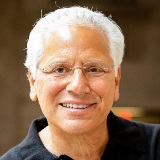
Professor DiMarchi is a member of the National Academy of Medicine and the National Inventors Hall of Fame. He is a former Group Vice President at Lilly and later Novo. His contributions pertain to the discovery and development of Humalog, rGlucagon, Forteo, and Evista. His research includes discovery of peptides transforming the treatment of diabetes and obesity. He is co-inventor on >100 U.S. patents and co-author to >250 scientific publications. He was identified as a top-five translation researcher by Nature Biotechnology. Since 2003, he has co-founded eight successful biotech companies.
- Cancer Antibodies
- AI/ML-Enabled Drug Discovery - Part 2
- AI/ML-Enabled Drug Discovery - Part 1
- GPCR-Based Drug Discovery
- Targeting Transcription Factors
- Lead Generation Strategies
- Small Molecules for Cancer Targets
- Physiologically Relevant Translational Models
- Antibodies Against Membrane Protein Targets
- Small Molecules Targeting RNA
- Target Identification Strategies
- Degraders and Molecular Glues - Part 2
- Degraders and Molecular Glues - Part 1
Rakesh Dixit, PhD, DABT, President & Founder, Bionavigen Oncology, LLC and Regio Biosciences

Rakesh Dixit is an accomplished executive, inventor, and scientist with over 35 years of success with top biotechnology and pharmaceutical companies, including Merck, Johnson & Johnson, and Medimmune - AstraZeneca. Currently, he is President and CSO of Regio Biosciences and Bionavigen, LLC. He is a Board Member of Regio Biosciences and a key member of multiple scientific advisory boards. Rakesh is also a chief adviser and consultant for more than 20 companies worldwide. His biopharmaceutical peers selected Rakesh as one of the 100 Most Inspiring People in the Pharmaceutical Industry by PharmaVOICE in 2015. Rakesh received the Most Prestigious Award of Long-Standing Contribution to ADCs by World ADC (Hanson-Wade), 2020. From 2006 to 2019, Rakesh was a Global Vice President of the Biologics R&D at Medimmune - AstraZeneca. Rakesh has unique expertise in developing biologics (e.g., monoclonal antibodies, bispecific biologics, antibody-drug conjugates, fusion proteins, peptides, gene and cell therapies, etc.) and small-molecule biopharmaceuticals. His areas of expertise include discovery, early and late preclinical development, safety assessment, DMPK, and translational sciences. Dr. Dixit conducted extensive graduate and post-graduate training in Pharmacology/Toxicology-Biochemistry with both Indian and USA Institutions (e.g., Case Western Reserve University, Medical College of Ohio, University of Nebraska) and is a Diplomate and Board Certified in Toxicology from the American Board of Toxicology, Inc. since 1992.
Clark Driscoll, Sr. Research Scientist , Drug Discovery, Curia
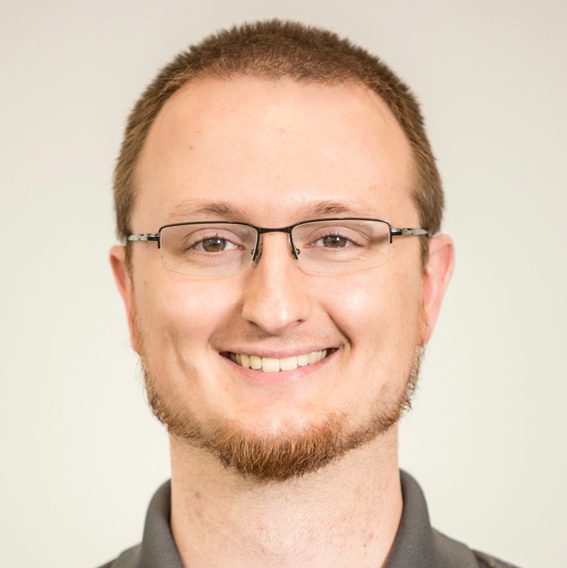
Clark Driscoll is a Senior Research Scientist on the Cell-Based Assay Technologies team at Curia’s integrated Drug Discovery Site in Buffalo, NY. For the past 8 years Clark has served as lead of Curia’s High-Content Imaging Core, developing microscopy assays that suit the unique needs of each client project and range from live-cell imaging to phenotypic profiling using cell painting methods. Using cutting edge automation and confocal imaging systems, Clark and his team have developed high-content imaging assays and screening campaigns to assess target protein translocation, target expression, protein degradation, target interaction, small molecule cytotoxicity, cell cycle, and much more.
Wu Du, PhD, Senior Vice President, Department of Medicinal Chemistry, Hinova Pharmaceuticals, Inc.

Dr. Wu Du received his Ph.D. in organic chemistry from the University of Pittsburgh. After completing his postdoc at The Scripps Research Institute, he joined Merck Research Laboratory as a medicinal chemist. He later joined PTC Therapeutics, and then Hinova Pharmaceuticals, where he currently serves as a senior vice president. Dr. Du has over 20 years of experience in medicinal chemistry, organic synthesis, drug discovery in oncology and metabolic diseases. While at Hinova, Dr. Du is responsible for oral PROTAC drug discovery.
Anne-Sophie Dugast, PhD, Director Oncology, Discovery Research, Bicycle Therapeutics

Anne-Sophie Dugast is an expert immunologist with over 10 years of pharmaceutical experience in the strategic development of immune-oncology drugs. She is currently a director of Oncology at Bicycle Therapeutics where she leads preclinical programs from target ID through clinical POC.
Matthew T. Eddy, PhD, Assistant Professor, Chemistry, University of Florida, Gainesville
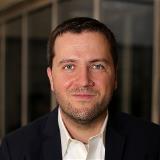
Matthew Eddy received his PhD in physical chemistry from the Massachusetts Institute of Technology in the laboratory of Professor Robert Griffin. During his PhD, Dr. Eddy developed new approaches for using nuclear magnetic resonance (NMR) in the solid state to determine structures of membrane proteins in cellular-like environments. Following his PhD, Dr. Eddy joined the laboratories of Professors Raymond Stevens and Kurt Wüthrich at The Scripps Research Institute as an American Cancer Society Postdoctoral Fellow, applying an integrative structural biology approach to study human G protein-coupled receptors (GPCRs) and focusing on applications of nuclear magnetic resonance to improve our understanding of GPCR allosteric functions. Dr. Eddy is currently an assistant professor in the Department of Chemistry at the University of Florida and affiliated faculty of the National High Magnetic Field Laboratory. His group continues to study human GPCRs to understand the role of the cellular environment in regulating GPCR dynamics, structure, and function.
Sean Ekins, PhD, Founder & CEO, Collaborations Pharmaceuticals, Inc.

Sean is founder and CEO of Collaborations Pharmaceuticals, Inc., which is focused on using machine learning approaches for rare and neglected disease drug discovery. Sean graduated from the University of Aberdeen; receiving his MSc, PhD, in clinical pharmacology and DSc in science. He was a postdoctoral fellow at Lilly Research Laboratories, before working as a senior scientist at Pfizer and then Eli Lilly. He went on to join several startup companies at increasingly senior levels. Since 2005, he has been awarded over 20 NIH and DOD grants (STTR/SBIR grants, R21, UH2 and R01) as well as performing as a consultant on many others. He has authored or co-authored >360 peer reviewed papers, book chapters, edited 5 books on different aspects of drug discovery research and using computational approaches. He recently authored a book on "winning Grants." He has a passion for finding new collaborators and developing new treatments for neglected and rare diseases as well as advancing new technologies for drug discovery.
Daniel A. Erlanson, PhD, Chief Innovation Officer, Innovation and Discovery, Frontier Medicines Corporation
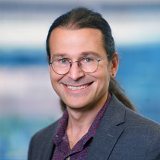
Dr. Daniel A. Erlanson is the VP of Chemistry for Frontier Medicines, which is using covalent fragments, machine learning, and chemoproteomics to target proteins often thought undruggable. Prior to Frontier he co-founded Carmot Therapeutics, where he contributed to two clinical-stage molecules. Before Carmot, Dr. Erlanson spent a decade developing fragment-based discovery technologies and leading medicinal chemistry projects at Sunesis Pharmaceuticals. Dr. Erlanson was an NIH postdoctoral fellow with James A. Wells at Genentech, earned his PhD in chemistry from Harvard University in the laboratory of Gregory L. Verdine, and his BA in chemistry from Carleton College. He has co-edited two books on fragment-based drug discovery and is an inventor on more than a dozen issued patents and an author of more than forty scientific publications. He also runs a blog devoted to fragment-based drug discovery, Practical Fragments (http://practicalfragments.blogspot.com/).
John Erve, PhD, President, Jerve Scientific Consulting

John Erve is from Chicago and studied Chemistry (BS, MS) at the University of Chicago and earned a PhD in Toxicology at Oregon State University. Following postdoctoral work at Vanderbilt (1995-1999) he joined BD-Biosciences (Woburn, MA) as a Study Director. In 2002, he joined AstraZeneca (Sweden) where he characterized reactive metabolites. In 2004 he joined Wyeth (Collegeville, PA) as a Principal Scientist responsible for metabolite identification. In 2010, John joined Novartis (Cambridge, MA) as a Lab Head in Analytical Sciences. John returned to drug metabolism at Elan Pharmaceuticals (San Francisco, CA) in 2012 and later formed Jerve Scientific Consulting, Inc to help small biotech companies in the Bay area with their drug discovery efforts. John was a certified D.A.B.T. from 2004 to 2019.
Ghotas Evindar, PhD, Drug Discovery Consultant, Former DEL Platform Senior Manager and Group Leader at GlaxoSmithKline
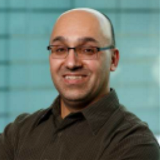
Dr. Evindar is co-founder and president of DEL Source Inc. and a sought-after drug discovery consultant throughout the biotech industry. Born and raised in the Kurdish mountains, he emigrated to Canada, earning bachelor’s and master’s degrees from the University of Waterloo, in biochemistry and bio-organic chemistry, respectively. He then went on to complete a PhD in organic chemistry from the University of Toronto. He initiated his industrial career as a medicinal chemist at Vertex Pharmaceuticals with focus on structure-based drug design. He has authored well over 50 publications and patents in the fields of drug discovery and hit identification, including seminal articles on DNA-Encoded Library (DEL) technology. Prior to initiating DEL Source, Dr. Evindar was an executive team member and head of drug discovery at 1859 Inc. and Exo Therapeutics. He is one of the pioneers of DEL technology, working in research groups enabling this platform from his early days at Praecis Pharmaceuticals and GlaxoSmithKline. Over the last 20 years, he has been a tireless advocate of the DEL platform, serving as an advisor throughout the industry and as an educational leader through presentations, roundtables, and short courses to support DEL implementation (LinkedIn).
Rick Ewing, PhD, Vice President and Head of Chemistry, Rapafusyn Pharmaceuticals

Dr. Rick Ewing (William R Ewing) is a senior medicinal chemist experienced in leading teams to deliver development candidates, running academic collaborations and leading scientific assessments for business development opportunities. Rick started his chemical career during his time as an undergraduate at West Chester University. After his first year, he took on an internship at the Chester County Health Department where he practiced analytical chemistry, testing water samples that were obtained throughout the county. After completed his first internship, Rick then took on a co-op position at Wyeth Laboratories in their Quality Assurance department. This again was an analytical chemistry position using both wet chemistry and instrumentation to assay final drug products and API for release to the marketplace as well drug stability testing to assess drug storage. The co-op was extended to cover Rick’s last three years at West Chester University. Rick received the ACS Philadelphia local undergraduate award for his scholastics and achievements at West Chester University. It was during his time at Wyeth that Rick became passionate about learning the art of drug discovery and hence decided to pursue a PhD degree. Rick entered the doctoral program at the University of Pennsylvania study under professor Madeline Joullie. At Penn, Rick took on the total synthesis of Didemnins and Detoxinines. During his third year, both Rick and Professor Joullie were approached by Dr. Paul Wiess (Professor emeritus in the University of Pennsylvania’s Chemical Engineering department) to work on the problem of delivering molecules to inhibit angiogenesis. This led to a productive drug discovery consortium with Prof. Joullie (U. Penn Chemistry), Dr. Juda Folkman (Harvard Medical School), and Prof Paul Wiess (U. Penn Chem. Engineering). Rick was involved in the consortium over his last two years of his time at U. Penn. Rick completed his PhD studies in the fall of 1988. Rick started his industrial career as a medicinal chemist at Rorer Pharmaceuticals, a small pharma company with labs in King of Prussia. He was fortunate to have project leadership on the first programs he worked on at Rorer. Rorer became a larger pharmaceutical company after being acquired by Rhone-Poulenc. Rick then had the great fortune to work in a global company that embraced overseas travel to increase exposure to diverse ways to do research as well as frequent trips to the RPR site in Vitry just outside Paris. The policies at RPR allowed Rick to present every year at Peptide and drug discovery conferences throughout his career at RPR. In addition to many GPCR targets, Rick worked in the area of discovering anti-thrombotic therapeutics by finding platelet and coagulation cascade inhibitors. In 1998 RPR merged with Hoechst to form Aventis. It was at this time that Rick was recruited to become a Group Leader at Bristol-Myers Squibb. Rick rose to senior director in small molecule drug discovery at Bristol Myers Squibb where he led medicinal chemistry teams in the therapeutic areas of cardiovascular, diabetes, obesity, and heart failure. In these areas, Dr. Ewing led medicinal chemistry teams to deliver over 15 development candidates. Among these are Milvexian, a first in class Factor XIa inhibitor currently in PIII development (Janssen/BMS). In addition to his roles in medicinal chemistry, Rick led the BMS chemistry awards program for more than 10 years. The awards program recognized graduate students through a 1 year graduate fellowship and pre-tenure professors with a two year unrestricted grant. The awards program included an awards symposium at BMS with the awarded professors and graduate students presenting. Rick led the two BMS academic collaborations with Scripps and Princeton where he helped build research programs directed at addressing long range synthetic and structural chemistry problems relevant to medicinal chemistry. Over his last 5 years at BMS, Rick took on additional responsiblities through a lead role in the scientific assessment of external assets and technologies to potentially be brought into BMS. In this role, Rick took part in over 100 scientific evaluations in business development across multiple therapeutic areas including oncology, immunology, fibrosis, heart failure and platform technologies. From this effort, Rick developed a strong interest in joining biotech. He went on to begin his biotech career in the position of Vice President, Head of Drug Discovery at the Barer Institute, a discovery phase oncology biotech company. After the Barer Institute, Rick joined Rapafusyn as VP, Head of Chemistry where he continues his research career in discovering Type I molecular glues to inhibit intracellular PPIs of aberrant proteins. Rick is co-inventor on 75 patents, and co-author on 74 peer reviewed publications. In 2023, Rick was awarded the 2023 Edison Patent Award in Biotechnology, a team award for research done with BMS and the Scripps Institute. Also in 2023, Rick received the Philadelphia Section Award for his lifelong achievements in drug discovery research. In 2021, he was awarded the American Chemical Society (ACS) Fellow for his scientific achievements and contributions to the Society, and in 2018 received the Ondetti-Cushman award for leadership of the FXIa team that discovered Milvexian.
Saudat Fadeyi, PhD, MBA, Director, Business Development, Ovid Therapeutics, Inc.

Dr. Saudat Fadeyi is a science-driven business leader in the Pharma/Biotech industry, with an over-15-year career in clinical research, global drug development, portfolio strategy, and business development. She currently leads Business Development & Partnering at Ovid Therapeutics, centered around innovative therapies and platform technologies that offer new modalities for treating rare neurological diseases and patients with high unmet need. She holds a PhD in Cancer Biology and an MBA in Pharmaceutical Management, and completed her post-doctoral training at the National Institutes of Health in immuno-oncology and vaccine development. Dr. Fadeyi spent the early part of her career in translational and clinical research, and has a background in community-based participatory research and health disparities from her time spent as a clinical scientist within academia. She's been involved in driving early- to late-stage drug development programs across multiple therapeutic areas, including several marketed products, and has worked within privately funded research organizations and public companies, including Schering-Plough (now Merck), Pfizer, and Sage Therapeutics. Dr. Fadeyi is an advocate for increasing clinical trial diversity and is also a board member of S.H.I.N.E. (STEM Hub for Industry Networking and Exchange), a non-profit organization actively bridging opportunities and access for the next wave of underrepresented minority STEM professionals in the Biotech & Pharma industry, through mentorship and meaningful engagement.
Alexander Federation, PhD, Co-Founder & CEO, Talus Bioscience

Dr. Federation is the co-founder and CEO of Talus Bio. He received his graduate degree in chemical biology from Harvard University where he trained with Jay Bradner developing chemical probes for gene regulator proteins. He completed a postdoc at the Altius Institute for Biomedical Sciences in Seattle with John Stamatoyannopoulos and Mike MacCoss developing genome-wide assays to study gene regulator activity. This work was spun into Talus Bio in 2020.
Marc Ferrer, PhD, Director, 3D Tissue Bioprinting Laboratory, Division of Preclinical Innovation, National Center for Advancing Translational Sciences, National Institutes of Health (NIH)

Marc Ferrer is currently the Director of the 3D Tissue Bioprinting Laboratory at NCATS. He graduated with a BSc degree in Organic Chemistry from the University of Barcelona, Spain, in 1989, and received his Ph.D. degree in Biological Chemistry from the University of Minnesota, in 1994. Dr. Ferrer has 20 years of experience in in vitro pharmacology for drug discovery. In the last three years, he has led the implementation of the NCATS 3D Tissue Bioprinting Laboratory, a multidisciplinary group with the goal of developing 3D organotypic cellular models that faithfully mimic human pathophysiology and using them to implement clinically predictive drug efficacy and safety screens.
Stephen W. Fesik, PhD, Professor of Biochemistry, Pharmacology & Chemistry; Orrin H. Ingram II Chair in Cancer Research, Vanderbilt University
.tmb-0.jpg)
Stephen W. Fesik, PhD, is the Orrin H. Ingram II Chair in Cancer Research and a Professor of Biochemistry, Pharmacology, and Chemistry at Vanderbilt University School of Medicine. He is also a member of the Vanderbilt Ingram Cancer Center (VICC), the Vanderbilt Institute of Chemical Biology (VICB), and the Center for Structural Biology (CSB). The focus of his research is on cancer drug discovery using fragment-based approaches and structure-based drug design. Prior to joining Vanderbilt in May 2009, Dr. Fesik was the Divisional Vice President of Cancer Research at Abbott (2000-2009) where he built a pipeline of compounds that are showing promising anti-cancer activities in early-stage clinical trials. In addition, while he was at Abbott, he developed several new NMR methods, determined the three-dimensional structures of several proteins and protein/ligand complexes, pioneered a fragment-based method for drug discovery called SAR by NMR, and applied this method to identify and optimize ligands for binding to many protein drug targets. Dr. Fesik has published more than 295 papers, trained 68 postdoctoral fellows, and has served as a member of the Editorial Boards of many scientific journals, scientific advisory boards, and the Keystone and Bruker Board of Directors. He has also obtained several awards, such as the Lifetime Achievement Award in Nuclear Magnetic Resonance from EAS (2003), the SBS Technology Innovation Award (2010), the NIH Director's Pioneer Award (2010), the AACR Award for Outstanding Achievement in Chemistry in Cancer Research (2012), and 2021 Chester Stock Award from Memorial Sloan Kettering Cancer Center.
- Cancer Antibodies
- AI/ML-Enabled Drug Discovery - Part 2
- AI/ML-Enabled Drug Discovery - Part 1
- GPCR-Based Drug Discovery
- Targeting Transcription Factors
- Lead Generation Strategies
- Small Molecules for Cancer Targets
- Physiologically Relevant Translational Models
- Antibodies Against Membrane Protein Targets
- Small Molecules Targeting RNA
- Target Identification Strategies
- Degraders and Molecular Glues - Part 2
- Degraders and Molecular Glues - Part 1
Denise Field, PhD, Senior Principal Scientist, Chemical Biology and Proteomics, Pfizer

Denise completed her undergraduate studies at the University of Virginia studying both chemistry and biology and working for Professor Tim Macdonald. She continued her studies as a chemical biologist at Yale University working with Dr. Andrew Phillips. After completing her PhD, Denise then completed an Industrial Postdoc working in the Pfizer Chemical Biology group, after which she was hired into the group. Denise is located in the Cambridge, MA site where she conducts chemoproteomics experiments to measure target occupancies, profile compound selectivity and look for avenues to expand the scope of chemical biology in the realm of drug discovery.
Timothy L. Foley, PhD, Senior Principal Scientist & Lab Head, DNA Encoded Library Selection & Pharmacology, Pfizer Global R&D Groton Labs
.tmb-0.jpg)
Tim first obtained his BSc in cell biology and biochemistry and then a MSc in organic chemistry at the University of California - San Diego (UCSD). Still at UCSD, he pursued inhibitors of bacterial natural product biosynthesis and received his Ph.D. in chemistry in 2010. He conducted his post-doctoral studies at the National Center for Advancing Translational Sciences (NCATS) at the NIH from 2010 to 2014. In this position, he further developed his knowledge of enzymology and molecular pharmacology in the context of high throughput screening. Tim joined Pfizer in February 2014 to support the Pfizer Centers for Therapeutic Innovation portfolio and the Serine Hydrolase Gene Family platform. Tim’s lab guides pharmacology assay design and execution for projects to support hit discovery and compound optimization into clinical candidates. Since 2017, he has been leading the organizational effort to develop hit identification capabilities with DNA-encoded library technologies.
Thomas E. Frederick, PhD, Senior Scientist II, Biophysics & Fragment Screening, Abbvie
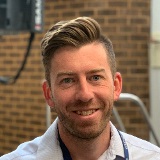
Thomas Frederick is a member of the Biophysics and Fragment Screening group at AbbVie. He broadly uses NMR to support project teams across multiple therapeutic areas by conducting fragment screens and providing assay support throughout FBDD campaigns. He further assists other screening platforms such as HTS and DEL in identifying and confirming hits. Tom joined AbbVie in 2019 following his postdoctoral research with Dr. Gregory Bowman. He received his Ph.D. in Chemistry from Notre Dame under Dr. Jeffrey Peng studying protein dynamics using NMR relaxation.
Kevin D. Freeman-Cook, PhD, Vice President & Head, Medicinal & Computational Chemistry, Plexium Inc.

Kevin received his BA in chemistry from Carleton College in 1994 and a Ph.D. in organic chemistry from the University of Colorado Boulder in 1999. After his graduate work, Kevin started his career in medicinal chemistry at Pfizer in Gorton, CT and worked in the areas of allergy and respiratory disease, inflammation, antibacterials, oncology, and diabetes. In 2009, Kevin moved to Pfizer’s La Jolla, CA site, where he focused on medicinal chemistry design in oncology. Over his Pfizer career, Kevin worked in and led teams that have nominated five compounds for clinical development across multiple therapeutic areas. In 2022, Kevin joined Plexium, where he is currently the Vice President of Chemistry. At Plexium, Kevin oversees medicinal and computational chemistry as well as library chemistry, and leads the design and synthesis of targeted protein degraders.
Stefan Gajewski, PhD, Structural Biologist, Early Drug Discovery, Nurix Therapeutics Inc
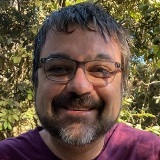
Stefan Gajewski is a senior scientist at Nurix Therapeutics where he studies small molecule drug induced degradation of proteins and other mechanisms of modulating proteostasis in disease. He joined Nurix in 2016 and is currently leading the structural biology group that supports target validation, lead discovery, and drug design. Before joining Nurix he was trained in crystallography, biophysics, biochemistry, and computational methods at St. Jude Children’s Research Hospital and the University of Graz.
Katie Galloway, PhD, W. M. Keck Career Development Professor, Biomedical Engineering and Chemical Engineering, Massachusetts Institute of Technology

Katie Galloway is the W. M. Keck Career Development Professor in Biomedical Engineering and Chemical Engineering at Massachusetts Institute of Technology (MIT). Her research focuses on elucidating the fundamental principles of integrating synthetic circuitry to drive cellular behaviors. Her team leverages synthetic biology to transform how we understand cellular transitions and engineer cellular therapies. Galloway earned a PhD and an MS in Chemical Engineering from the California Institute of Technology (Caltech), and a BS in Chemical Engineering from University of California at Berkeley. She completed her postdoctoral work at the University of Southern California. Her research has been featured in Science, Cell Stem Cell, Cell Systems, and Development. She has won multiple fellowships and awards including the NSF CAREER, Cellular and Molecular Bioengineering Rising Star, Princeton’s CBE Saville Lecture Award, NIH Maximizing Investigators’ Research Award, the NIH F32, and Caltech’s Everhart Award.
Shanthi Ganesh, PhD Director, Pharmacology, Global Nucleic Acid Therapies, Novo Nordisk

Shanthi is the Director of Pharmacology at Dicerna, a Novo Nordisk company, with over 20 years of industry experience in nucleic acid therapeutics, drug delivery, cancer drug discovery, and gene therapy. At Dicerna, she was responsible for bringing the first two GalXC-Plus conjugates to clinical development for the treatment of cancer patients. Prior to that, she spent more than 10 years at NIBR and two other gene therapy companies developing RNAi therapeutics and oncolytic viruses for cancer treatment. Throughout her career, she has published extensively in the areas of RNAi, cancer therapeutics and gene therapy and holds several patents and awards for her work in this field. She has also been a member of AACR for several years and has attended and presented her work at several international conferences. She earned her PhD in RNAi therapeutics for cancer applications at Northeastern University.
Sean Gardner, MS, Scientific Program Manager, Office of Special Initiatives, NCATS, National Institutes of Health
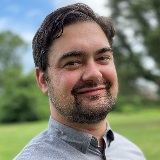
Sean Gardner is a scientific program manager in NCATS’ Office of Special Initiatives, where he supports A Specialized Platform for Innovative Research Exploration (ASPIRE). The goal of ASPIRE is to transform the way medicinal chemistry currently is performed into a modern, information-based science that will greatly accelerate the design-synthesize-test cycle in early-stage drug development. Incorporating artificial intelligence and machine learning techniques coupled with the automation of chemical synthesis and biological testing, the aim is to bring therapeutic candidates into in vivo and clinical testing in a far more efficient manner. Before joining NCATS, Gardner most recently served as a medicinal chemist with the Division of Experimental Therapeutics at the Walter Reed Army Institute of Research, supporting the Army’s global efforts to combat drug-resistant malaria. He received his Bachelor of Science in chemistry from Drexel University and performed graduate work at the University of Pittsburgh, with a focus on synthetic organic chemistry, including natural product synthesis, main group chemistry, synthetic methodology, and new reaction development.
Francis Gaudreault, PhD, Associate Research Officer, Human Health Therapeutics, National Research Council Canada

Francis obtained his PhD in Biochemistry from University of Sherbrooke in 2015, during which he developed a molecular docking program for docking small molecules to flexible protein or RNA targets. While doing his PhD studies, Francis co-founded a successful IT company for automating the management of scientific conferences. Francis joined the National Research Council (NRC) of Canada in 2016, where he has taken part in and led various efforts in the discovery and engineering of antibodies or other biologics. In such efforts are included the structure prediction of antibodies alone or in complex, the affinity assessment of antibody-antigen complexes, and the detection of antibody developability issues. Francis is leading the technical efforts in using artificial intelligence for antibody discovery.
Brahma Ghosh, PhD, Senior Principal Scientist & Head, Chemical Biology, Global Discovery Chemistry, Johnson & Johnson

Dr. Brahma Ghosh is currently the Head of Chemical Biology within Global Discovery Chemistry, Janssen R&D, Johnson and Johnson. His team integrates Chemical Biology into discovery-stage projects across therapeutic areas to address diverse questions associated with compound progression, including target and MOA deconvolution from phenotypic screens, proteome-wide selectivity, pathway and interactome mapping, inter alia. At this role, Dr. Ghosh also leads the department’s Irreversible Covalent Inhibitor discovery effort.
Adam Gilbert, PhD, Executive Director, Medicine Design, Pfizer Inc.

Adam is an Executive Director and External Accelerator Lead at Pfizer where he creates proactive partnerships and business development deals to build value for Pfizer’s portfolio. He has more than 30 years of experience working in biopharma and recently led Pfizer’s Design and Synthesis Sciences platform medicinal chemistry group which successfully delivered targeted covalent inhibitors, protein homeostasis modulators, and vaccine antigens to Pfizer’s clinical portfolio. He is a co-inventor of LITFULO (Ritlecitinib), a covalent JAK3/TEC inhibitor that was recently approved to treat Alopecia Areata and his group helped deliver ABRYSVO (RSVPreF), a preventative Respiratory Syncytial Virus vaccine and COMIRNATY (BNT162b2) an mRNA COVID-19 vaccine. Adam received a Ph.D. in Organic Chemistry from Columbia University.
Sujatha Gopalakrishnan, Director, Research Fellow, Head of HTS & Molecular Characterization, AbbVie

Sujatha Gopalakrishnan is leading the centralized Molecular Screening and Characterization group at Abbvie. Her team supports various therapeutic areas in assay development, screening, and advancing compounds including elucidation of the SAR and mechanistic studies for early-stage drug discovery efforts. She joined Abbott/Abbvie in 1995, and since then has held positions of increasing responsibility leading highly-productive scientific teams. With early Discovery, she has been advancing a range of assay platforms/technologies for target-based and phenotypic screens that impacted Abbvie pipeline. Sujatha is an author of over 45 peer-reviewed manuscripts as well as a co-inventor on two patents.
Paul E. Gormisky, PhD, Senior Director, Enabling Sciences Chemistry, Odyssey Therapeutics
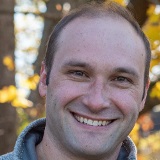
I'm currently a Senior Director in the Enabling Sciences group at Odyssey Therapeutics in Boston, MA, where I focus on building discovery technology platforms and leading early hit finding projects. Prior to Odyssey, I worked as a medicinal chemist and project leader at Novartis and Celgene/BMS in Cambridge, MA. My academic training is in synthetic organic chemistry. For my PhD, I trained with Prof. M. Christina White at the University of Illinois at Urbana-Champaign, with a focus on novel C-H oxidation methodologies and I have a B.A. in chemistry from the University of Pennsylvania.
Josef Gramespacher, PhD, Co-Founder, EpiBiologics
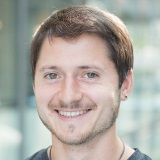
Josef Gramespacher is a co-founder and current Principal Scientist at EpiBiologics, a company focused on developing first-in-class antibody-based therapies to degrade disease driving membrane and extracellular proteins. Prior to joining EpiBiologics, Josef was a postdoctoral fellow at UCSF working under the supervision of Jim Wells.
Linda Griffith, PhD, Professor, Biological Engineering & Teaching Innovation, Massachusetts Institute of Technology
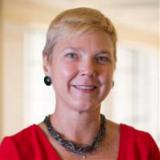
Professor Linda G. Griffith received a Bachelor's Degree from Georgia Tech and a PhD degree from the University of California at Berkeley, both in chemical engineering. Griffith’s is a member of the National Academy of Engineering and the recipient of a MacArthur Foundation Fellowship, the Popular Science Brilliant 10 Award, NSF Presidential Young Investigator Award, the MIT Class of 1960 Teaching Innovation Award, Radcliffe Fellow and several awards from professional societies.
Linxin Gu, MS, CEO, TechConnect

Linxin Gu is the Founder and CEO of TechConnect, a venture studio dedicated to integrating AI technologies into biotech to address complex health challenges, particularly in rare diseases. With dual Master's degrees in Chemical & Biomolecular Engineering and Applied Mathematics & Statistics from Johns Hopkins University, Linxin has spearheaded innovative AI applications that accelerate drug discovery and enhance precision medicine. Her work emphasizes developing AI-driven solutions that improve diagnostic accuracy, optimize therapeutic approaches, and reduce time-to-market for critical treatments. Linxin's leadership at TechConnect reflects her deep commitment to leveraging technology for significant social impact, aiming to transform patient outcomes in underexplored medical fields.
Steve Gygi, PhD, Professor, Department of Cell Biology, Harvard Medical School

Dr. Gygi received his Ph.D. from the University of Utah in Pharmacology and Toxicology in 1995 specializing in small molecule mass spectrometry. He then completed a postdoctoral fellowship with Ruedi Aebersold at the University of Washington where he studied large molecule mass spectrometry in a new field termed proteomics. He started his own lab in 2000 at Harvard Medical School in the Department of Cell Biology. Currently, his lab is working to develop technologies around sample multiplexing. A 16plex TMT reagent set is now available. This allows for 16 treatments to be combined into a single experiment including replicates, dose response, time series, and rescue conditions. In this single-experiment format, proteomics becomes a powerful biological assay.
Amanda Hargrove, PhD, Professor, Department of Chemistry, Duke University
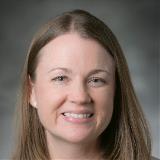
Amanda Hargrove is a Professor of Chemistry at Duke University. Prof. Hargrove’s laboratory focuses on developing small molecule probes to investigate the structure and function of RNA molecules relevant to human disease. The lab works to understand the fundamental drivers of selective small molecule-RNA recognition and to use this knowledge to functionally modulate viral and oncogenic RNA structures. Congruent with the interdisciplinary nature of this program, Prof. Hargrove holds a secondary appointment in the Biochemistry Department and membership in the Duke Cancer Institute, the Pharmaceutical Sciences Training Program, and the Center for Biological and Tissue Engineering. Recent honors include the Sloan Research Fellowship, ChemComm Emerging Investigator Lectureship, RSC Medicinal Chemistry Emerging Investigator Lectureship, NSF CAREER Award, Cottrell Scholar Award, and Prostate Cancer Young Investigator Award. In December 2019, Prof. Hargrove was appointed Editor-in-Chief of Medicinal Research Reviews. The Hargrove Lab is moving to the University of Toronto July 1, 2024 and will be part of the Centre for Medicinal Chemistry at the Mississauga campus.
Oliver Hartley, PhD, Vice President, Drug Discovery, Orion Biotechnology
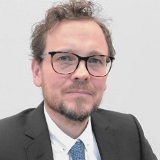
Oliver Hartley is Orion's scientific founder. He is the inventor of OB-002 as well as the key technology underlying Orion’s discovery platform. Trained as a biochemist, he completed a PhD in protein engineering (Cambridge, UK) with Sir Gregory Winter (Nobel Prize for Chemistry, 2018). Since then Oliver has worked at the University of Geneva, where he is currently an Associate Professor at the Faculty of Medicine, and at the Mintaka Foundation for Medical Research with a role as co-founder and Chief Scientific Officer. His research on peptide engineering and GPCR pharmacology has led to a series of high-profile publications and new intellectual property.
Jenna Hebert, PhD, Senior Associate, RA Capital Management
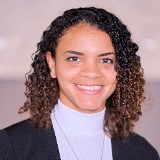
Jenna Hebert is a Senior Associate on the Venture Team at RA Capital Management, a multi-stage investment manager dedicated to company formation and evidence-based investing in healthcare and life science companies. Jenna focuses on identifying and diligencing opportunities for early-stage investments and advises RA's portfolio companies. She currently serves as a board observer for Expansion Therapeutics, Alchemab Therapeutics, and Typewriter Therapeutics. Prior to RA, Jenna was an Analyst and Medical Writer at Costello Medical Consulting. Jenna has a B.A. in Neuroscience from University of Pennsylvania and a PhD in Neuroscience from the University of Oxford.
James Hickman, PhD, Professor, NanoScience Technology Center, University of Central Florida

James J. Hickman is the Founding Director of the NanoScience Technology Center and a Professor of Nanoscience Technology, Chemistry, Biomolecular Science, Material Science and Electrical Engineering at UCF and has a Ph.D. from MIT in Chemistry. While in industry, he established one of the first bioelectronics labs in the country that focused on cell-based sensors and their integration with electronic devices and MEMS devices. He has been constructing multi-organ human-on-a-chip or body-on-a-chip systems for toxicology and efficacy with up to six organs and has demonstrated long-term (>28 days) evaluation of drugs and compounds. He has also pioneered the development of functional platforms for CNS and PNS neurodegenerative disease. He is the founder and Chief Scientist of Hesperos, that is focusing on cell-based systems for drug discovery and toxicity. He has over 170 publications, 20 book chapters and over 250 presentations, in addition he has over 40 pending and issued patents. He is a Fellow of AIMBE (2004), AVS (2007) and the National Academy of Inventors (2020). He is currently the President Elect, International Microphysiological Systems Society (IMPSS).
Klaus Hoeflich, PhD, CSO, Nested Therapeutics Inc.

Dr. Klaus Hoeflich is CSO at Nested Therapeutics. He brings over twenty years of R&D experience in small molecule drug discovery, in addition to a passion for precision medicine, to the team. As a co-founder, he was drawn to Nested’s strong commitment to pursue novel mechanisms for high-conviction targets to develop the next generation of precision oncology medicines. Previously, Dr. Hoeflich served as Senior Vice President of Biology at Blueprint Medicines, utilizing their expertise in protein kinases to advance therapies for genomic cancers, immuno-oncology, and rare genetic diseases. Previously, at Genentech his team helped advance several programs into clinical development, including the approval of Cotellic® for metastatic melanoma. Throughout his career, Dr. Hoeflich has contributed to the development of four FDA-approved cancer medicines and has published over seventy peer-reviewed research publications. Dr. Hoeflich completed a B.S. (Hons) in Biochemistry and Molecular Biology from Simon Fraser University and earned a Ph.D. in Medical Biophysics from the University of Toronto.
Ken Hsu, PhD, Stephen F. and Fay Evans Martin Endowed Associate Professor, Department of Chemistry, The University of Texas at Austin
.tmb-0.jpg)
Prof. Hsu earned his PhD in Chemistry and Biochemistry from The University of Texas at Austin and completed his postdoctoral training at The Scripps Research Institute. The Hsu Laboratory focuses on the discovery of bioactive molecules. A central theme of the group is the development of covalent probes and inhibitors for investigating protein and lipid activity. Research in the group is multidisciplinary and uses a combination of organic synthesis, bioanalytical chemistry, and bioorganic chemistry. Current efforts include identifying new reactive chemistry, quantifying ligandability of proteins on a proteomic scale, and deciphering structure and function of membrane signals in living systems. Ultimately, the goal is to develop new molecules to enable chemical biology and therapeutic discovery. Prof. Hsu’s research program has been recognized by several awards including the highly competitive NIH K99/R00 Pathway to Independence Award, Department of Defense CDMRP Career Development Award, Melanoma Research Alliance Young Investigator Award, the NSF CAREER Award, the Emerging Leader Award from The Mark Foundation for Cancer Research, and CPRIT Recruitment of Rising Stars Award.
J.C. Hus, PhD, Senior Director, Informatics, Diagonal Therapeutics
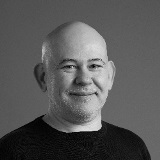
JC Hus is Senior Director of Informatics. He received an engineering degree in Nuclear Physics from Grenoble INP-Phelma, and a PhD in Biophysics from Université Joseph Fourier. He worked at the New York Structural Biology Center and Biogen after a postdoc at Harvard University, before joining Diagonal Therapeutics in March 2022.
Catherine Hutchings, PhD, Independent Consultant

Catherine has spent over 25 years acquiring significant depth of experience in antibody drug discovery and platform applications, working for cutting-edge biotech and pharma companies, such as Cambridge Antibody Technology and Heptares Therapeutics. She has been engaged as an independent consultant since 2015, providing scientific and strategic consultancy to pharma, biotech and investors, with a particular focus on GPCRs, ion channels, immuno-oncology, platform positioning and target/product evaluation. Catherine graduated with BSc Hons in Genetics and Cell Biology from University of Manchester, UK, and a PhD in Biochemistry and Applied Molecular Biology from UMIST, UK.
Generoso Ianniciello, Chief Business Officer, Anima Biotech

Executive in life sciences technology, specializing in start-ups, multi-omics, diagnostics, and platform services. At Anima Biotech, focusing on delivering innovative business models to democratize access to cutting-edge technology in mRNA and AI-driven small molecule drug discovery. Previously at Dante Labs, played a key role in developing consumer-driven genome sequencing applications and at-home diagnostics. Holds an MSc in Health Biology and a BSc in Biology from the University of L’Aquila.
Karthik Iyer, PhD, Director, Head of Medicinal Chemistry, Arrakis Therapeutics

I received my Ph.D. in Organic Chemistry from the University of Utah, followed by postdoctoral work with Prof. Sam Danishefsky at Memorial Sloan-Kettering Cancer Center, where I worked on multiple projects including the first chemical total synthesis of Erythropoietin. I then joined Ironwood Pharmaceuticals and was involved in various programs targeting cardiovascular, metabolic, CNS, and pulmonary diseases that resulted in the invention of three clinical candidates, praliciguat, olinciguat and CY6463. Currently, I am a Director, Head of Medicinal Chemistry at Arrakis Therapeutics and co-lead our collaboration with a big pharma partner.
Samie Jaffrey, MD, PhD, Professor, Department of Pharmacology, Weill Cornell Medicine; Co-Founder, Gotham Therapeutics
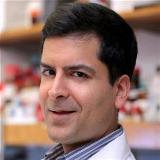
Dr. Samie Jaffrey is the Greenberg-Starr Professor at Weill Cornell Medicine. Dr. Jaffrey’s laboratory focuses on RNA biology and gene regulation. His lab introduced fluorogenic RNA aptamers for genetically encoding fluorescent RNAs. These include the Spinach aptamer, which can used for imaging RNA localization and trafficking. He also developed genetically encoded RNA-based metabolite sensors, which enable signaling and metabolic pathways to be imaged in living cells. He also helped to launch the field of “epitranscriptomics,” which relates to the diverse nucleotide modifications that impact the fate and function of mRNA and long noncoding RNAs in cells. Dr. Jaffrey’s technology for transcriptome-wide mapping of N6-methyladenosine (m6A) in 2012 revealed that m6A is a pervasive modification in the transcriptome and a fundamentally novel form post-transcriptional mRNA regulation. As a result of this m6A-mapping technology, epitranscriptomics is a rapidly developing area of molecular biology that is transforming our understanding of gene regulation in normal and disease states.
Kurt Jenkins, PhD, Director, Xilio Therapeutics

Kurt Jenkins has been working for Xilio Therapeutics for 6 years, where he is Director of Cell Pharmacology. Before Xilio, Kurt received his PhD at Irell and Manella Graduate School of Biological Sciences at City of Hope. He has been studying conditionally active biologics for 12+ years.
Rachael Jetson, PhD, Senior Director, Lead Discovery, Valo Health

Rachael Jetson is the Senior Director of Lead Discovery at Valo Health. Valo is a technology company that uses human-centric data and artificial intelligence to enable more rapid, lower-risk drug discovery. Rachael’s role at Valo is to oversee protein sciences, in vitro pharmacology, and DEL in order to support drug discovery programs from hit identification to lead optimization. Rachael has ten years of DEL experience encompassing numerous methods for library generation and selection. Rachael is continually working on growing capabilities within the DEL field using the Valo platform.
Doug Johnson, PhD, Senior Director, Chemical Biology & Proteomics, Biogen

Douglas Johnson is a Senior Director of Chemical Biology & Proteomics at Biogen in Cambridge, MA. Prior to moving to Biogen, Doug was at Pfizer for 18 years where his most recent position was Senior Scientific Director and Head of Chemical Biology in Cambridge, MA. Prior to Pfizer, Doug was an NIH postdoctoral fellow at Harvard University in the laboratory of Professor David A. Evans. He obtained his Ph.D. in organic chemistry at The Scripps Research Institute under the guidance of Professor Dale L. Boger and graduated summa cum laude from the University of Minnesota with a BS in chemistry. He is an author or inventor on more than 90 publications and patents.
Katherine Jones, Associate Science Director, R&D, Charles River Labs
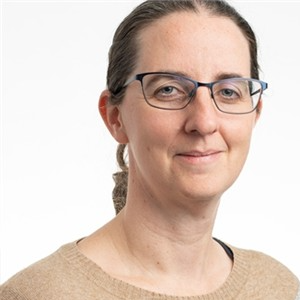
Katherine Jones is and Associate Science Director in the Small Molecule Drug Discovery Division at Charles River Laboratories, where she leads integrated drug discovery projects across a range of target classes and therapeutic areas. Katherine has over 20 years’ experience as a medicinal chemist at Charles River and GlaxoSmithKline in a wide range of therapeutic areas and modalities, delivering on projects throughout the drug discovery process from target validation and hit identification, to lead optimization and candidate selection. She has a particular interest in emerging areas of science such as protein degradation, molecular glues, and the application of new technologies to drug discovery.
Claus Jorgensen, PhD, Team Leader, Systems Oncology, Institute of Cancer Research

Dr. Claus Jorgensen is a Senior Group Leader and Deputy Director at the Cancer Research UK Manchester Institute, University of Manchester. He obtained his PhD at the University of Southern Denmark in 2005, and then moved to Toronto, Canada, for his postdoctoral training with Dr. Tony Pawson at the Samuel Lunenfeld Research Institute. In 2010, Dr. Jorgensen established his laboratory at The Institute of Cancer research, London, UK, and relocated to CRUK Manchester Institute in 2014. The main research goal of the Systems Oncology laboratory is to understand how aberrantly regulated signalling networks drive tumour progression with a specific interest in delineating and targeting cellular interdependencies between tumour and host cells in pancreatic cancer.
Diane M. Joseph-McCarthy, PhD, Professor of the Practice, Biomedical Engineering, Boston University
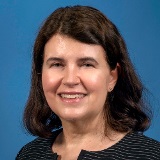
Diane Joseph-McCarthy is the Executive Director of the Bioengineering Technology & Entrepreneurship Center and Professor of the Practice in Biomedical Engineering at Boston University. Prior to that, she was a life science executive with over 20 years of drug discovery, development, and leadership experience. She was SVP of Discovery & Early Development at EnBiotix, a bioengineering company focused on respiratory and rare disease. She was an Associate Director at AstraZeneca, where she led a global team in infectious disease. At Wyeth, she held positions of increasing responsibility. Diane received her PhD from MIT and was a postdoctoral fellow at Harvard University/Harvard Medical School. She is a fellow of the American Institute for Medical and Biological Engineering.
Cigall Kadoch, PhD, Associate Professor, Pediatric Oncology, Dana-Farber Cancer Institute/Harvard Medical School; Scientific Founder, Foghorn Therapeutics
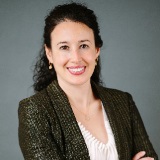
Cigall Kadoch, Ph.D., is an academic leader and entrepreneur in the biomedical sciences. She is an Associate Professor of Pediatric Oncology at the Dana-Farber Cancer Institute, Institute Member and Epigenomics Program Co-Director at the Broad Institute, and a recently-appointed Investigator of the Howard Hughes Medical Institute (HHMI). Dr. Kadoch established her independent laboratory in 2014, at age 28, one of the youngest scientists ever appointed to the Harvard Medical School faculty, immediately following completion of her Ph.D. studies at Stanford University. She is a leading expert in chromatin and gene regulation and is internationally recognized for her groundbreaking studies in these areas. Specifically, her laboratory studies the structure and function of nuclear protein complexes called chromatin remodeling complexes that govern DNA architecture and gene expression, perturbations in which are implicated in over 50% of human cancers including several in which disruption to these entities represents the driving, causative event. Dr. Kadoch is also the Scientific Founder of Foghorn Therapeutics (NASDAQ: FHTX), a company advancing a new class of medicines based on her seminal work.
Petrina Kamya, PhD, Global Head of AI Platforms, Vice President Insilico Medicine; President, Insilico Medicine Canada, Insilico

Petrina Kamya, PhD, is the Head of AI Platforms and President of Insilico Medicine, Canada an end-to-end artificial intelligence-driven drug discovery company. Before joining Insilico, Dr. Kamya spent eight years in various roles at Chemical Computing Group that involved scientific and business-related aspects of preclinical drug discovery. In addition to establishing the corporate strategy for the sales and business development of molecular modeling software for academia, she also played an active role as an application scientist working on real-world discovery projects and finally in a senior role in strategy and business development for pharma and biotech companies. Following her time at CCG, Petrina moved to Certara as a Market Access Manager, where she learned first-hand the challenges of getting drugs to market. Petrina has been with Insilico Medicine since August 2020. She holds a PhD in Chemistry (specializing in computational chemistry) from Concordia University.
H. ümit Kaniskan, PhD, Associate Professor, Laboratory of Dr. Jian Jin, Department of Pharmacological Sciences, Icahn School of Medicine at Mt. Sinai

H. ümit Kaniskan is an Associate Professor in the Department of Pharmacological Sciences and Associate Director of Mount Sinai Center for Therapeutics Discovery at the Icahn School of Medicine at Mount Sinai. He earned his PhD in organic chemistry at Case Western Reserve University under the supervision of Dr. Philip Garner. During his doctoral study, he completed the formal total synthesis of Bioxalomycin ß2 and Cyanocycline A. He then pursued his postdoctoral studies in Dr. Movassaghi's group at Massachusetts Institute of Technology (MIT), while working on the synthesis of Myrmicarin alkaloids. In January 2013, Dr. Kaniskan joined Dr. Jin's laboratory at the University of North Carolina at Chapel Hill and later at the Icahn School of Medicine at Mount Sinai as a postdoctoral researcher in the Department of Pharmacological Sciences. His research focuses on the targeted protein degradation (TPD), development of inhibitors of protein methyltransferases as well as biased ligands of G protein-coupled receptors, in efforts to discover innovative therapeutics for the treatment of human diseases including cancer and brain disorders. Dr. Kaniskan has published more than 40 peer-reviewed papers is also an inventor of 9 published international patent applications.
Jamie Kasuboski, PhD, Partner, Luma Group

Jamie is a Vice President with OMX Ventures. Prior to OMX, Jamie developed deep experience in early-stage biotech investing and company creation while working on the investment team at RA Capital. In that role, he served on the board of Enara Bio, Avilar Therapeutics, and Hyku Therapeutics. Before joining RA, he was a Director at Boehringer Ingelheim Venture Fund and served as a Board Director of both Tilos Therapeutics (acquired by Merck & Co.) and Rewind Therapeutics.
Vince Kelly, PhD, Graduate Research Assistant, Biochemistry, University of Illinois
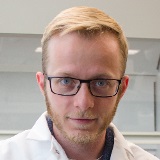
Dr. Kelly is a Postdoctoral Associate in the lab of Tim Whitehead at the University of Colorado, Boulder. He received his PhD from the University of Illinois in the lab of Professor Shannon Sirk. Prior to his PhD, he spent two years as a research scientist in animal biopharma. His doctoral dissertation research focused on improving the accessibility of antibody-based therapeutics by engineering small antibody fragments to enhance therapeutic utility, improve pharmacokinetics, and enable alternative delivery. Using a combination of rational surface engineering, multimerization, and receptor-binding strategies, he developed engineered single-domain antibodies with extended half-life capable of transport across polarized cell barriers in a mouse model. His postdoctoral work centers on engineering growth factors and cytokines for functionalized biomaterial therapeutics. He is also interested in using his experience to illuminate and support non-traditional and non-linear academic career paths, parenting as a graduate student, and mental health in academia.
Terrence P. Kenakin, PhD, Professor, Pharmacology, University of North Carolina at Chapel Hill

Beginning his career as a synthetic chemist, Terry Kenakin received a PhD in Pharmacology at the University of Alberta in Canada. After a postdoctoral fellowship at University College London, UK, he joined Burroughs-Wellcome as an associate scientist for 7 years. From there, he continued working in drug discovery for 25 years first at Glaxo, Inc., then Glaxo Wellcome, and finally as a Director at GlaxoSmithKline Research and Development laboratories at Research Triangle Park, North Carolina, USA. Dr. Kenakin is now a professor in the Department of Pharmacology, University of North Carolina School of Medicine, Chapel Hill. Currently he is engaged in studies aimed at the optimal design of drug activity assays systems, the discovery and testing of allosteric molecules for therapeutic application, and the quantitative modeling of drug effects. In addition, he is Director of the Pharmacology graduate courses at the UNC School of Medicine. He is a member of numerous editorial boards, as well as Editor-in-Chief of the Journal of Receptors and Signal Transduction. He has authored numerous articles and has written 10 books on pharmacology.
Mitchell H. Keylor, PhD, Associate Principal Scientist, Merck
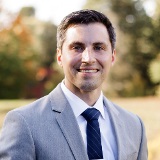
Mitch Keylor joined the Discovery Chemistry team at Merck in 2018 after completing his PhD and postdoctoral research on natural product total synthesis and methodology development, with this work represented in 7 peer-reviewed publications in high-impact journals. In his nearly seven years with Merck, Mitch has contributed to target identification and validation, lead generation, lead optimization, and project leadership across disease areas including neurodegeneration, oncology, and immuno-oncology. During his time in the industry, Mitch has co-authored 3 peer-reviewed publications and is co-inventor on 7 patents, with additional manuscripts and patent applications in preparation. Beyond the pipeline, Mitch contributes to talent acquisition and development as a Merck recruiting ambassador, scientific mentor, and people manager. He is passionate about scientific engagement both within and external to Merck, as exemplified by his multi-year role as co-organizer of an annual Merck lectureship at the University of Michigan and his roles as journalist and representative across multiple forums within the Merck network where he has championed knowledge-sharing.
Jaspreet Khurana, PhD, Senior Director, mRNA Programming, Strand Therapeutics Inc.

Dr. Jaspreet Khurana is an RNA molecular biologist by training who is passionate about transforming innovative platforms into meaningful therapies for patients. Following a PhD in Biomedical Sciences from UMass medical school, Worcester, he joined Princeton and Columbia University for a postdoc where he utilized functional genomics to study genomic rearrangements. With 13+ years of post-PhD expertise in RNA molecular biology, he has proven experience leading cross-functional teams across early stages of drug development. Currently he is focused on mRNA platform development for immunotherapy programs at Strand Therapeutics.
Shota Kikuchi, PhD, Director, Chemistry, Vividion Therapeutics

Dr. Shota Kikuchi is the Director of Medicinal Chemistry at Vividion Therapeutics, leading the development of covalent small molecules for oncology targets. He previously worked on CNS targets at Takeda California and Envoy Therapeutics. He holds a PhD from Harvard University.
Nicholas King, MS, Executive Director, Critical Path Institute

Mr. King has held several roles during his tenure at C-Path. In 2010, he joined C-Path as a project manager for the Predictive Safety Testing Consortium (PSTC). As project manager and senior project manager, Mr. King managed projects within PSTC for several working groups, including the Hepatotoxicity, Pancreatic Injury, Skeletal Muscle Injury, and Vascular Injury. He was promoted to scientific program manager and associate director for the Translational and Safety Sciences Program. In these roles, Mr. King provided input on regulatory science and analytical considerations for drug development tools and operations and logistics across the program. Since joining C-Path, Mr. King has contributed to more than 10 Letters of Support for safety biomarkers; co-chaired sessions at the PSTC Annual Workshop, the Society of Toxicology Annual Meeting, and the PSTC Japan Safety Biomarker Conference; and published articles on safety biomarkers. Mr. King’s graduate studies comprised research on cardiac and skeletal muscle physiology and mechanics. Prior to graduate school, Mr. King served as a Peace Corps Volunteer in the West African country of Cape Verde.
Dmitri Kireev, PhD, Professor, Department of Chemistry, University of Missouri
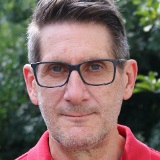
Dr. Kireev is an expert in a broad area of drug discovery and life sciences with a specific focus on computer-aided drug design. During over 25 years in the industry and academia, Dr. Kireev has been involved in the discovery of several drugs and drug candidates, co-invented a kinase-targeted cancer therapeutic, currently in clinical trials, and co-authored over 100 patents and publications. His research program also includes computational biophysics and development of new AI-powered CADD approaches.
Ralph Kleiner, PhD, Assistant Professor, Department of Chemistry, Princeton University

Ralph Kleiner was born in Syracuse, NY and attended Princeton University, where he received an A.B. in Chemistry and performed research on the de novo design of 4-helix bundle proteins in the laboratory of Michael Hecht. He then completed his Ph. D. in Chemistry at Harvard University under the direction of David Liu, where he used DNA-templated chemistry to identify novel macrocyclic inhibitors of Src kinase and Insulin-Degrading Enyzme (IDE). He went on to conduct his postdoctoral studies as a Damon Runyon Postdoctoral Fellow with Tarun Kapoor at The Rockefeller University. His postdoctoral work used chemical proteomics to study phosphorylation-dependent protein-protein interactions in the DNA damage response. In September 2016, Ralph began his appointment as an Assistant Professor in the Department of Chemistry at Princeton University. His research lies on the interface of chemistry and biology, focusing on the development and application of novel chemical approaches to study post-transcriptional “epitranscriptomic” modifications occurring on cellular mRNA. He is a recipient of the Damon Runyon Dale F. Frey Award for Breakthrough Scientists, the Sidney Kimmel Foundation Scholar Award, the Alfred P. Sloan Foundation Research Fellowship, and the National Science Foundation CAREER Award.
Thomas Kodadek, PhD, Professor, Department of Chemistry, University of Florida, Scripps Biomedical Research

Prof. Thomas Kodadek received his B.S. in Chemistry at the University of Miami (FL) in 1981 and his Ph.D. in Organic Chemistry from Stanford University in 1985. He then pursued postdoctoral studies in the laboratory of Prof. Bruce Alberts at the University of California, San Francisco Medical School from 1985-1987. In the fall of 1987, he joined the faculty of Chemistry & Biochemistry at the University of Texas at Austin, rising to the rank of full professor. In 1998, he moved to the University of Texas Southwestern Medical Center in Dallas where he served as Professor of Internal Medicine and Molecular Biology, as well as the Director of the Division of Translational Research. In June 2009, Prof. Kodadek moved to the Scripps Research Institute campus in Jupiter, FL (now UF Scripps Biomedical Research) where he is Professor of Chemistry. Prof. Kodadek works in the field of chemical biology, which involves the development of chemical tools to monitor and manipulate important processes in biology and medicine. He co-founded Deluge Biotechnologies in 2017 and Triana Biosciences in 2022.
Angela Koehler, PhD, Associate Professor, Biological Engineering, Massachusetts Institute of Technology

Angela Koehler is an Associate Professor in the Department of Biological Engineering at MIT and an Associate Director of the David H. Koch Institute for Integrative Cancer Research at MIT. She is also an Institute Member of the Broad Institute and a Founding Member of the MIT Center for Precision Cancer Medicine. Her research group aims to discover and develop functional small-molecule probes of targets emerging from patient-based genomics, including targets deemed recalcitrant to small molecule drug discovery efforts, such as transcription factors, RNA-binding proteins, or cytokines. Selected probes may be developed into imaging agents, diagnostic tools, or therapeutic leads. Angela received her B.A. in Biochemistry and Molecular Biology from Reed College in 1997 and her Ph.D. in Chemistry from Harvard University in 2003. Upon graduation, she became an Institute Fellow in the Chemical Biology Program at the Broad Institute and a Group Leader for the NCI Initiative for Chemical Genetics. Awards include being named a Genome Technology Young Investigator and a Broad Institute Merkin Fellow as well as the Novartis Lectureship in Chemistry, the Ono Pharma Breakthrough Science Award, the AACR-Bayer Innovation and Discovery Award and the MIT Junior Bose Award for Excellence in Teaching. Angela serves as a consultant or scientific advisory board member to several pharmaceutical or biotechnology companies and has founded three biotechnology companies, Ligon Discovery, Kronos Bio, and 76Bio.
Stephanie Kourula, PhD, Principal Scientist, Johnson & Johnson Innovative Medicine

Stephanie Kourula is a Principal Scientist in the Translational PK/PD Investigative Toxicology Department at Johnson & Johnson Innovative Medicine (J&J IM) in Belgium. After gaining a PhD in Pharmacology at the Martin-Luther University (Halle-Saale, Germany) and performing her postdoctoral research in the field of intestinal inflammation at Stanford University (USA) and at the Flemish Institute for Biotechnology (Belgium) she joined J&J IM in 2017. At J&J IM she is specialized in mechanism based drug disposition and organotypic models for translational ADME research.
Dima Kozakov, PhD, Associate Professor, Applied Mathematics & Statistics, SUNY Stony Brook

Dima Kozakov received an MS in Applied Mathematics and Physics at the Moscow Institute of Physics and Technology, and PhD in Biomedical Engineering at Boston University. Currently he is the Associate Professor in the Department of Applied Mathematics at Stony Brook University, Affiliate Member at Laufer Center for Physical and Quantitative Biology, and Affiliate Member at Institute of Advance Computational Sciences. Before joining Stony Brook he held a research faculty position at Boston University. Dr. Kozakov is interested in method development for modeling of biological macromolecules, with emphasis on molecular interactions and drug design. Dr. Kozakov’s approaches, PIPER for protein docking and FTMap for hotspot identification, are heavily used in the pharmaceutical industry and are consistently top-performing in blind molecular modeling completions.
Nava Krishnan, PhD, Associate Research Fellow, Primary Pharmacology Group, Pfizer Inc.

Enzymologist with experience in academia and industry with expertise in protein biochemistry and signal transduction. Identified, characterized and validated drug targets in preclinical models for oncology, diabetes, immunology and neurological disorders. Expertise in phenotypic drug discovery and target deconvolution.
Casey J. Krusemark, PhD, Associate Professor, Medicinal Chemistry & Molecular Pharmacology, Purdue University
.tmb-0.png)
Casey obtained his Ph. D. in Biochemistry at the University of Wisconsin-Madison in the area of chemical biology, with an emphasis on new chemical tools for mass spectrometry-based proteomic analysis. He then conducted postdoctoral training at Stanford University working on the directed evolution of synthetic molecules using DNA programmed synthesis. He began his independent career in 2013 at Purdue University in the Department of Medicinal Chemistry and Molecular Pharmacology. His group works on applications of DNA-encoded libraries with a focus on novel selection approaches for expanding DEL target scope and the use of DNA-encoded molecules as proteomic activity probes.
Jan Kubicek, CSO & Co Founder, Cube Biotech GmbH
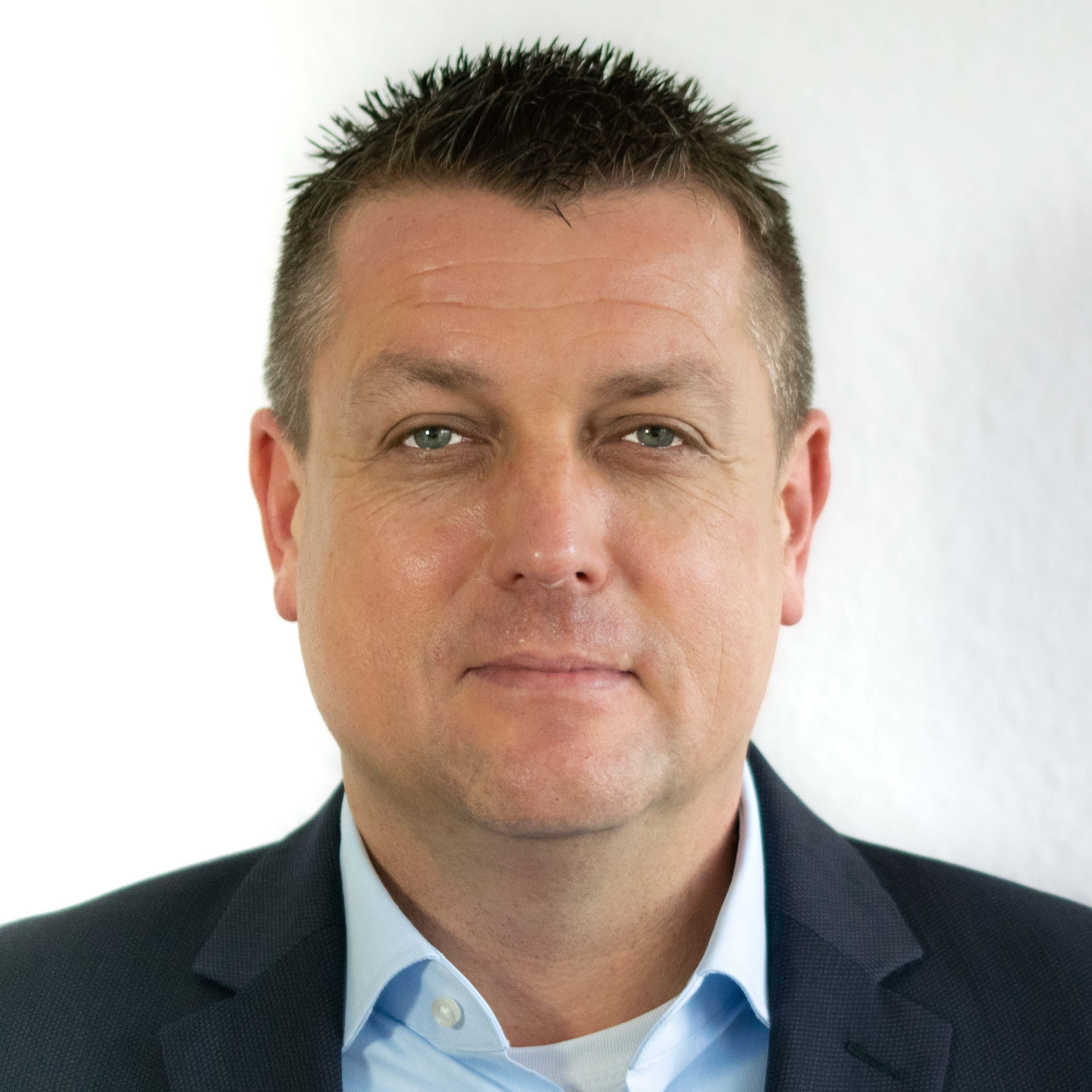
Dr. Jan Kubicek holds a PhD in biology from the University of Duesseldorf/Helmholtz Research Center Juelich. He continued his work on the crystallization of membrane proteins as a post-doctoral fellow in Juelich. In 2006, he joined Qiagen where he was responsible for product development of recombinant protein expression, purification, and crystallization products. In cooperation with Prof. Joerg Labahn (now Centre for Structural Systems Biology (CSSB) at the DESY in Hamburg), he developed the Controlled in Meso Phase Crystallization (CIMP) method for the crystallization of membrane proteins. In 2012, he co-founded Cube Biotech and is now the CSO, overseeing all development in the laboratory.
Hui Si Kwok, PhD, Postdoctoral Fellow, Laboratory of Dr. Brian Liau, Department of Chemistry and Chemical Biology, Harvard University
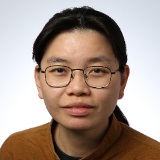
Hui Si received her PhD from National University of Singapore, where she studied transcriptional regulation in normal and malignant hematopoiesis in the lab of Dr. Daniel Tenen. In 2019, she joined Dr. Brian Liau’s lab and has since been working on understanding the regulatory mechanisms of cancer-associated chromatin complexes and exploring new cancer vulnerabilities. Her research focuses on Polycomb Repressive complex 2 (PRC2), and she applies genome editing approaches, including base editing, to define functions of variants at-scale and discover new biology in PRC2.
Madhu Lal Nag, PhD, CSO, InSphero

Dr. Nag is a scientific and executive leader with a profound expertise in developing preclinical MPS (MicroPhysiological Systems) and 3D models, targeted therapies, biomarker discovery, and the application of cutting-edge technologies across various domains including toxicology, safety pharmacology, oncology, functional genomics, and stem cell research. She currently serves as the Chief Scientific Officer at InSphero AG. Madhu holds a Doctor of Philosophy (PhD) in Molecular and Cellular Oncology from George Washington University and a master’s degree in Bioscience Business from Keck Graduate Institute. Her primary goal is to unify the academic and translational facets of pioneering science in oncology, metabolic diseases, and investigative toxicology. Leveraging insights from contemporary therapeutic regimens, Madhu creatively translates state-of-the-art research to promptly address patient requirements.
Michael Lambrecht, PhD, Principal Scientist, Drug Discovery, Genentech

Michael Lambrecht is a Principal Scientist in Discovery Chemistry at Genentech, Inc. Prior to Genentech, he completed his B.S. in Chemistry at the University of Wisconsin-Madison and PhD in Chemistry at the University of Illinois at Urbana-Champaign. Mike was an Arnold O. Beckmann Postdoctoral Fellow at Scripps Research. At Genentech, Mike works as a medicinal chemist and has worked on a variety of modalities to drug targets across multiple therapeutic areas.
David Lapinsky, PhD, Associate Professor, Medicinal Chemistry, Duquesne University School of Pharmacy and Graduate School of Pharmaceutical Sciences

Dave Lapinsky received his PhD degree from The Ohio State University, working with Prof. Stephen Bergmeier. This was followed by an NIH postdoctoral fellowship with Prof. Gary Posner at Johns Hopkins University. He joined the faculty of Rice University as a Wiess Instructor of Chemistry in 2004 and moved to his present position on the faculty of the School of Pharmacy and Graduate School of Pharmaceutical Sciences at Duquesne University in 2007. His group has produced numerous photoreactive probes for drug targets associated with mental health and addiction, including DAT, SERT, mGlu2, and mGlu5. His current interests include developing valuable building blocks for chemical biology probe synthesis.
Niklas Larsson, PhD, Principal Scientist, AstraZeneca R&D

Niklas Larsson is Principal Scientist at AstraZeneca, working at the Gothenburg site within the Discovery Sciences function. He obtained his Ph.D. (2000) at Umeå University (Sweden) at the Department of Cell and Molecular Biology. Niklas has more than 20 years of experience in the pharmaceutical industry in roles such as Principal Scientist, Team Leader and Project/Discipline Lead for drug discovery projects from target selection to delivery of clinical candidates. His areas of expertise include the biological aspects of hit and lead finding and the drug drug discovery process in general with a specific interest in cellular assay development, high throughput compound screening and mechanism of action studies, in particular regarding molecular pharmacology of GPCRs. Niklas has authored or co-authored 30 publications including high impact papers and magazine reviews on GPCR drug discovery.
Wankyu Lee, PhD, Senior Research Scientist, AstraZeneca Pharmaceuticals

Wankyu Lee is a Senior Research Scientist at AstraZeneca in Discovery Sciences. He obtained his PhD at MIT in JoAnne Stubbe's lab before performing a postdoc at Pfizer under the guidance of Hua Xu. He spent one year at Dewpoint Therapeutics, performing target validation and engagement studies in applications for biomolecular condensates. His current research focus at AstraZeneca is on targeted proteomics, assay development, and high throughput implementation of proteomics, especially in the context of covalent compounds and degraders, molecular glues.
Hong Myung Lee, PhD, Senior Scientist, Medicinal Chemistry, Takeda Pharmaceuticals Inc.

Hong Myung Lee grew up in South Korea and obtained B.S. in chemistry at Seoul National University. He came to US for an advanced degree and received Ph.D. in chemistry at Harvard University in 2009 under the supervision of Professor Matthew D. Shair, with the research on the development of enantioselective aldol reactions and the total synthesis of a natural product Cortistatin A. He started his industrial research career as a medicinal chemist by joining Takeda Pharmaceuticals at Cambridge, MA in 2009 where he is currently a Principal Scientist. His research focus has been the development of small molecule drugs and antibody-drug conjugates on oncology.
Jianing Li, PhD, Assistant Professor, Medicinal Chemistry and Molecular Pharmacology, Purdue University
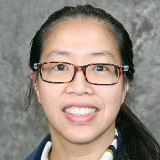
Dr. Jianing Li is an Associate Professor in the Borch Department of Medicinal Chemistry and Molecular Pharmacology (MCMP) in the College of Pharmacy at Purdue University. Dr. Li received her B.S. degree in Chemical Physics from the University of Science and Technology of China (2006) and her Ph.D. in Chemical Physics from Columbia University in the City of New York (2011). After three years of postdoctoral training at the University of Chicago, she joined the University of Vermont and rose to Associate Professor with tenure in 2020. In 2022, Dr. Li joined MCMP at Purdue and is now a member of the Purdue Institute of Drug Discovery, Purdue Institute of Cancer Research, and Purdue Institute of Inflammation Immunology and Infectious Disease. Dr. Li’s current research focuses on the innovation of multiscale modeling approaches and artificial intelligence (AI)/machine learning (ML) for drug discovery, which allows accurate and efficient design of small molecules, biologics, and nanoparticles for potential therapeutics and drug delivery. She has authored over 70 peer-reviewed publications and book chapters, contributed to 3 commercial software programs, and over 4 patents for new drugs. Her research program has received support from federal (NIH, NSF, and USDA) and private agencies. So far, she has trained over 20 young students and scholars who are now active researchers in academia and the pharmaceutical industry. Dr. Li has received several recognitions and awards, including the ACS PRF Doctoral New Investigator Award (2017), the OpenEye Junior Faculty Award in Computational Chemistry (2019), the NSF CAREER award (2020) and the AnalytiXIN Fellow (2023).
Donny Licatalosi, PhD, Head, RNA Biology, Takeda Pharmaceutical Company
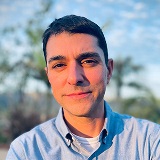
Donny Licatalosi is the Head of RNA Biology at Takeda Pharmaceuticals San Diego. Prior to joining Takeda in 2022, he was an Associate Professor in the Center for RNA Science and Therapeutics and the Department of Biochemistry at Case Western Reserve University. Donny completed his PhD research in 2004 at the University of Colorado, studying how mRNA processing is coupled to transcription. During postdoctoral research in Robert Darnell’s lab at Rockefeller University, he led the development and application of CLIP and RNA profiling tools to identify the roles of select RNA binding proteins in tissue-specific mRNA regulation. As an independent investigator, Donny’s lab developed high resolution biochemical and genetic tools to study RNA binding proteins and mRNA regulatory programs in diverse cell biological contexts. At Takeda, Donny leads the RNA Modulation team within Drug Discovery Sciences.
Yu-Shan Lin, PhD, Associate Professor, Chemistry, Tufts University
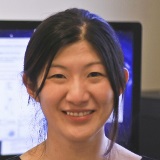
Yu-Shan Lin obtained her PhD in Chemistry from University of Wisconsin, Madison, in 2009, and she was a postdoctoral fellow at Stanford from 2009 to 2012. In 2012, Yu-Shan established her research group at Tufts University, where she received tenure in 2018. Yu-Shan’s current research endeavors focus on using molecular dynamics simulation and machine learning to understand and design structures and properties of peptides, in particular cyclic and other restrained peptides. Yu-Shan recently received the Machine Learning in the Chemical Sciences & Engineering Award from the Camille and Henry Dreyfus Foundation (2020), the Rising Innovator Award from Tufts University (2023), and the Annual Women Leadership Award from the Rotary Club of Cambridge Massachusetts (2023).
Tao Liu, PhD, Associate Professor and Research Group Leader, Gene Dysregulation Group, Children's Cancer Institute Australia, University of New South Wales

Originally trained as a medical practitioner, Associate Professor Tao Liu obtained his PhD degree from The University of New South Wales, Sydney, Australia. He is currently the Group Leader of Gene Dysregulation Group at Children’s Cancer Institute Australia. Associate Professor Liu has extensive experience in studying the roles of long noncoding RNAs, RNA methyltransferases and super-enhancers in modulating gene transcription, mRNA translation into proteins, malignant transformation, tumor initiation and progression in vitro and in mouse models. More recently, his research focuses on identifying small molecule compound inhibitors of long noncoding RNAs and RNA methyltransferases and demonstrating their anticancer efficacy in vitro and in mouse models.
Stina Lundgren, Head of Business Development, Pelago Bioscience
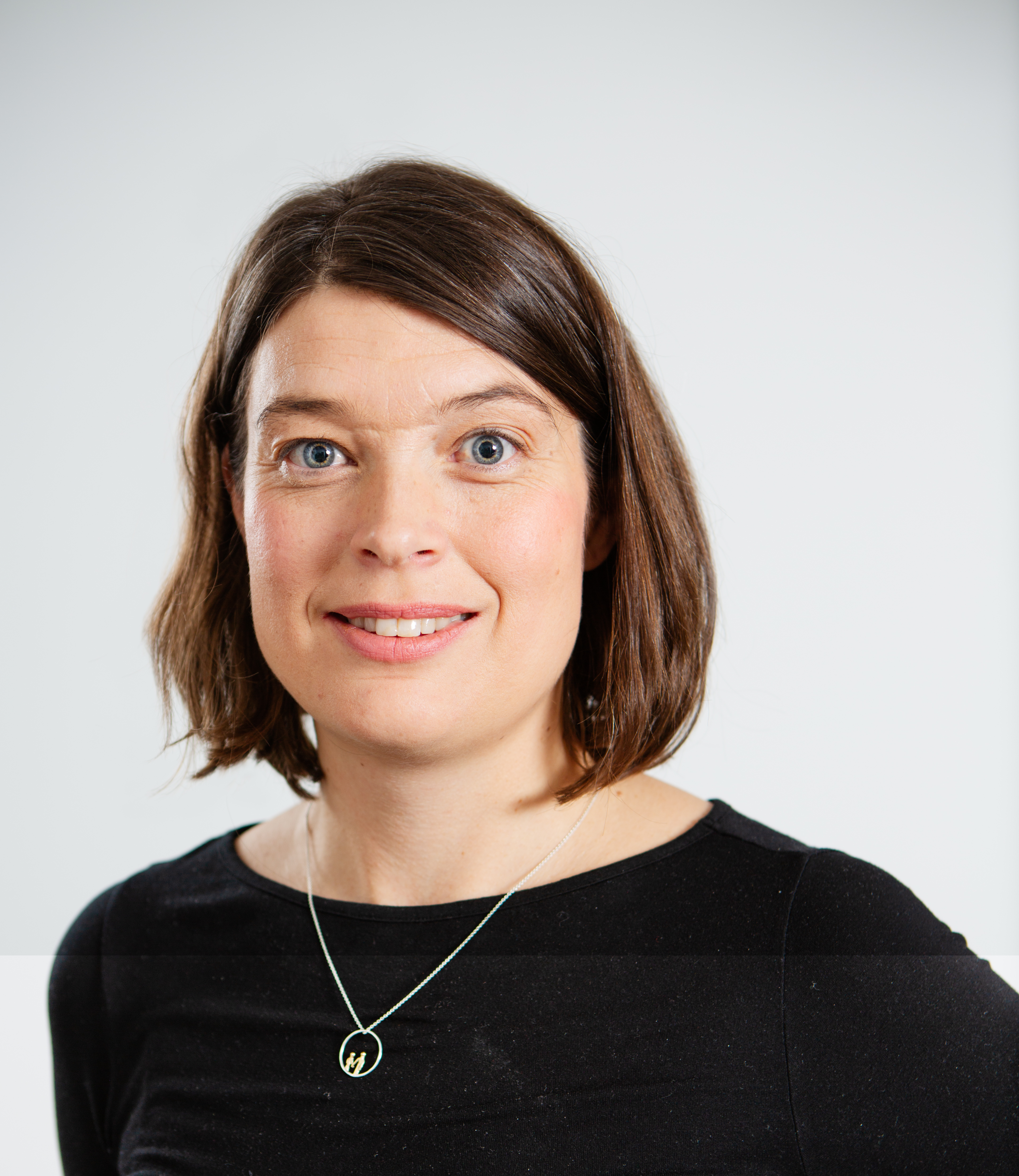
Stina Lundgren, PhD, serves as the Head of Business Development at Pelago Bioscience, leveraging her extensive expertise in drug discovery. Stina is a medicinal chemist by training and has a long experience working as a project leader on multiple small-molecule preclinical programs. Before joining Pelago Bioscience, she held the position of Principal Scientist at Medivir, where she lead projects from target discovery to preclinical as well as establishment of a DUBs research platform.
Yingli Y Ma, PhD, CTO, Platform Technology, Structure Therapeutics Shanghai Basecamp Biotechnology Co

Dr. Ma has 15+ years of technology and drug discovery experience in pharma-biotech settings and is currently the Chief Technology Officer of Structure Therapeutics. Prior to joining Structure, Dr. Ma was site head and General Manager of Amgen Biopharmaceutical R&D Center (Shanghai), responsible for Amgen’s structural biology globally and China research platforms, supporting all preclinical drug discovery projects including small molecule and biologics in multiple disease areas. Prior to Amgen, she was at GlaxoSmithKline, supporting multiple preclinical drug discovery programs across a variety of target classes for target validation, protein characterization, biophysics and structural biology studies in the fields of neuroscience, regenerative medicine and mitochondria biology. Dr. Ma completed postdoc training under the tutelage of the late Nobel Laureate Dr. Gunter Blobel at the Rockefeller University and obtained her Ph.D from University of Pennsylvania.
Susruta Majumdar, PhD, Associate Professor, Clinical Pharmacology, St. Louis College of Pharmacy, University of Washington

Sush Majumdar is an Associate Professor of Medicinal Chemistry and Pharmacology in the Center for Clinical Pharmacology at UHSP & Washington University. He has PhD from University of Florida College of Pharmacy, Gainesville, FL, and was a Research Fellow under Late Gavril W Pasternak in Neuropharmacology at Memorial Sloan Kettering Cancer Center, NY, NY. His lab focusses on synthesis of chemical probes to interrogate opioid signaling and function with the aim of designing functionally selective opiates.
Fred Manby, DPhil, Co-Founder & CTO, Iambic Therapeutics

Iambic Co-Founder and CTO Fred Manby has over 30 years of experience in developing technologies for understanding and discovering molecules. Much of his academic career was spent as a professor in chemistry at the University of Bristol in the UK, and his research resulted in over 200 publications and numerous awards. In 2019, he co-founded Iambic (at that time called Entos) with the mission of combining AI technologies and automation to revolutionize small-molecule drug discovery.
Jasmina Marjanovic, PhD, Partner, Takeda Ventures

Jasmina is currently Partner at Takeda Ventures, having joined the team in 2023. She is a trained scientist with over a decade of combined experience in academia, drug discovery, business development and Venture investing. Prior to joining Takeda Ventures, Jasmina spent 10 years with AbbVie. Her latest role was within AbbVie’s Venture team with focus on strategic investments for the company. Prior to joining AbbVie Ventures, she was part of AbbVie’s Search and Evaluation team sourcing strategic partnerships across all stages of asset development. As trained chemist with experience in chemical biology, Jasmina began her career in drug discovery at AbbVie and has spent part of her career as part of clinical development team. Before joining Abbott/AbbVie, Jasmina conducted her post-doctoral training at Harvard University, after receiving her PhD in organic chemistry from The University of Chicago.
Brent Martin, PhD, Vice President, Chemical Biology, Scorpion Therapeutics
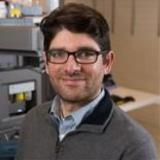
Brent Martin received his Ph.D. in Pharmacology at the University of California in San Diego developing new chemical strategies for correlated fluorescence and electron microscopy. He then carried out postdoctoral studies at the Scripps Research Institute developing new strategies for activity-based profiling, high-throughput screening, and chemical proteomics. As faculty member at the University of Michigan in Ann Arbor, he continued expanding the scope of activity-based profiling methods, while also establishing new bioconjugation reactions to detect and profile protein lipidation, redox modifications, and cysteine occupancy. Brent is the recipient of the NCI Howard Temin K99/R00 award in Cancer Research, the NIH Director’s New Innovator Award, and the NIGMS MIRA Established Investigator Award. He then moved to industry to lead the Chemical Biology at Janssen and is currently Vice President and Head of Chemical Biology at Scorpion Therapeutics.
Jordan Mattheisen, PhD, Postdoctoral Fellow, Chemical Biology, AstraZeneca
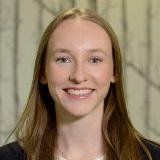
Jordan Mattheisen received her B.Sci. degree in Biochemistry from Simmons University in Boston in 2017. She joined the Tri-Institutional Program in Chemical Biology as a graduate student and received her PhD from The Rockefeller University in 2023. Her dissertation focused on GPCRs and the development of a method to enhance fragment-based drug screening in live cells using genetic code expansion technology and bioorthogonal chemistry. She is currently working as a postdoctoral fellow in the Chemical Biology and Proteomics group at AstraZeneca, with a maintained interest in membrane proteins and targeted protein degradation modalities.
Ralph Mazitschek, PhD, Assistant Professor, Harvard Medical School; Co-Director of the Chemical Biology Platform, Center for Systems Biology, Massachusetts General Hospital

Dr. Mazitschek is an Assistant Professor at Harvard Medical School and Co-Director of the Chemical Biology Platform at the Center for Systems Biology at Massachusetts General Hospital (MGH). Dr. Mazitschek is also Assistant Professor in the Department of Immunology and Infectious Diseases at the Harvard T.H. Chan School of Public Health, and Associate Member of The Broad Institute of Harvard and MIT.Dr. Mazitschek graduated from the University of Leipzig in 2002 with a PhD in Organic Chemistry. He continued his research at the Institute of Chemistry and Cell Biology (ICCB) at Harvard Medical School first as postdoc and later as Institute Fellow, from which he joined the Chemical Biology Program at the newly founded Broad Institute of Harvard and MIT. In 2008 he joined the faculty of the Center for Systems Biology at the Massachusetts General Hospital to continue his independent research.
Patrick McEnaney, PhD, Senior Scientist, High Throughput Chemistry, insitro

Patrick J. McEnaney is a senior scientist at insitro in the high-throughput chemistry department, where he utilizes new selection technology with DNA encoded libraries to generate data and discover hits to targets of interest. He received his PhD in Organic Chemistry in the lab of Prof. David A. Spiegel at Yale University where he focused on the discovery and development of synthetic molecules for modulating immune responses. This was followed by postdoctoral training at the Scripps Research Institute under the mentorship of Prof. Thomas J. Kodadek where he helped pioneer solid-phase DNA encoded libraries and flow cytometry based selection techniques to effectively utilize them as a discovery platform.
Lynn McGregor, PhD, Senior Principal Scientist, Novartis BioMedical Research
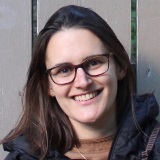
Lynn McGregor, Ph.D., is a Senior Principal Scientist in Discovery Sciences at Novartis Biomedical Research. As a graduate student in the laboratory of David R. Liu at Harvard, Lynn developed methods to conduct DNA-encoded library x library binding assays. As a postdoctoral fellow, Lynn conducted research aimed at covalently targeting KRAS G12D in the laboratory of Kevan Shokat at the University of California, San Francisco. Lynn joined NIBR in 2017 and applies approaches from chemical biology to drug discovery.
Campbell McInnes, PhD, Professor, Drug Discovery & Biomedical Sciences, University of South Carolina

Campbell McInnes, PhD, is Professor in Medicinal Chemistry at the University of South Carolina in Columbia, has experience in Drug Discovery in both Industry and in Academia. Prior to joining USC, he was the Head of Structure-Based Drug Design at Cyclacel Pharmaceuticals, a company started by Professor Sir David Lane, one of the discoverers of the P53 tumor suppressor protein. Research in the McInnes Laboratory centers on discovering novel chemical entities based on inhibiting protein-protein interactions and specifically focuses on using the REPLACE methodology, a structure-guided fragment-based design approach employing the techniques of computational chemistry, structural biology, and synthetic organic chemistry. REPLACE is being applied to develop selective kinase inhibitors where a clear rationale for kinase selectivity has been established or where targeting the ATP binding site is problematic and current targets include PLK1, CDK2, and BRAF. Dr. McInnes has also founded the PPI Pharmaceuticals, LLC, to commercialize his academic discoveries.
Laurent Meeus, Chief Scientist & Business Unit Director, EuroscreenFast, Epics Therapeutics

Dr. Laurent Meeus is the Chief Scientist and Director of the EuroscreenFast Business Unit within Epics Therapeutics. Laurent has spent the last 10 years growing the organisation into the specialist GPCR research and development partner that it is today. He has a PhD in Biomedical & Pharmaceutical Sciences and an MSc in Chemistry from the University of Brussels (ULB) and has been instrumental in developing the technology that underpins the company’s offering. Prior to EuroscreenFast, Laurent has worked for Ogeda SA before its sale to Astellas, and with the precursor Euroscreen SA prior to ownership by Epics Therapeutics.
Ben Meinen, PhD, Head, Protein Design, AI Proteins
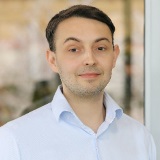
Dr. Ben Alexander Meinen earned his PhD in Biochemistry from Martin-Luther University Halle-Wittenberg, he conducted research in protein folding and aggregation under the mentorship of James Bardwell at the University of Michigan. He performed his postdoctoral studies at the Institute for Protein Innovation with Dr. Chris Bahl focusing on de novo protein designs. As a founding scientific member and the current Head of Protein Design at AI Proteins, Dr. Meinen has been pioneering de novo protein design for miniproteins as a new therapeutic modality.
Elijah Mena, PhD, Post-Doctoral Researcher, Laboratory of Dr. Stephen Elledge, Department of Genetics, Harvard University Medical School
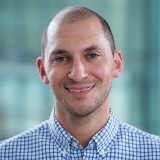
Dr. Mena is a postdoctoral researcher in the laboratory of Stephen Elledge at Harvard Medical School and Brigham and Women’s Hospital where he is developing new technologies to study protein degradation. During his PhD in the laboratory of Michael Rape at University of California, Berkeley, Dr. Mena identified a cellular quality control pathway that ensures that a recurrent protein dimerization domain is paired with the correct binding partners. In his postdoc, he has developed new technologies for the systems-wide understanding of protein degradation, including through multiplexed CRISPR screening and base editor screening. He was a Jane Coffin Childs postdoctoral fellow and is currently supported by a K99 Pathway to Independence award from the NIH.
Samy O. Meroueh, PhD, Professor, Biochemistry, Member of Cancer Center Drug Discovery Program, University of Illinois Urbana-Champaign

I received a PhD from the Department of Chemistry at Wayne State University in the laboratory of William Hase. There, I explored and developed methods to model intermolecular forces that drive molecular recognition and ensuing chemical reactions. As a postdoc, I joined the bioorganic laboratory of Dr. Shahriar Mobashery first at Wayne State University and then at the University of Notre Dame. I worked on understanding the mechanism by which ß-lactamases hydrolyze ß-lactam antibiotics. I was also involved in the development of mechanism-based (covalent) small-molecule inhibitors of matrix metalloproteinases, cathepsins, and ß-lactamases. In my lab at Indiana University, we develop small molecules to modulate the function of proteins involved in promoting tumor growth and metastasis. We are currently developing small-molecule modulators of protein interactions of Ras-like and Rho GTPases, the TEAD-Yap transcription factor complex, and the urokinase receptor uPAR. We investigate compounds and their targets in breast, pancreatic, lung and brain cancer cells and animal models. Some of these small molecules are used to probe their targets in spinal cord and traumatic brain injury as well as neurodegenerative diseases through collaborations. In addition to my funding from the National Institutes of Health, I am a recipient of a Research Scholar Award from the American Cancer Society. I am a member of the Department of Veterans Affairs, Simon Comprehensive Cancer Center, and the Stark Neurosciences Institute.
Manjeet Mukherjee, PhD, Senior Research Associate, Astex Pharmaceuticals, Ltd.
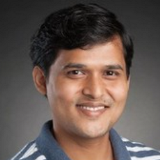
Manjeet is a senior research associate in the Molecular Sciences department of Astex Pharmaceuticals, Cambridge, UK. His main focus is using structural biology for drug discovery. He earned his PhD in Structural Biology at the National University of Singapore. He conducted postdoctoral training at St. Jude Children’s Research Hospital in Memphis, USA, and the Astbury Centre in Leeds, UK.
Swetha Murali, PhD, Vice President, OMX Ventures

Swetha is a Vice President with OMX Ventures. In her current role, she sources and leads diligence on investments, and supports several portfolio companies. She also serves as a board observer at VedaBio and Glyphic Biotechnologies. Prior to OMX, Swetha was an Associate at Flagship Pioneering after completing the Fellows Program in 2018. In this role, she co-founded and operated three new companies in AI/deep learning, agriculture, and cell therapy. Before joining Flagship, she was a postdoctoral fellow at Boston Children’s Hospital / Harvard Medical School developing novel cures for hearing and balance disorders. Swetha holds a PhD in Medicine (Neuropharmacology) from the University of Sydney and Bachelor of Biomedical Science with Honors from the University of Newcastle.
Behnam Nabet, PhD, Assistant Professor, Human Biology Division, Fred Hutchinson Cancer Center
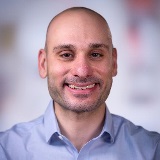
Behnam Nabet, PhD, is an Assistant Professor in the Human Biology Division at Fred Hutchinson Cancer Center. He received his B.A. in Biology from the University of Pennsylvania and PhD in Cancer Biology from Northwestern University. He performed his postdoctoral studies at Dana-Farber Cancer Institute and Harvard Medical School. Dr. Nabet’s laboratory is focused on developing strategies to target oncogenic signaling by controlling protein homeostasis. He pioneered the development of a versatile technology platform known as the dTAG system to rapidly degrade any target protein. Dr. Nabet’s work has led to the development of selective agents disrupting cancer drug targets including CDK11, FAK, PIN1, and DCLK1. These promising compounds inhibit critical vulnerabilities and are under continued development as novel therapeutics. Dr. Nabet has been recognized with several scientific honors, including a Claudia Adams Barr Program for Innovative Cancer Research award and an NIH/NCI K22 Transition Career Development Award.
Mahmoud Nasr, PhD, RPh, Assistant Professor, Medicine, Brigham and Women’s Hospital, Harvard Medical School

Mahmoud Nasr, PhD, RPh., is an assistant professor of medicine at Harvard Medical School and a principal investigator at Mass General Brigham. He is an associate member of the Broad Institute of Harvard and MIT.
Lars Neumann, Co-Head - Discovery Solutions, Discovery Solutions, Proteros Biostructures GmbH

Dr. Lars Neumann is co-heading together with Dr. Debora Konz Makino the Discovery Solutions unit of Proteros since 2019. The Proteros discovery solutions unit offers early integrated drug discovery projects to identify qualified hits for demanding targets with innovative mode of inhibitions. Proteros´ Qualified Hits are de-risking challenging drug discovery ideas, delivering attractive chemical starting points and are providing the required enabling technology platform for lead optimization phases. Before co-heading the Proteros Discovery Solutions unit, Lars was running the Proteros assay, biophysics and screening department for 11 years. Prior Proteros Lars was group lead and scientist for assays, biophysics and screening at various Biotech companies. Lars was trained as chemist and biochemist at the Universities of Munich and Marburg as well as at the Mach-Planck institute for Biochemistry in Germany. His postdoc time, Lars has spent in the laboratory of the Nobel laureate Brian Kobilka at Stanford University.
Timothy Newhouse, PhD, Associate Professor, Department of Chemistry, Yale University
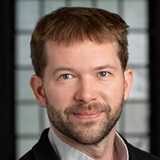
Timothy R. Newhouse was born in New Hampshire and received his B.A. in Chemistry from Colby College (2005) in Waterville, ME, where he was mentored by Prof. Dasan M. Thamattoor. After moving to La Jolla, CA, he completed his PhD at The Scripps Research Institute with Prof. Phil S. Baran (2010). During his time at Scripps, he also worked in the laboratories of Prof. Donna G. Blackmond. He then returned to the east coast for postdoctoral studies with Prof. E.J. Corey at Harvard University. He started at Yale University in 2013, and is a Professor in the Chemistry Department and Interdepartmental Neuroscience Program.
An-Dinh Nguyen, Team Lead, Discovery on Target, Cambridge Healthtech Institute
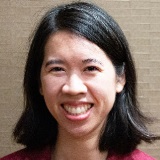
No bio available.
- Cancer Antibodies
- AI/ML-Enabled Drug Discovery - Part 2
- AI/ML-Enabled Drug Discovery - Part 1
- GPCR-Based Drug Discovery
- Targeting Transcription Factors
- Lead Generation Strategies
- Small Molecules for Cancer Targets
- Physiologically Relevant Translational Models
- Antibodies Against Membrane Protein Targets
- Small Molecules Targeting RNA
- Target Identification Strategies
- Degraders and Molecular Glues - Part 2
- Degraders and Molecular Glues - Part 1
Sherry Niessen, PhD, Vice President, Proteomics, Belharra Therapeutics

Sherry Niessen is the Head of Platform & Proteomics at Belharra Therapeutics and is focused on chemical probe discovery in cells through chemoproteomics. She has 15+ years of experience in chemical biology and proteomics. Prior to joining Belharra, she was at Pfizer in La Jolla, leading a chemoproteomics group focused on oncology drug discovery with an emphasis on target engagement, biomarker discovery, and mechanism of action of proteins and small molecules. Sherry completed her PhD at The Scripps Research Institute in the laboratory of Dr. Ben Cravatt, her MS in Experimental Medicine from McGill University, and a BS in Biochemistry from Simon Fraser University.
Thomas Nittoli, PhD, Senior Director, Therapeutic Proteins, R&D Chemistry, Regeneron Pharmaceuticals, Inc.
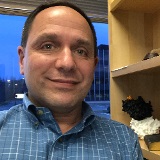
Tom Nittoli has over 20 years of experience in the pharmaceutical industry and is currently Senior Director of R&D Chemistry. Tom joined Regeneron in 2010 to advance conjugated antibodies and proteins from discovery to development. Since joining Regeneron, he has developed a variety of small molecules for protein conjugation, led diverse teams of discovery ADC scientists, and led cGMP synthesis and conjugation campaigns. Prior to Regeneron, Tom held positions at Pfizer, Wyeth, and CIBA-Giegy. He holds a PhD from the department of chemistry SUNY Stony Brook and was a post-doctoral fellow at the University of Pennsylvania.
Mellissa Nixon, PhD, Senior Scientist, Merck Research Labs
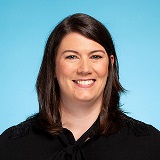
Mellissa Nixon is an Associate Principal Scientist within the Discovery Oncology group at Merck. Her current work revolves around novel identification and validation of cancer vulnerabilities, with a particular emphasis on discovering targets for targeted protein degradation modalities. Mellissa received her BS from West Virginia Wesleyan College, her PhD from The Ohio State University, and post-doctoral training from Vanderbilt University Medical Center, culminating in 17 co-authored publications.
Akos Nyerges, PhD, Research Fellow, Laboratory of Dr. George Church, Department of Genetics, Harvard Medical School

Akos Nyerges has a long-standing interest in synthetic biology, directed evolution, and genetic code engineering. He earned his PhD in Hungary and currently is a postdoctoral researcher with Professor George M. Church at Harvard Medical School. His PhD focused on developing tools to perform precise genome engineering in human pathogenic bacteria and hosts for microbial fermentation. During his research and in multiple collaborative projects, Akos developed a broad-host-range genome editing system, pORTMAGE, and later, DIvERGE, a tool for broad-host-range in vivo directed evolution. As a postdoctoral researcher, he is developing technologies for bottom-up genome construction and genetic code engineering. With his research, Akos aims to understand the design principles of functional genomes and construct synthetic genomes with functions not available in current organisms. In his talk, he will share how precise genome engineering tools can help us generate vast libraries of biomolecules, better understand enzyme-inhibitor interactions, and construct organisms that fundamentally differ from existing living organisms, including current hosts for bioproduction.
Evan O'Brien, PhD, Assistant Professor, Biophysics & Biophysical Chemistry, The Johns Hopkins University School of Medicine
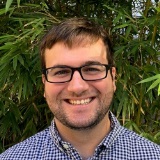
Evan O’Brien received his bachelor’s degree in chemistry and biochemistry from the University of Pittsburgh, followed by his doctoral work with Dr. Joshua Wand at the University of Pennsylvania. While in Dr. Wand’s lab, Evan focused on using structural and dynamic solution NMR methods to probe lipid-protein interactions and fast-timescale dynamics. His work on dynamics and entropy in well-characterized systems drove his interest in exploring these phenomena with more complex human membrane protein systems. To that end, he started his postdoctoral work with Dr. Brian Kobilka at Stanford University in 2018. His early work in the Kobilka lab involved using various fluorescence techniques to interrogate GPCR dynamics, which resulted in a highly multi-disciplinary effort to characterize how unique Family B GPCR structural properties result in distinct signaling behavior. More recent work in the Kobilka lab has continued to focus on combining biophysical techniques with cryoEM to discover and characterize novel mechanisms of GPCR allosteric modulation using small molecules.
Fiona Pachl, PhD, Associate Principal Scientist, Chemical Biology and Proteomics, AstraZeneca Pharmaceuticals
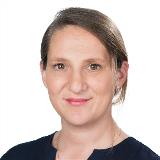
Fiona Pachl is a Senior Scientist at AstraZeneca, whose focus is on utilizing chemical biology and proteomics methods to investigate the selectivity and mechanism of small molecule protein degraders. Prior to joining AstraZeneca in 2017, she did a postdoctoral fellowship at Biogen and received her PhD from Technical University Munich, working in the lab of Prof. Dr. Bernhard Kuster.
Karanbir Pahil, PhD, Investigator, Affinity Selections & Biophysics, GlaxoSmithKline

Karan completed his graduate studies in Dan Kahne’s lab at Harvard. There, he studied the biogenesis of the bacterial outer membrane, and characterized inhibitors that kill by interfering with this process. He developed biochemical and structural methods to characterize the steps in lipopolysaccharide transport, and obtained structures of inhibitors bound to Lpt and Bam. His work has been published in Nature, and featured in The Guardian, Ars Technica, the LA Times, C&EN news, amongst other outlets. Currently, he works at GSK focusing on developing assays for hit qualification, understanding protein state, and DNA-encoded library screening methods.
Wylie S. Palmer, PhD, Senior Director, Nurix Therapeutics, Inc.
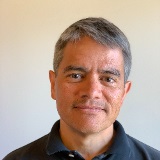
I am currently a group leader developing bi-functional degraders to target proteins by harnessing E3 ligases and the Ubiquitin/Proteasome pathway. Prior to joining Nurix I worked at MD Anderson in the Institute for Applied Science developing small-molecule drugs for cancer, and at Hoffman-La Roche developing small-molecule drugs targeting inflammation and CNS diseases.
Bhaumik A. Pandya, PhD, Director, Chemistry Vigil Neuroscience

I was born in Bombay, raised in New Jersey, and trained in Boston. I'm a medicinal chemist and neuroscience enthusiast. Currently, I'm with working on advancing Vigil Neuro's small molecule TREM2 agonists. Prior to Vigil, I've been in the Boston area biotech and pharma ecosystem for 15 years working in small molecule drug discovery. These experiences have been at large companies such as Amgen, Alnylam, and Cubist as well as biotechs like Yumanity and Concert. My projects have been in neuroscience, ion channels, and antibiotics. They have spanned novel target identification, hit generation, lead optimization and development candidate nomination. I’ve been fortunate to work with many talented scientists as a collaborator, mentor, group leader or manager. I obtained my PhD in 2007 from Boston College and my B.S. in 2000 from The College of New Jersey.
Noel T. Pauli, PhD, Group Leader, Antibody Engineering, Adimab LLC

Noel Pauli is a Group Leader of Antibody Engineering at Adimab LLC. He joined Adimab in 2015. His research focuses on the generation of antibodies against integral membrane proteins and other difficult targets using immunization, single B cell cloning, and immune library development in both murine and camelid systems. He received his PhD training from the University of Chicago under Patrick Wilson studying the human B cell response to Staphylococcus aureus infection at the resolution of monoclonal antibodies.
Christopher B. Phelps, PhD, Vice President and Head, Early Discovery, Nurix Therapeutics, Inc.

I currently head the early discovery group at Nurix Therapeutics, where we leverage our internal DEL collection to identify ligands to target proteins for degradation by harnessing E3 ligases and the Ubiquitin/Proteasome pathway. Prior to joining Nurix I worked at GSK, helping build their internal DEL platform, and leading the team screening the GSK DEL collection by affinity selection.
Ryan Potts, PhD, Executive Director and Head, Induced Proximity Platform, Amgen, Inc.
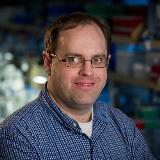
Ryan Potts obtained his BS from the University of North Carolina and his PhD from UT Southwestern. In 2008 he was awarded the Sara and Frank McKnight independent postdoctoral fellowship at UT Southwestern Medical Center. During this time his research focused on biochemically defining a novel family of proteins called MAGEs as regulators of E3 ubiquitin ligases. In 2011 he was appointed Assistant Professor in the Department of Physiology at UT Southwestern Medical Center. In 2016 his lab moved to St. Jude Children’s Research Hospital where he is an Associate Member in the Department of Cell and Molecular Biology. His lab worked on elucidating the functions of MAGE-RING Ligases. Recently he has moved to Amgen as Executive Director and Head of the Induced Proximity Platform.
Robbins Puthenveetil, PhD, Senior Scientist, AstraZeneca

Robbins leads efforts on complex membrane protein-targeted biologics discovery at AstraZeneca. He drives initiatives towards cryo-EM based drug engineering endeavours for pipeline and technology projects within AZ's Oncology Targeted Discovery (OTD) team. Robbins spearheaded efforts to determine AZ's first structure of a multi-pass membrane protein-antibody complex. Prior to AZ, he was a Ruth L. Kirschstein fellow at the National Institutes of Health and holds a doctorate in Biophysics and Structural Biology from the University of Connecticut.
Rayees Rahman, PhD, Co-Founder & CEO, Harmonic Discovery

Rayees Rahman is CEO and co-founder of Harmonic Discovery. Rayees completed his PhD in Biophysics and Systems Pharmacology at the Icahn School of Medicine at Mount Sinai where he developed machine learning models to characterize protein kinase structural biology.
Murali Ramachandra, PhD, CEO, Aurigene Discovery Technologies, Ltd.

Dr. Murali Ramachandra is the CEO at Aurigene Discovery Technologies Limited, a biotech company engaged in drug discovery for cancer and inflammatory diseases. He received his PhD from University of Idaho (USA), and postdoctoral training from University of Kansas Medical Center and DuPont Experimental Station. Prior to his current role, he has held the position of the Chief Scientific Officer at Aurigene, and positions of increasing responsibility at Schering-Plough Pharmaceuticals and US National Cancer Institute. He has contributed to the identification of 16 novel drug candidates, co-authored 60 publications in international peer-reviewed journals and is an inventor of 18 granted US patents.
Ulrich Rant, Professor/Director, Physical Chemistry, TU Dresden/Kurt-Schwabe-Institute for Bioanalytical Systems
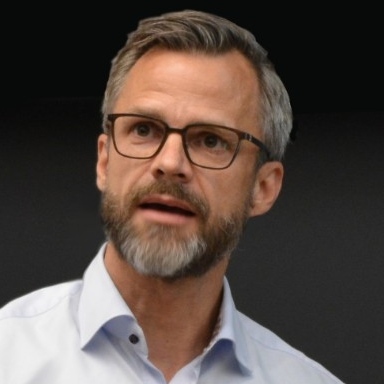
Ulrich Rant received his PhD in Physics at the Technical University Munich. After a group leader position at the TU Munich, he co-founded Dynamic Biosensors GmbH, a biotech company which commercializes novel technologies in the field of biomolecular interaction analysis. Since 2024, he is Professor at the Department of Physical Chemistry at Dresden University of Technology as well as Director of the Kurt-Schwabe-Institute for Bioanalytical Systems.
Hai Rao, PhD, Professor and Chair, Department of Biochemistry, Southern University of Science and Technology, China
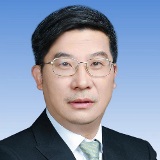
The long-term goal of our lab is to understand the mechanism and function of ubiquitin-mediated proteolysis. Dr. Rao had strong trainings in biochemistry, genetics, and cell biology under the guidance of Drs. Bruce Stillman (Cold Spring Harbor Laboratory) and Alex Varshavsky (California Institute of Technology). As a postdoc in Dr. Varshavsky's lab, I discovered a cohesin subunit Scc1 as the first physiological substrate of the N-end rule pathway, which was the first ubiquitin-dependent degradation pathway identified 15 years earlier using artificial substrates and its use was instrumental in uncovering critical mechanistic attributes of the ubiquitin system. Since 2002, Dr. Rao has established his own independent laboratory at the University of Texas Health, San Antonio and has risen up to tenured Professor. As PI on the American Cancer Society-, NIH- and DOD-funded grants, he has developed unique angles and novel assays to define how proteins are selected and escorted to the proteasome, and also the significance of regulated proteolysis in cancers and prion diseases.
Arvind Rao, PhD, Associate Professor, Department of Computational Medicine and Bioinformatics, University of Michigan

Arvind Rao is an Associate Professor in the Department of Computational Medicine and Bioinformatics at the University of Michigan. His group uses image analysis and machine learning methods to link image-derived phenotypes with genetic data, across biological scale (i.e. single cell, tissue and radiology data). Such methods have found application in radiogenomics and drug repurposing based on phenotypic screens. Arvind received his PhD in Electrical Engineering and Bioinformatics from the University of Michigan, specializing in transcriptional genomics, and was a Lane Postdoctoral Fellow at Carnegie Mellon University, specializing in bioimage informatics.
Alicia Regueiro-Ren, PhD, Scientific Senior Director, Medicinal Chemistry, Bristol Myers Squibb Co.
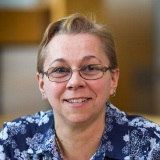
Alicia obtained her Ph.D. in chemistry from the University of La Laguna in Tenerife, Canary Islands, Spain under the guidance of Prof. J. D. Martin. As a Fulbright Scholar, she then joined Prof. Gilbert Stork’s lab at Columbia University for her postdoctoral work. In 1998, Alicia joined BMS where she is currently a Scientific Senior Director of Medicinal Chemistry in the Neuroscience Department. Alicia previously worked on anticancer, antibacterial, antifungal, antiviral and antifibrotic agents. Alicia’s team discovered the HIV-1 maturation inhibitors BMS-955176 and GSK3640254 which showed efficacy in the clinic when dosed QD in HIV-1 infected patients. Her team also discovered VH3739937, a QW HIV-1 Mi, which is currently being evaluated in Ph2.
Ganna Reint, PhD, Postdoctoral Fellow, Broad Institute of Harvard and MIT
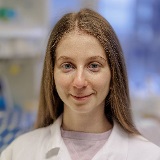
I finished my PhD at the University of Oslo (Norway) in spring 2022. My research project focused on the improvement of the precise gene editing outcomes via boosting the homology-directed repair. Our team tested multiple hundreds of DNA repair proteins fused to the Cas9 nuclease and validated that POLD3 fusion aids HDR in various cell types. In summer 2022, I have moved to Boson and started my postdoc work at the Broad Institute, at the genetic perturbation platform. My project involves application of the base editing for throughput screening with aim to better understand the functional effects of DNA sequence variation on the genetic basis of human disease and diversity.
Alex Reis, PhD, Principal Scientist, Computation, Manifold Biotechnologies Inc.

Alex Reis is a synthetic biologist with over 10 years of combined academia and industry research experience in microbial engineering, biomolecule sequence-to-function modeling, and multiplexing technology development using large DNA libraries and next-generation sequencing. At Manifold Bio, he works in an interdisciplinary way between protein barcoding (mCodes) technology development and applied use of mCodes in HT Vivo (HTV) screening formats for assorted programs. During his academic career, he studied the determinants of translation initiation, built biophysical models for forward and reverse engineering of 5'UTRs in prokaryotes, as well as explored pushing the size limits of genetic construct design using nonrepetitive DNA design to make the largest ever synthetic CRISPR interference sgRNA arrays with up to 30 sgRNAs to engineer complex desired phenotypes in E. coli. He received his Ph.D. in Chemical Engineering from Pennsylvania State University under the direction of Howard Salis. He is published in a number of relevant journals including ACS Synthetic Biology and Nature biotechnology.
Fengbo Ren, Founder & CEO, Fovus Corp
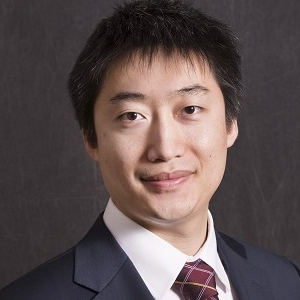
Dr. Fengbo Ren is the founder and CEO of Fovus, a pioneering serverless HPC platform for enterprises. With over a decade of experience in HPC, AI, and systems research, Dr. Ren has received numerous accolades, including the Google Faculty Research Award and the prestigious NSF CAREER Award. Formerly an Associate Professor of Computer Science and Engineering at Arizona State University, Dr. Ren brings a unique blend of domain knowledge and expertise in HPC, AI, and systems to build Fovus to democratize HPC for all.
Kaitlin Rhee, Researcher, Xin Zhou Lab, Biological Chemistry & Molecular Pharmacology, Dana-Farber Cancer Institute, Harvard Medical School
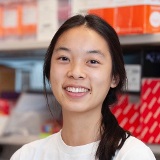
Kaitlin graduated from the College of Chemistry at UC Berkeley with a chemical biology BS and a data science minor. She is currently a Harvard chemical biology PhD student in the Zhou lab of protein engineering at Dana-Farber Cancer Institute. Here, she is developing bispecific antibody/induced proximity-based approaches for the targeted depletion and sustained inhibition of complex membrane proteins in cancer.
Aurelien Rizk, PhD, CSO & Co-Founder, InterAx Biotech AG
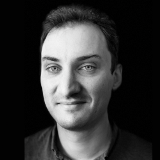
Dr. Aurélien Rizk is a scientist and entrepreneur in drug discovery. He is Chief Scientific Officer and co-founder of InterAx Biotech, where he specializes in the development of a technology platform deciphering cell signaling pathways combined with AI-based approaches to elucidate structure to signaling relationship. During four years of postdoctoral research at ETH Zurich and the Paul Scherrer Institute in Switzerland, under the guidance of Prof. Gebhard Schertler, he developed methods for kinetic mathematical analysis of GPCR signaling. He also worked on creating novel methods for systems biology using temporal logic specifications while pursuing his Ph.D. at INRIA Paris-Rocquencourt, France. Before focusing on the development of innovative mathematical modeling and simulation methods for drug discovery, Dr. Aurélien Rizk co-founded Algorizk, a company that created real-time physics simulations for education, serving over 1 million users. His academic background includes studies in mathematics, physics, and computer science at the French Grande école, école Normale Supérieure de Cachan.
Soo Ro, PhD, Senior Scientist I, Biophysics, Genentech Inc.
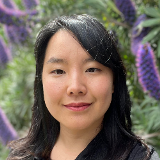
Soo is a Senior Scientist in the department of Biochemical and Cellular Pharmacology at Genentech, where she utilizes SPR and other biophysical methods to enable hit finding and hit-to-lead development of small molecule therapeutics. Soo started her journey in small molecule drug discovery in the Protein Sciences group at AbbVie, providing biochemistry support to enable hit finding campaigns. She received her PhD at Northwestern University, where she investigated the structure and function of metalloenzymes and membrane proteins involved in methane oxidation via X-ray crystallography, mass spectrometry, and bacterial genetics. Soo enjoys the challenges of applying various biophysical techniques on challenging classes of druggable targets, in particular membrane proteins and large protein complexes, to drive mechanistic studies that can facilitate the development of therapeutics.
Jason Rolfe, PhD, Co-Founder & CTO, Variational AI

Dr. Jason Rolfe is co-founder and CTO of Variational AI, which has developed Enki, a foundation model trained to rapidly create novel and selective small molecule leads based on a preclinical target product profile (TPP). Leveraging the power of generative AI, Enki has delivered hundreds of molecules experimentally validated for potency, selectivity, and novelty by multiple pharmas and biopharmas in commercial partnerships. Jason earned his PhD in machine learning from Caltech, and completed a post-doc with Yann LeCun at NYU. He has been conducting research in machine learning for more than 17 years, with a focus on deep learning, generative modeling, and cheminformatics.
Rodney L. Rouse, DVM, MBA, PhD, Deputy Director, Division of Applied Regulatory Science, Center for Drug Evaluation and Research, United States Food and Drug Administration

Dr. Rouse is currently the Director (Acting) of the Division of Applied Regulatory Science (DARS), Office of Clinical Pharmacology, Office of Translational Sciences at the Center for Drug Evaluation and Research (CDER), US FDA. He is responsible for integrating divisional capabilities with CDER priorities to develop mission critical applied research projects delivering new science into regulatory review and addressing emerging regulatory and public health issues. He previously served as an Associate Director and then Deputy Director of DARS. From 2008 to 2017, Dr. Rouse was a Research Veterinary Medical Officer leading research teams to define biomarkers of tissue injury, to identify the impact of antibiotic treatment regimens on emergence of resistance and the composition of the gut microbiome, to understand the potential of opioid drug-drug interactions impacting respiration, and to advance use of new alternative methods.
Shourya Roy Burman, PhD, Scientist, Cancer Biology, Dana-Farber Cancer Institute

Shourya S. Roy Burman is a research fellow at Dana-Farber Cancer Institute and Harvard Medical School. As a member of Dr. Eric Fischer’s group, he designs new systems for targeted protein degradation using computational modeling and design, biophysical and biochemical techniques, and flow cytometry. He is the recipient of the Cancer Research Institute Irvington Postdoctoral Fellowship for his research on the use of compound-mediated protein degradation in cell therapies. Dr. Roy Burman obtained his PhD in Chemical and Biomolecular Engineering from Jeffrey Gray’s group at the Johns Hopkins University, where he developed algorithms for protein modeling as a part of the Rosetta Macromolecular Modeling Suite. Prior to that, he received his bachelor’s degree in Bioengineering from the Indian Institute of Technology Kanpur. Dr. Roy Burman’s research identified that the position of ubiquitinatable lysines on a target protein in a ternary complex with the E3 ubiquitin ligase is the single most important intrinsic feature that determines its tractability to targeted degradation approaches. His protein docking algorithms have been widely used to model degrader-induced complexes and guide the design of new molecules.
Joseph Rucker, PhD, Vice President, Research and Development, Integral Molecular, Inc.

Joe Rucker is the Vice President of Research & Development, a co-founder of Integral Molecular and an inventor of Integral Molecular’s founding Lipoparticle technology. Since joining the company, he has led the development of new applications for Lipoparticle technology, including its use in generating novel antibodies against membrane proteins. Dr. Rucker earned his PhD from the University of California, Berkeley and completed postdoctoral studies at the University of Pennsylvania.
Anthony Rullo, PhD, Associate Professor, Department of Medicine, Chemistry and Chemical Biology, McMaster University
.tmb-0.png)
Anthony Rullo, Ph.D, is an Assistant Professor of Medicine at McMaster University, pioneering small molecule “proximity-inducing” therapeutic strategies with applications in immune oncology and anti-viral immunotherapeutics. In 2017 he founded the Rullo Laboratory, a translational chemical biology lab integrated within the department of medicine and the McMaster Immunology Research Center (MIRC). Dr. Rullo’s scientific training encompasses several aspects of organic synthesis, carbohydrate chemistry, physical biochemistry, and immunology. He received his Ph.D. in Organic and Biochemistry from the University of Toronto under the supervision of Prof. Mark Nitz, where he developed fluorescent chemical probes of complex glycosaminoglycan binding interactions, in addition to new bio-orthogonal affinity labelling strategies. This was followed by postdoctoral training under the mentorship of Prof. David A. Spiegel at Yale where Dr Rullo pioneered the development of synthetic antibody recruiting molecules targeting uPAR expressing cancers. Dr. Rullo serves as the scientific founder of AnnA Biosciences which develops next generation classes of synthetic tumor and viral immunotherapeutics that uniquely leverages the principles and tools of chemical biology with synthetic immunity. He is based in Hamilton, Ontario, Canada.
Laurent Sabbagh, PhD, Scientific Director, Domain Therapeutics
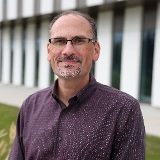
Laurent Sabbagh holds a PhD in immunology from McGill University. Following his doctoral degree Dr. Sabbagh undertook postdoctoral fellowships at the Ontario Cancer Institute and the University of Toronto before being recruited by University of Montreal as an assistant professor working on the role of TNF receptors in immunological memory, inflammation and hematological malignancies. In the fall of 2013, Dr. Sabbagh was recruited by Vertex Pharmaceuticals (Canada) where he led biomarker discovery efforts for inflammatory bowel disease and small molecules drug discovery programs for polycystic kidney disease. Subsequently, Dr. Sabbagh led research programs aimed at drug discovery of small molecules for the treatment of inflammatory disorders and cancer at Paraza Pharma Inc. in Montreal. Laurent is currently Scientific Director at Domain Therapeutics (North America) leading drug discovery efforts of new molecules and antibodies targeting G protein-coupled receptors (GPCRs) in immuno-oncology and metabolic disorders.
Arianna Sabo, PhD, Head, Research & Discovery, Quantro Therapeutics GmbH

Arianna Sabò is Head of Research and Discovery at QUANTRO Therapeutics GmbH (Vienna, Austria), where she leads a team of scientists and bioinformatician who have developed a new disruptive NGS-based HTS platform to discover and develop drug candidates that block the activity of previously undruggable oncogenic transcription factors. She joined QUANTRO in 2021 after a successful career in academia, where she made fundamental contributions to the understanding of oncogenic transcription factor MYC activity by coupling transcriptomics and functional genomics approaches. Dr Sabò holds a PhD in Molecular Biology from the Scuola Normale Superiore (Pisa, Italy).
Harpreet Saini, PhD, Senior Director, Informatics, Astex Pharmaceuticals Ltd.

Harpreet Saini is a Senior Director of the Bioinformatics Group at Astex Pharmaceuticals, a fragment-based drug discovery (FBDD) company in Cambridge, United Kingdom. Previously she received her PhD in Bioinformatics in 2004 at the Institute of Microbial Technology, INDIA, and completed her postdoc in 2009 at the Wellcome Trust Sanger Institute, working on the genomic annotation of microRNAs. Before joining Astex Pharmaceuticals in 2014, she was a scientist at the European Bioinformatics Institute, working on noncoding RNAs in germ cell tumors. At Astex, her team utilizes high-throughput multi-omics technologies & computational approaches to support new targets identification, biomarker discovery, and patient stratification for preclinical discovery and clinical programs.
Susanta Samajdar, PhD, CSO, Aurigene Discovery Technologies Ltd.

Dr. Susanta Samajdar is a medicinal chemist by training and has over 20 years of experience in Indian Biotech Industries. Dr. Samajdar has led multifunctional drug discovery teams producing many drug candidates across various target classes focused in oncology and inflammation therapeutic areas. Precision oncology and immuno-oncology remained two major area of interest for Dr. Samajdar over last few years. At present Dr. Samajdar is leading the drug discovery research at Aurigene Discovery Technologies Limited, Bangalore, INDIA as Senior Vice President and Head of Discovery.
Darshan Sappal, Director, Biology, Foghorn Therapeutics

Cancer research biologist with over 20 years of experience in the drug discovery industry. Currently, Director of Biology at Foghorn Therapeutics and leading the efforts on the discovery and development of selective CBP degraders for the treatment of CBP-dependent tumor indications.
Stephan Schann, PhD, CSO, Domain Therapeutics SA
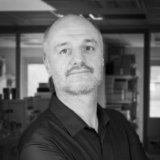
Stephan Schann is Chief Scientific Officer at Domain Therapeutics. As the leader of Domain’s proprietary programs and collaborations with pharma partners, he oversees the intellectual property strategy for each of the company’s assets. Stephan has been with Domain since its inception in 2008, and his roles have evolved over time, including previous positions as Head of Research, Director of Research & Development and Vice-President of Research & Development. With over 25 years of experience in biomedical research, Stephan has dedicated his career to the development of novel therapeutics addressing unmet medical needs. His significant contributions to drug discovery and development have been instrumental in shaping Domain’s success and its continuous growth. Prior to joining Domain, Stephan established and led the Medicinal Chemistry Department at Faust Pharmaceuticals and was a senior scientist at Evotec. Stephan holds a PhD in Medical Chemistry from University of Strasbourg in France.
Matthieu Schapira, PhD, Principal Investigator, Structural Genomics Consortium, Professor, Pharmacology & Toxicology, University of Toronto
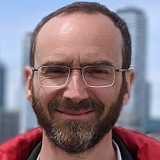
Matthieu holds a Ph.D. in biochemistry from Ecole Normale Superieure, Paris. After graduating in 1995, he completed a couple of post-docs in protein crystallography and computational chemistry at New York University Medical Center. After working in biotechs in San Diego and in France, he joined in 2007 the Structural Genomics Consortium in Toronto as head of research informatics. He holds an Associate Professor cross-appointment with the Department of Pharmacology and Toxicology at University of Toronto.
Gary Shapiro, PhD, VP, Discovery Biology, Affini-T Therapeutics Inc.

Gary Shapiro, PhD., Vice President of Discovery Biology at Affini-T Therapeutics, is an immunologist with extensive oncology and cell therapy experience dedicated to making a dramatic difference in patients’ lives through creative, rigorous, and transformative science. Previously, Gary built and led the Cell Therapy Discovery Team at Takeda Oncology, where he drove the internal portfolio from project conception through clinical entry as well as directed external collaborations with academic and industry partners. Prior to joining Takeda in 2017, Gary spent 7 years at Sanofi leading a Target Identification group exploring biologics and small molecules targeting genetic drivers of cancer and served as the global project lead for their TGF-beta ligand trap that was investigated in a Phase 1 solid tumor trial. Gary’s training includes both immunology (National Jewish Hospital/University of Colorado) and oncology (University of California San Diego/HHMI).
Zizhang Sheng, PhD, Assistant professor, Aaron Diamond AIDS Research Center, Columbia University

Dr. Zizhang Sheng is an assistant professor at Aaron Diamond AIDS Research Center, Columbia University Irving Medical Center. His research utilizes bioinformatics and genomics approaches to uncover the mechanisms underlying the humoral immune response to infection and vaccine and to elucidate the structural basis of antibody affinity maturation.
Anjali Shenoy, PhD, Post Doctoral Researcher, Molecular Biology & Immunology, John Hopkins University

Dr. Shenoy is a postdoctoral fellow in Dr Jamie Spangler’s group at Johns Hopkins University where she is working on developing IL-2-based immunotherapeutics. She is currently developing an immunocytokine (IC) utilizing IL-2 mutein H9T to generate an IC to combine effector and memory immune responses to address cancer reoccurrence and could potentially serve as an effective long-term cancer treatment. She received her PhD in Biochemistry and Molecular Biology in Dr Adam Barb’s group at the University of Georgia where she focused on engineering the Fc domain of Immunoglobulin IgG1 to enhance Fcg Receptor engagement in natural killer (NK) cells and monocytes. She previously received her undergraduate degree in biotechnology at the RV College of Engineering in Bangalore, India.
Woody Sherman, PhD, CIO, Psivant Therapeutics
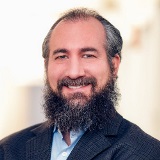
Woody Sherman is CEO, Psivant Therapeutics and a thought leader in molecular simulations and computer-aided drug design, with over 90 peer-reviewed publications covering novel methods and applications. As Chief Computational Scientist at Roivant, Woody oversaw the computational strategy, implementation, and deployment of computational methods. He received his B.S. in Physical Chemistry from the University of California at Santa Barbara where he studied nonlinear optical properties of organic polymers using computational quantum mechanics methods. He completed his Ph.D. at MIT working in Professor Bruce Tidor’s lab where he examined the role of electrostatics in protein-ligand binding and implemented a novel method for optimizing ligand binding specificity across a panel of targets. While in graduate school he worked at Biogen where he developed novel methods to enhance antibody affinity via electrostatic charge optimization, resulting in a publication and patent. As Global Head of Applications Science at Schrödinger, led research, product development, methods development, and the deployment of Python-based tools. He also worked closely with Pharma partners on research projects and collaborations. Woody has published on a broad range of topics, including induced-fit docking, ensemble docking, molecular dynamics, free energy simulations, protein design, small molecule optimization, cheminformatics, hybrid ligand/structure-based methods, charge optimization, pharmacophore modeling, and more.
Lei Shi, Sr VP R&D, R&D, Biointron Biological USA Inc
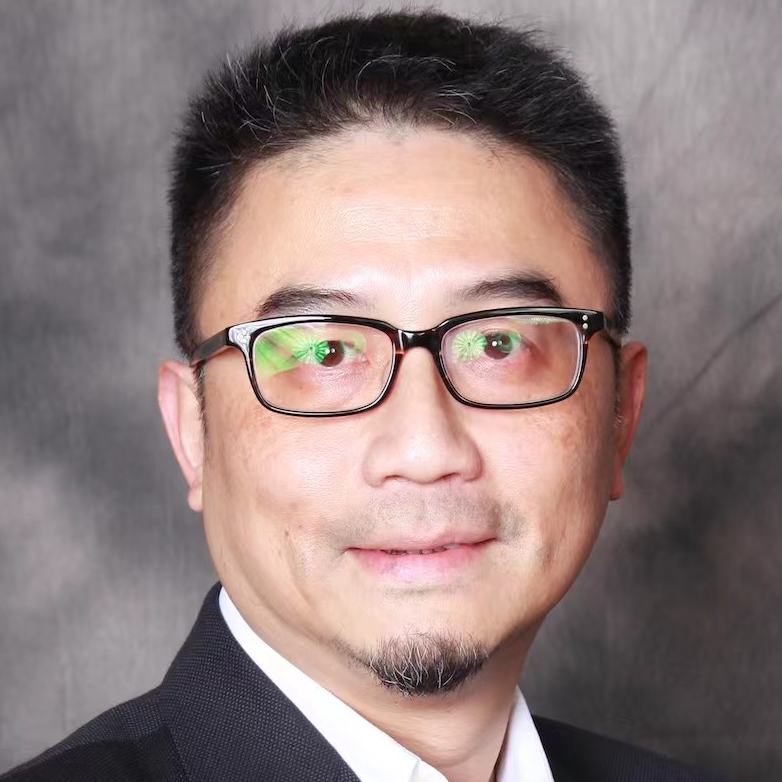
Lei Shi, PhD. is an SVP at Biointron. Prior to that, he worked for a series of biotech companies, including Virtuoso Therapeutics, Zai Lab, and Bird Rock. Lei had also worked at J&J in antibody discovery technology. He completed his Postdoc study at MGH and Harvard Medical School.
Jenny Chengyi Shu, PhD, Senior Director, Biology Immunology, Life Mine Therapeutics

Jenny Shu is a senior director of Immunology at Lifemine Therapeutics. She has an academic track-record at leading tumor immunology and immune tolerance labs to being an experienced drug hunter in the biotech sector for the past 10 years. She earned her PhD in the Department of Microbiology, Immunology and Molecular Genetics from the University of California, Los Angeles. Post-doctoral fellowships at the Netherlands Cancer Institute in the Immunology division, and Harvard Medical School in the Department of Microbiology & Immunology. Jenny was a scientist in the translational group at Jounce Therapeutics. She then worked as a principal scientist at Cygnal Therapeutics where she was immunology team lead in the discovery biology & platform group. Jenny joined as the first employee and played a central role in developing the company’s scientific strategy, strategic portfolio pipeline, and project prioritization. Jenny was the head of biology at Synlogic Therapeutics where she led discovery biology to advance synthetic biotic medicines in GI and inflammation, focused on inflammatory bowed disease (IBD).
Jeffrey Skolnick, PhD, Professor, Biology, Director, Center for the Study of Systems Biology, Georgia Institute of Technology

Jeffrey Skolnick is a Regents’ Professor and the Director of the Center for the Study of Systems Biology in the School of Biological Sciences at the Georgia Institute of Technology. He is also the Mary and Maisie Gibson Chair in Computational Systems Biology and a Georgia Research Alliance Eminent Scholar in Computational Systems Biology. He attended graduate school in Chemistry at Yale, receiving a PhD in Chemistry. He then held a postdoctoral fellowship at Bell Laboratories. Next, he joined the faculty of the Chemistry Department at Louisiana State University, Baton Rouge. Then, he moved to Washington University. Following his emerging interest in biology, he joined the Department of Molecular Biology of the Scripps Research Institute, where he held the rank of Professor. Among his awards are the Southeastern Universities Research Association (SURA) Distinguished Scientist Award, the Sigma Xi Sustained Research Award, and an Alfred P. Sloan Research Fellowship. He is a Fellow of the AAAS, the Biophysical Society, and the St. Louis Academy of Science. He is the author of over 400 publications, has an h-index of 92 and has served on 21 editorial boards. Dr. Skolnick’s current research interests are in computational biology and bioinformatics. He has developed AI based approaches to predict disease mode of action proteins, drug efficacy and side effects, diagnostic tools to identify early-stage cancers and a non- Mendelian approach to precision medicine. He has applied these tools to aging, cancer, chronic fatigue syndrome and cancer metabolomics. He has also done substantial research on the possible origins of the biochemistry of life.
Se In Son, PhD, Research Scientist, Chemistry, NIH NCATS

Se-In Son is a Research Scientist in a medicinal chemistry team at the National Center for Advancing Translational Sciences (NCATS). She earned her B.Sc. and M.Sc. at Sogang University, South Korea, and her PhD at Cornell University. Her PhD study focused on development of histone deacetylase 11 inhibitors and examination of their efficacy in in vitro and in vivo systems. Her current research interests include probe development of potential therapeutics for cancers and neurodegenerative diseases, and development of non-opioid painkillers.
Parthiban Srinivasan, PhD, Professor, Data Science and Engineering, Indian Institute of Science Education and Research, Bhopal
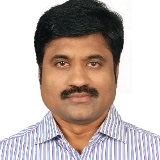
Parthiban Srinivasan, an experienced data scientist, earned his PhD from Indian Institute of Science, specializing in Computational Chemistry. After his PhD, he continued the research at NASA Ames Research Center (USA) and Weizmann Institute of Science (Israel). Then he worked at AstraZeneca in the area of Computer Aided Drug Design for Tuberculosis. Later, he headed informatics business units in Jubilant Biosys and then in GvkBio before he floated the company, Parthys Reverse Informatics and later an AI consultancy, Vingyani. Currently, he is a Professor at Indian Institute of Science Education and Research (IISER) Bhopal, teaching Data Science.
Devendra Srivastava, Director, Protein Sciences & R&D, OmniAb
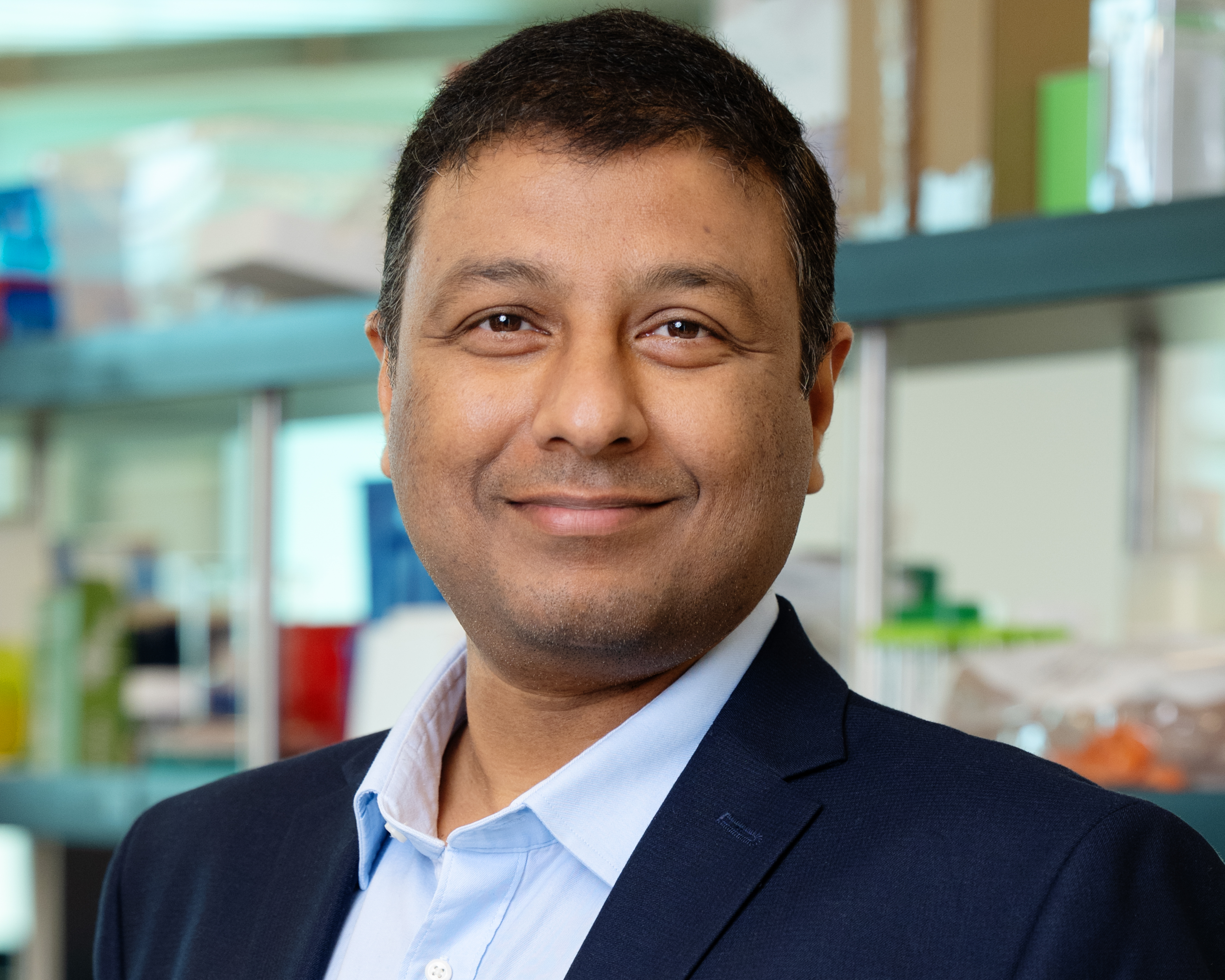
Dr. Dev Srivastava is the Director of Protein Sciences at OmnniAb, Inc. He oversees the process of soluble and membrane protein expression, purification, reconstitution, characterization, and structural studies with antibodies using cryo-EM and x-ray crystallography approaches. Additionally, he leads the automated antibody expression, purification, characterization, engineering, and structural studies of antibodies, non-Ig scaffolds, bi- or multispecifics, fusion proteins, and ADCs to identify lead candidates. With a wealth of industry experience, Dr. Srivastava completed his postdoctoral work at Rockefeller University and Harvard Medical School and obtained his PhD from the All India Institute of Medical Sciences.
Daniel St-Cyr, Associate Principal Scientist, X-Chem, Inc.
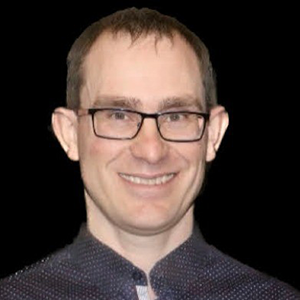
Daniel has a 15+ year track record in organic/medicinal chemistry research spanning six academic and industrial research settings, resulting in numerous presentations, 3 patents, 2 book chapters, and 17 publications. Currently, Daniel is a medicinal chemistry researcher at X-Chem in Montreal working on a variety of target classes and indications.
Kristy Stengel, PhD, Assistant Professor, Department of Cell Biology, Albert Einstein College of Medicine
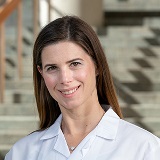
Kristy Stengel obtained her Ph.D. in Cell and Molecular biology from the University of Cincinnati College of Medicine where she studied modifiers of Ras-driven tumorigenesis and therapeutic response. She moved to Vanderbilt University for postdoctoral training where she examined the role of Histone deacetylase 3 (Hdac3) on hematopoietic development and transcriptional regulation. Following completion of her postdoctoral studies, Dr. Stengel remained at Vanderbilt University as a Research Assistant Professor where she established her independent research program using rapid transcription factor degradation to define the roles of oncogenic transcription factor fusion proteins in transcriptional control. In 2021, Dr. Stengel moved to Albert Einstein College of Medicine as an Assistant Professor in the Department of Cell Biology, where she continues to use cell and animal models of targeted protein degradation to uncover the mechanisms of action of oncogenic transcription factors.
Erland Stevens, PhD, James G. Martin Professor, Department of Chemistry, Davidson College

Erland Stevens is formally trained as a synthetic organic chemist, with a PhD from the Department of Chemistry at the University of Michigan at Ann Arbor. He specialized in nitrogen heterocycle synthetic methodology. After completing his postdoctoral research at The Scripps Research Institute in La Jolla, CA, he joined the chemistry faculty at Davidson College in Davidson, NC. In addition to teaching organic chemistry, he created an undergraduate medicinal chemistry course and later published a textbook, Medicinal Chemistry: The Modern Drug Discovery Process, with Pearson Education. He then created an online medicinal chemistry course, which has been continuously revised and publicly available for approximately 10 years. He subsequently worked with Novartis to create additional online materials that are used with employees for continuing education purposes. He maintains an interest in the computational prediction of pharmacokinetic parameters based on structural features of drug-like structures.
Stefanus Steyn, PhD, Research Fellow, Pharmacokinetics Dynamics & Metabolism, Pfizer

I have a Ph.D. in Pharmaceutical Chemistry and completed post-doctoral studies in the laboratory of Professor Neal Castagnoli at Virginia Tech. I have over 20 years pharmaceutical industry experience with over forty co-authored publications. I have spent most of my career at Pfizer in various roles within PDM (DMPK), supporting projects ranging from oncology to neuroscience and currently, Inflammation and Immunology (I&I). I am currently a Research Fellow, and my responsibilities include setting the DMPK research and project strategies within the I&I Research Unit. In addition, my team and I function as Project Representative within I&I while I also have responsibilities as a Research Project Lead for various Discovery programs. My interests include prediction of human ADME as well as exploring physicochemical properties and how they relate to ADME with a focus on absorption. PROTACs are of special interest given their unique beyond Rule-of-5 properties and the ADME challenges they present relative to classical small molecules.
Andy Sullivan, MS, Associate Director, Biology and Pharmacology, Diagonal Therapeutics
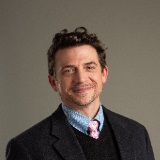
Andy Sullivan is currently Associate Director of biology and pharmacology at Diagonal Therapeutics. He has spent over 20 years in the biotech industry in research and translational groups at Genzyme, Morphic Therapeutics, and Dragonfly Therapeutics. His research has spanned across various disease areas including tissue repair, fibrosis, pain modulation, immunology, cancer, and vascular biology. Therapeutic platform experience includes cell therapy, biomaterials, small molecule, and various antibody technologies.
Asad Taherbhoy, PhD, Director, Drug Discovery, Foghorn Therapeutics

Asad Taherbhoy is Director, Drug Discovery at Foghorn Therapeutics where he leads Foghorn’s efforts on targeting transcription factors. Prior to joining Foghorn, he worked on understanding and drugging ubiquitin E3 ligases at Nurix and Genentech. Asad carried out his PhD research at St. Jude Children’s Research Hospital in the lab of Brenda Schulman studying ubiquitin and ubiquitin-like protein pathways.
William Tansey, PhD, Ingram Professor of Cancer Research, Professor of Cell & Development Biology, Vanderbilt University
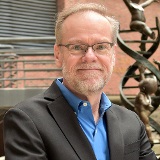
William Tansey was born and raised in Sydney, Australia. He earned his B.Sc. and Ph.D. from the University of Sydney, where he studied processes that regulate human growth hormone gene expression. After completing his doctoral studies in 1992, he moved to the United States to pursue postdoctoral training at Cold Spring Harbor Laboratory in New York. There, his work centered on unraveling the biochemical processes that human cells use to control gene activity. In 1997, he was promoted to the faculty of Cold Spring Harbor Laboratory, and established his independent laboratory focusing on gene regulation and how it goes awry in cancer. He was promoted to Associate Professor in 2001 and full Professor in 2005 where he held the title Lita Annenberg Hazen Professor of Biological Sciences. In 2009, he moved to Vanderbilt University, where he is currently Professor of Cell and Developmental Biology, Professor of Biochemistry, and Ingram Professor of Cancer Research. He also serves as Co-Director of the Genome Maintenance Program for the Vanderbilt-Ingram Cancer Center. Dr. Tansey’s current research centers on understanding the function of MYC oncoprotein transcription factors, and leveraging this understanding to explore new ways to target MYC in cancer. Dr. Tansey’s research has been continually funded by the National Institutes of Health since 1998. He is the recipient of numerous awards including the University Medal from the University of Sydney, Kimmel Foundation Scholar, Leukemia and Lymphoma Society Scholar, and Stohlman Scholar. In 2012 he was named as a Fellow of the American Association for the Advancement of Science and in 2015 an Honorary Fellow of the Boehringer Ingleheim Fonds.
Sally Thompson-Iritani, DVM, PhD, Assistant Vice Provost, Animal Care & Outreach & 3Rs, University of Washington
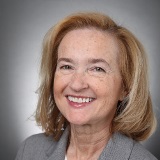
Sally Thompson-Iritani, DVM/PhD, is the Assistant Vice Provost for Animal Care, Outreach, and the 3Rs at the University of Washington's Office of Research. With a background in industry and academia, she has served as a laboratory animal veterinarian, IACUC administrator, facility manager, and preclinical researcher. Driven by a commitment to animal welfare and scientific excellence, she emphasizes the 3Rs principles (Replacement, Reduction, and Refinement) in research. Certified in key areas, including IACUC administration and compassion fatigue, she advocates for holistic approaches in animal care. As the executive sponsor for the UW Dare to Care program, she advocates for initiatives that support personnel working with research animals. Dr. Thompson-Iritani is also a mentor for the UW One Health Program, contributing to physician training on the importance of One Health. Nationally, she serves as President for the 3Rs Collaborative and is a member of the Scientific Advisory Committee on Alternative Toxicological Methods (SACATM), and Vice Chair for the Steering Committee for the US Animal Research Openness Initiative (USARO). She collaborates internally and externally to enhance communication on animal research. Locally, Dr. Thompson-Iritani serves as Treasurer for Washington State Veterinary Medical Association (WSVMA) and the Feral Cat Spay and Neuter Project (FCSNP), showcasing her commitment to community engagement and responsible animal care practices. In summary, Sally Thompson-Iritani is a distinguished leader contributing significantly to openness, transparency, and ethical practices in animal research at the University of Washington and nationally. Her multifaceted approach ensures a harmonious balance between scientific progress and ethical responsibilities in animal care and research.
Pamela Ting, PhD, Associate Director, Hematology, Novartis Institutes for BioMedical Research

Pam is an Associate Director at Novartis Biomedical Research where she leads internal and external collaboration teams to develop therapies for classical hematology and hematologic malignancies. Pam has broad expertise in drug development from target discovery to IND and experience across multiple innovative platforms including degraders, cell and gene therapy. She received her B.A. in Molecular & Cellular Biology from University of California, Berkeley, her Ph.D. in Biological Chemistry from University of California, Los Angeles, studying the regulation of BCR-ABL in chronic myelogenous leukemia, and studied allogeneic hematopoietic stem cell transplantation as a postdoctoral fellow at the Genomics Institute of the Novartis Research Foundation.
Lindsay Tomlinson, PhD, Global Pathologist Resource Lead, Pfizer Inc.
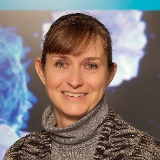
Lindsay Tomlinson, DVM, DVSc, graduated from the Ontario Veterinary College in Guelph, Ontario, Canada in 1995 and 1999, for her respective degrees. Lindsay researched and defended her thesis on chlamydial disease in sheep in the DVSc program and now serves on INHAND for female reproductive pathology. Lindsay has more than 23 years of toxicologic pathology and project experience between Bristol-Myers Squibb (BMS) in New Brunswick, NJ and Pfizer Inc. in Cambridge, MA. She is board certified with the American College of Veterinary Pathologists (ACVP) in anatomic and clinical pathology and with the American Board of Toxicologists (ABT) in toxicology. Her current position at Pfizer is Global Pathology Scientific and Strategic Advisor. In Lindsay’s current role, she is supporting development of mRNA vaccines, managing the evolution of digital pathology, including artificial intelligence in pathology in a toxicologic setting to assist pathologists, and supporting efforts in the development and incorporation of complex in vitro models into the standard testing paradigm.
Weida Tong, PhD, Director, Division of Bioinformatics & Biostatistics, National Center for Toxicological Research, US FDA
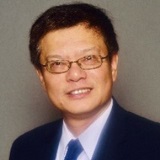
Dr. Weida Tong is Director of the Division of Bioinformatics and Biostatistics at FDA’s National Center for Toxicological Research (NCTR). His role is to apply bioinformatics, Artificial Intelligence (AI), molecular modeling and data analytics for biomarker discovery, drug safety and repurposing, pharmacogenomics, toxicogenomics, and precision medicine. Dr. Tong has published over 300 peer-reviewed papers and book chapters.
Ching-Hsuan Tsai, PhD, Director, Discovery Technologies, Relay Therapeutics, Inc.

I am currently Director of Discovery Technologies at Relay Therapeutics, where I lead a group focused on advancing DNA Encoded Library screening to enable the discovery of novel chemical matter via Machine Learning. Prior to joining Relay, I worked at GlaxoSmithKline, where I spearheaded efforts to enable functional DEL screening, DEL screens for lead discovery programs, and the application of DEL for targeted delivery.
Olesya Ulanovskaya, PhD, Senior Director, Biology, Belharra Therapeutics
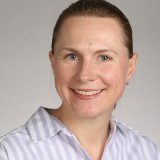
Olesya Ulanovskaya is Senior Director of Biology at Belharra Therapeutics supporting early discovery efforts and target validation. Before joining Belharra, Olesya was at the Lundbeck La Jolla Research Center where she served as a team lead applying chemoproteomic approaches to early-stage discovery programs in the neuroinflammation space. Prior to Lundbeck, Olesya was at Abide Therapeutics validating novel drug targets and developing covalent serine hydrolase inhibitors for immunology and oncology programs. Olesya received her PhD degree in Chemical Biology at the University of Chicago and did her post-doctoral research at the Scripps Research Institute.
Henry Valle, Customer Support Specialist, CAS
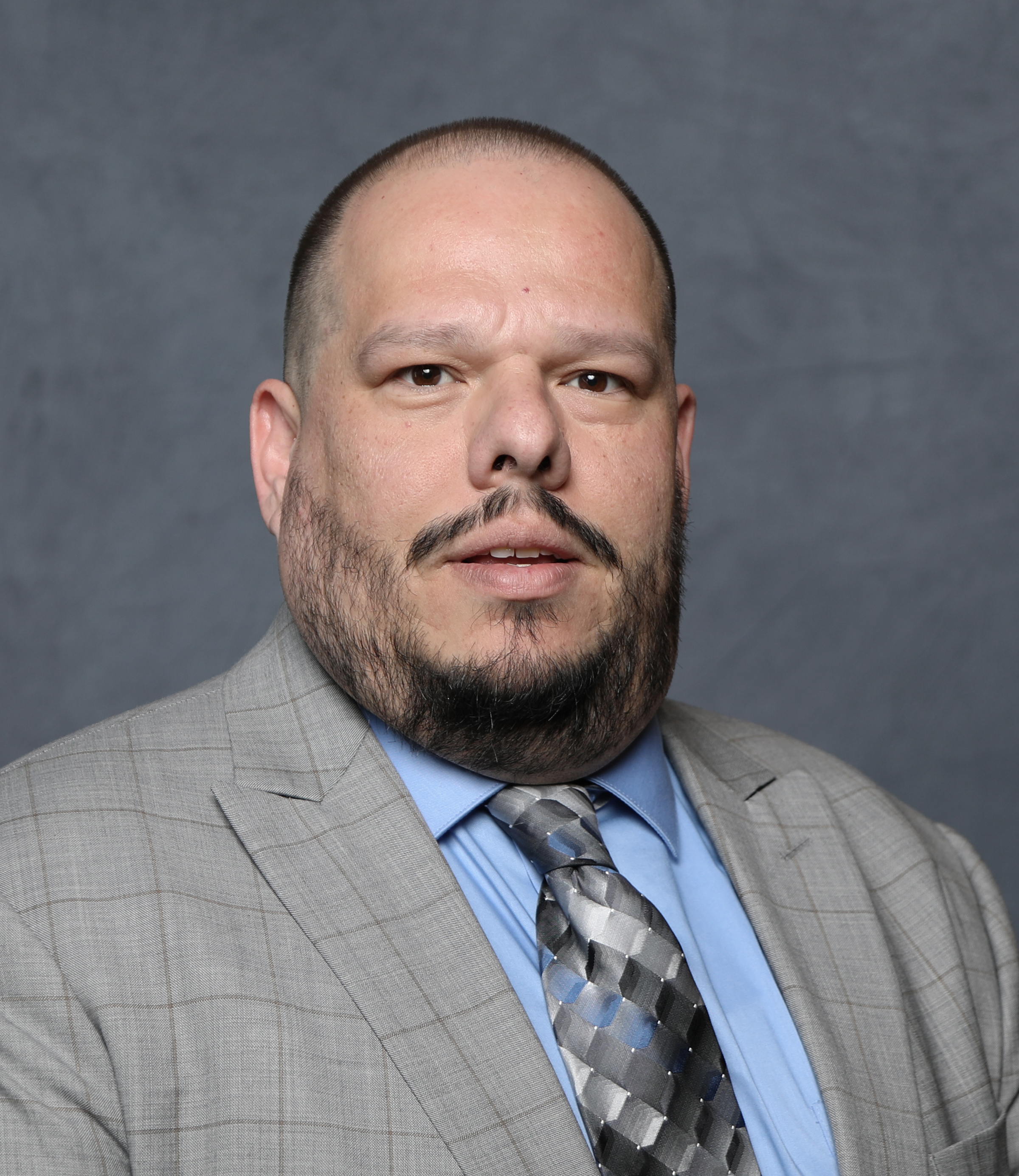
Dr. Henry U. Valle's academic and professional journey is rooted in inorganic chemistry and small molecule X-ray crystallography, emblematic of his unwavering commitment to the pursuit of scientific excellence. He holds a Bachelor of Science in biochemistry and a Ph.D. in inorganic chemistry. Since then, his research has focused on C-H activation, photocatalysis, Micro Electron Diffraction (MicroED), and small molecule X-ray crystallography before joining CAS as a Customer Success Specialist. His specialization extended to CAS SciFinder and the entire suite of CAS Solutions, showcasing his ability to translate his expertise into providing substantial value to the scientific community.
Noteworthy Accomplishments:
Exhibits profound expertise in the domains of Synthetic Inorganic/Organic and Coordination Chemistry.
Recognized for his exceptional ability to surmount intricate data processing challenges within the realm of SXRD Crystallography, Inorganic Coordination Chemistry, Photocatalysis, Synthetic Chemistry, and C-H Activation, consistently pushing the boundaries of scientific possibility.
Dmitry Veprintsev, Professor of Molecular & Cellular Pharmacology, University of Nottingham; Co-Founder and CEO, Z7 Biotech Ltd.
.tmb-0.jpg)
Dmitry is Professor of Molecular and Cellular Pharmacology at the Centre of Membrane Proteins and Receptors (COMPARE), University of Nottingham. Dmitry provides leadership in structural and biophysical pharmacology of G protein coupled receptors. Following a PhD in protein folding at the Russian Academy of Sciences and at the Ohio State University, USA, he joined the MRC Centre for Protein Engineering and later at the RC Laboratory of Molecular Biology in Cambridge, UK as a postdoctoral fellow and as a staff scientist, on the biophysical studies of the tumor suppressor p53. In 2010 he became a group leader at the Paul Scherrer Institute and ETH Zürich in Switzerland where focused his research on G protein-coupled receptors (GPCRs). In 2017 Dmitry joined COMPARE, a joined venture between the University of Birmingham and the University of Nottingham. In 2021 he co-founded Z7 Biotech, a CRO developing and providing innovative GPCR drug screening and precision pharmacology services.
JIAQUAN WU, General Manager, Biortus

Jiaquan Wu has been the General Manager of Biortus, a leading structural biology service provider for drug discovery, since 2013. Prior to Biortus, he led the assay and screening team at AstraZeneca Boston Oncology Discovery. Jiaquan did his post-doc training at Brown University under the guidance of Prof. Davide Cane. He graduated from Prof. Peter Tonge's laboratory at Stony Brook University with a Ph. D degree in chemistry.
Yuan Wang, PhD, Head of Research Analytics, UCB Pharma
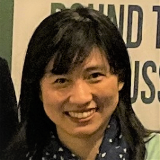
Dr. Wang is heading Research Analytics of UCB Pharma’s Data and Translational Sciences department, based in Cambridge, MA. In her current role she brings computational analytics and data strategy to tackle challenges in novel chemical biology and therapeutic modality in severe diseases. Prior to joining UCB she was working for Novartis Institutes for Biomedical Research in Cambridge, MA, and F. Hoffman La Roche in Basel, Switzerland.
Yaqiang Wang, PhD, Principal Scientist, Chemical Sciences & Structural Biology, Arrakis Therapeutics
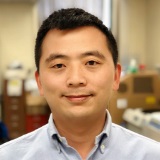
Dr. Yaqiang Wang is a Principal Scientist in Structural Biology at Arrakis Therapeutics. Yaqiang received postdoctoral training at University of California Los Angles after his PhD at University of North Carolina at Chapel Hill. His work focuses on the characterization of RNA structure and recognition with molecular partners.
Yuqi Wang, PhD, Senior Scientist, Biotherapeutics and Genetic Medicine, AbbVie
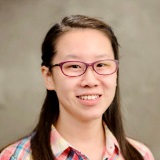
Yuqi earned her PhD from the University of Michigan and joined AbbVie in 2021. As a key member of the Biologics Discovery team, she has focused on therapeutic antibody discovery and engineering. At AbbVie, Yuqi collaborates with cross-functional project teams to swiftly develop antibodies that are free of liabilities and exhibit excellent drug-like properties. Her specialized expertise in constructing antibody fragment and mimetic libraries and selecting hits using advanced in vitro display technologies-including yeast and phage display-has been crucial in the successful identification and optimization of therapeutic leads.
Christopher Wassif, PhD, Director, Molecular Engineering & Antibody Technologies, AstraZeneca

Dr. Christopher Wassif has a wide breadth of knowledge having spent 27 years working at the National Institutes of Health, Bethesda, USA in the fields of Genetics, Rare Diseases, Biomarker discovery/validation, and high throughput small molecule screening. With 90 plus peer reviewed manuscripts and multiple book chapters he is a well-respected leader in multiple fields of research. In 2022, Dr. Wassif transitioned to AstraZeneca as Director of Molecular Engineering and Antibody Technologies and global lead for the Machine Learning for Antibody and Biologics (MLAB). In his current role he leads a dynamic team of scientist converging the powers of AI/ML to facilitate and accelerate biologic discovery.
Marla Weetall, PhD, Senior Vice President, Pharmacology and Biomarkers, PTC Therapeutics
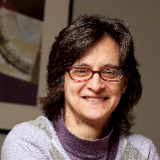
Dr. M. Weetall has worked in the pharmaceutical/ biotechnology industry for more than 25 years, first at Sandoz/ Novartis and now at PTC Therapeutics, Inc. She is the Vice President of Pharmacology and Biomarkers at PTC Therapeutics and has contributed to the discovery and development of a range of compounds that have gone into the clinic including risdiplam. With a strong-interest in PK-PD she has worked to utilize PK-PD early in discovery to shorten the time for the drug discovery process. This also includes the identification of potential clinical biomarkers in the preclinical drug discovery process than can be utilized early in Clinical Development to demonstrate proof-of-concept. She is the author of more than 60 peer-reviewed papers and included as a contributor on more than 30 patents.
Wanlei Wei, PhD, Research Associate, Computer-Aided Drug Discovery, National Research Council Canada
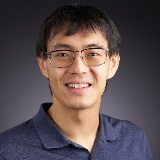
Wanlei is currently a postdoctoral research fellow at the Human Health Therapeutics Research Center at the National Research Council Canada, located in Montreal, Canada. In this role, he develops and employs computational tools for antibody engineering. Before working in the antibody space, he worked on computer-aided drug design of small molecule inhibitors against RNA, force field development, and computational enzymology. To date, he has published more than a dozen papers in computational chemistry.
Ron Weiss, PhD, Professor, Biological Engineering, Massachusetts Institute of Technology
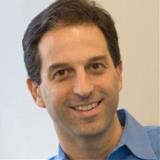
Ron Weiss is Professor in the Department of Biological Engineering and in the Department of Electrical Engineering and Computer Science at the Massachusetts Institute of Technology, and is the Director of the Synthetic Biology Center at MIT. Professor Weiss is one of the pioneers of synthetic biology. He has been engaged in synthetic biology research since 1996 when he was a graduate student at MIT and where he helped set up a wet-lab in the Electrical Engineering and Computer Science Department. After completion of his PhD, Weiss joined the faculty at Princeton University, and then returned to MIT in 2009 to take on a faculty position in the Department of Biological Engineering and the Department of Electrical Engineering and Computer Science. The research pursued by Weiss since those early days has placed him in a position of leadership in the field, as evidenced both by publications from his lab as well as a variety of awards and other forms of recognition. He pursued several aspects of synthetic biology, including synthesis of gene networks engineered to perform in vivo analog and digital logic computation. The Weiss lab also published seminal papers in synthetic biology focused on programming cell aggregates to perform coordinated tasks using engineered cell-cell communication with chemical diffusion mechanisms such as quorum sensing. Several of these manuscripts were featured in a recent Nature special collection of a select number of synthetic biology papers reflecting on the first 10 years of synthetic biology. While work in the Weiss lab began mostly with prokaryotes, during the last 5 years a majority of the research in the lab shifted to mammalian synthetic biology. The lab focuses both on foundational research, e.g., creating general methods to improve our ability to engineering biological systems, as well as pursuing specific health related applications where synthetic biology provides unique capabilities.http://groups.csail.mit.edu/synbio/
Adrian Whitty, PhD, Associate Professor, Department of Chemistry, Boston University

Dr. Whitty is Associate Professor in the Department of Chemistry, Boston University, where he joined the faculty in 2008. He spent the previous 14 years at the biopharmaceutical company Biogen, most recently as Director of Physical Biochemistry, where he led a group responsible for the structural, biophysical, and mechanistic study of drug targets and of protein and small-molecule drug candidates. He obtained a BSc in Chemistry at King’s College, University of London, and a PhD in Organic Chemistry at the University of Illinois at Chicago, after which he performed postdoctoral work at Brandeis University with Professor William P. Jencks FRS before joining Biogen in 1993. A major focus of his current research is the development of approaches for the discovery of small-molecule inhibitors that block protein-protein interactions, and especially the use of macrocycles and cyclic peptides. A second area of research is the quantitative analysis of activation and signaling mechanism of growth factor receptors, primarily using as a model system the receptor tyrosine kinase RET.
Ming-Ru Wu, MD, PhD, Assistant Professor, Department of Cancer Immunology and Virology, Dana-Farber Cancer Institute, Harvard Medical School

Ming-Ru Wu is an Assistant Professor in the Department of Immunology at Harvard Medical School. Ming-Ru received his M.D. from Tzu Chi University in Taiwan. He obtained his Ph.D. in Microbiology and Immunology from Dartmouth College in 2015, where he developed several natural killer cell receptor-based chimeric antigen receptor (CAR)-T cells, bispecific T cell engagers (BiTEs), and tumor-targeting nanoparticles. He performed postdoctoral research at the Synthetic Biology Center at MIT, where he developed cancer-targeting gene circuits and high-throughput cell state-sensor engineering methods. He joined Dana-Farber Cancer Institute and Harvard Medical School in 2019, where he is primarily focusing on harnessing the tools and design principles of synthetic biology to develop cell- and gene circuit-based cancer immunotherapy.
Peng Wu, PhD, Professor, Chemical Physiology, Scripps Research Institute

Peng Wu is a Professor in the Department of Molecular Medicine. Before joining the faculty at TSRI, Peng was an Associate Professor of Biochemistry and the Scientific Director of the Chemical Biology Core Facility at Albert Einstein College of Medicine, New York. The research in the Wu laboratory integrates synthetic chemistry with glycobiology to explore the cellular and molecular mechanisms that control immune responses toward cancer and human pathogens. His recent awards include: 2020 Horace S. Isbell Award, Division of Carbohydrate Chemistry, American Chemical Society, 2021 Horizon Prize (Robert Robinson Award in Synthetic Organic Chemistry), the Royal Society of Chemistry (with the teams of K. Barry Sharpless, Jeff Kelly, John Moses, Jianmei Lu, Dennis Wolan, Bruce Hammock and Han Zuilhof) and 2021 Glycobiology Significant Achievement Award, the Society for Glycobiology.
Rui Wu, PhD, Senior Vice President, Head of Research & Preclinical, Chief CMC Officer, Graviton Bioscience
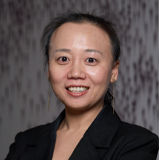
Dr. Rui Wu has a PhD in biochemistry and extensive experience in biomedicine and neuroscience research as well as business development. Dr. Wu joined Graviton at its inception and worked closely with Dr. Waksal from acquisition of the first and foundational asset through all stages of therapeutic development for use in clinical trials. Before Graviton, Dr. Wu was Senior VP of preclinical research and CMC operations at équilibre Biopharmaceuticals, where she guided the program through the preclinical, formulation development and manufacture stages. As a PhD student, Dr. Wu was part of the team led by Richard Silverman that developed second-generation Lyrica, CPP-115, an anti-epilepsy drug that was acquired by Pfizer, where it is now under clinical development. She was also part of the team led by Dimitri Krainc and Peter Lansbury that explored the use of activators targeting ß-glucocerebrosidase in the treatment of Gauche disease and Parkinson's disease, which led to the establishment of Vanqua Bio. In her postdoctoral studies, Dr. Wu developed a novel method that allows high-throughput screening of small molecules for non-enzymatic targets, a method that was acquired by MeiraGTx, where she now heads the small-molecule drug discovery division.
Nicholas R. Wurtz, PhD, Associate Director, Discovery Chemistry, Bristol Myers Squibb Co.
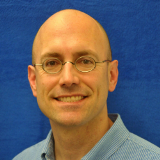
Nick attended Grinnell College in Iowa, where he graduated with honors in Chemistry and German. After working at a startup combinatorial chemistry company in Durham, North Carolina, Nick began graduate studies at the California Institute of Technology, where he studied molecules that bind the minor groove of DNA and regulate gene expression in Professor Peter Dervan’s group. Afterwards, he moved to Switzerland to complete postdoctoral studies at ETH Zurich with Professor Erick Carreira working on the total synthesis of Amphotericin B analogues. For the past 20 years, he has worked at Bristol Myers Squibb in the cardiovascular chemistry department, where he has investigated targets that include Factor VIIa, Myeloperoxidase, LXR, RXFP1, and FPR2. Nick lives in Pennington, New Jersey, with his wife and 3 children where he enjoys raising chickens, gardening, hiking, and training for triathlons.
Yan Xiong, PhD, Instructor, Laboratory of Dr. Jian Jin, Pharmacological Sciences, Icahn School of Medicine at Mount Sinai

Dr. Yan Xiong is currently an assistant professor in the department of Pharmacological Sciences at Icahn School of Medicine at Mount Sinai. He is an experienced medicinal chemist and chemical biologist with >10 years focusing on small-molecule drug discovery. Dr. Xiong is interested in discovering novel heterobifunctional small molecules targeting cancer, selective inhibitors of histone methyltransferases, and biased ligands of G protein-coupled receptors. Dr. Xiong received a Bachelor’s of Science in applied chemistry from Tongji University, China, in 2006, and a PhD in organic chemistry from Chinese Academy of Science in 2012. After that, he joined Dr. Jian Jin's lab for postdoctoral training at the University of North Carolina at Chapel Hill. In 2022, Dr. Xiong was promoted to assistant professor at Mount Sinai.
Hua Xu, PhD, Director, Mechanistic Biology & Profiling, AstraZeneca
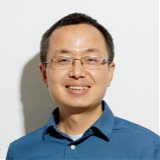
Hua Xu received his PhD in Chemistry from Stony Brook University. After conducting his post-doctoral research at Albert Einstein College of Medicine, he joined Pfizer in 2013, and later received ACS Young Investigator Award in 2016. He led the chemical biology efforts for a number of Pfizer’s drug discovery programs in several therapeutic areas, such as immunology and inflammation, rare diseases, and cardiovascular & metabolic diseases. Hua then worked as Associate Director of Chemical Biology at Cygnal Therapeutics from 2020 to 2021, and built the chemical biology platform to support small molecule drug discovery programs and facilitate target discovery. Hua currently leads a group at AstraZeneca that is responsible for mechanism of action studies and compound profiling for potency and selectivity in support of the oncology portfolio.
Ken Yamada, PhD, Associate Director, Global Discovery Chemistry, Novartis BioMedical Research

Ken Yamada is Associate Director of Frontier Chemistry at Novartis Biomedical Research in Cambridge MA. Ken obtained B.S. in chemistry at Brown University, M.S. in organic chemistry at UCLA, and PhD at University of Tokyo under guidance of Prof. Tohru Fukuyama. He has over 20 years of experience in drug discovery at Novartis and Yamanouchi (now Astellas) combined. Ken has contributed to and led small molecule projects leading to a number of development candidates and clinical stage molecules in cardiovascular, immunology and hematology indications. In the past decade, Ken’s research interests evolved around drugging the undruggables by combination of novel modalities and technologies. In particular, he was an early adaptor of TPD at Novartis and, to harness its full potential, spearheaded an internal incubator project that built microfluidic-based phenotypic DEL platform from ground up. Most recently, Ken is co-leading the efforts to leverage AI/ML to accelerate medicinal chemistry at Novartis.
Chris M. Yates, Executive Director, Head, Medicinal Chemistry, Rgenta Therapeutics
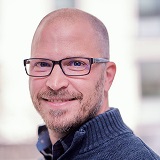
More than 20 years of medicinal chemistry and scientific leadership experience in pharma and biotech across multiple therapeutic areas and small molecule modalities. Experience directing activities throughout all stages of drug discovery and early-stage drug development in the pharmaceutical industry contributing to over 50 publications and patents, multiple development candidates, 3 INDs, and 1 marketed drug.
Jessen Yu, Senior Director, Data Science, Valo Health

Jessen Yu is an Executive Director at Valo Health, where he leads the platform engineering group, comprising Data Science, ML, and Software Engineering teams. As a founder at Numerate Inc. and now at Valo, he brings over twenty years of experience at the convergence of machine learning, computational chemistry, and drug discovery. At his current role, he is focused on building reliable, trustworthy, scalable technologies that are enthusiastically used by real-world drug hunters.
Andrew Zhang, PhD, Director, Chemical Biology, AstraZeneca

Andrew Zhang is a Team Leader in the Chemical Biology Department at AstraZeneca. He joined AstraZeneca in 2013 with research interests in target deconvolution, particularly using chemical proteomics and orthogonal methods for identifying target engagement events and profiling selectivity. He is now leading the proteomics efforts around profiling the selectivity and mechanism of small molecule protein degraders. Andrew trained at the interface of chemistry and molecular and cell biology, obtaining a B.S. in Chemistry and a B.A. in Molecular and Cell Biology from the University of California, Berkeley, followed by Ph.D. studies with Professor David Spiegel at Yale University around small molecule immunomodulators. Prior to joining AstraZeneca, Andrew carried out postdoctoral trainings with the Drug Discovery Group at the Ontario Institute for Cancer Research (Toronto, Canada) with Dr. Rima Al-awar.
Tian Zhao, PhD, Vice President, R&D, OncoNano Medicine
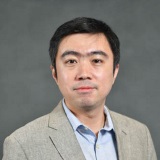
Tian Zhao, Ph.D., is an experienced translational research and development professional with broad experience in nanomedicine, cancer imaging and drug discovery. In this position, Dr. Zhao leads the strategic vision and tactical execution of the R&D team and is responsible for directing all phases of technical product development at the company. Previously, Dr. Zhao worked at UT Southwestern Medical Center and Texas Tech University. Dr. Zhao received a B.S. in Chemistry from Wuhan University, an M.S. in Chemistry from Texas Tech University and a Ph.D. from the University of Texas Southwestern Medical Center. He has authored more than 30 scientific publications resulting in more than 2400 citations. Dr. Zhao is also an inventor to the technologies licensed to OncoNano.
Haibin Zhou, PhD, Associate Research Scientist, Laboratory of Dr. Shaomeng Wang, Department of Hematology & Oncology, University of Michigan
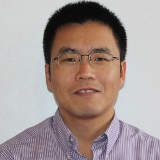
Haibin Zhou has focused on the modulating proteins associated with different types of tumors for the development of new cancer therapeutics. In the apoptosis pathways, modulation of Bcl-2 proteins by small-molecule compounds offers significant potential for the development of new therapies for cancers, but it has been proved extremely challenging due to large, shallow, and mainly hydrophobic interfaces between BCL-2 proteins. I have discovered a class of extremely potent and specific small-molecule inhibitors of Bcl-2 proteins with optimized in vivo pharmaceutical properties and clear on-target activity. One of the lead compounds now is in clinical trials for the treatment of SCLC and other solid tumors. I have also designed highly potent macrocyclic compounds targeting menin protein in epigenetics pathways, which laid a solid foundation for the discovery of compounds that pharmacologically inhibit the menin-MLL interaction as a promising therapeutic approach for patients with MLL-rearranged leukemia. Another important contribution is the discovery of a series of highly potent, specific small-molecule DCN1 inhibitors, which led to the unveiling of the biological function of DCN1 protein in selectively regulating the neddylation of cullin 3 over neddylation of other cullin members. This finding may lead to novel therapeutics for human diseases associated with CRL3. Recently, I have focused on the design and synthesis of small molecular STAT3 degraders employing the proteolysis targeting chimera (PROTAC) technology. Below, I highlight publications, for which I serve as the first or co-first author. a. Zhou, H.; Lu, J.; Chinnaswamy, K.; Stuckey, J.A.; Liu, L.; McEachern, D.; Yang, C.-Y.; Bernard D.; Shen, H.; Rui, L.; Sun, Y.; Wang S.: Selective inhibition of cullin 3 neddylation through covalent targeting DCN1 protects mice from acetaminophen-induced liver toxicity Nat Commun 2021, 12: 2621. b. Zhou, H.; Bai, L.; Xu, R.; Zhao, Y.; Chen, J.; McEachern, D.; Chinnaswamy, K.; Wen, B.; Dai, L.; Kumar, P.; Yang, C. Y.; Liu, Z.; Wang, M.; Liu, L.; Meagher, J. L.; Sun, D.; Stuckey, J. A.; Wang, S. Structure-based discovery of SD-36 as a potent, selective and efficacious PROTAC degrader of STAT3 protein. J. Med. Chem. 2019, 62 (24), 11280-11300. c. Bai, L.; Zhou, H. (co-first author); Xu, R.; Zhao, Y.; Chinnaswamy, K.; McEachern, D.; Chen, J.; Yang, C. Y.; Liu, Z.; Wang, M.; Liu, L.; Jiang, H.; Wen, B.; Kumar, P.; Meagher, J. L.; Sun, D.; Stuckey, J. A.; Wang, S. A Potent and Selective Small-Molecule Degrader of STAT3 Achieves Complete Tumor Regression In Vivo. Cancer Cell 2019, 36 (5), 498-511. d. Zhou, H.; Lu, J.; Liu, L.; Bernard, D.; Yang, C.-Y.; Fernandez-Salas, E.; Chinnaswamy, K.; Layton, S.; Stuckey, J.; Yu, Q.; Zhou, W.; Pan, Z.; Sun, Y.; Wang, S., A potent small-molecule inhibitor of the DCN1-UBC12 interaction that selectively blocks cullin 3 neddylation. Nature Communications 2017, 8 (1), 1150.
Andrea Zuhl, PhD, Vice President, Chemical Biology & Proteomics, Hyku Biosciences, Inc.

Andrea Zuhl joined Hyku Biosciences in May of 2022. She is a skilled chemical biologist with over a decade of drug discovery experience using chemoproteomics to drive small molecule inhibitor development. Prior to joining the company, she was Chemoproteomics Team Lead in Discovery and Translational Proteomics at Bristol Myers Squibb. Previously, she was a Senior Scientist at AstraZeneca, responsible for small molecule target identification. She received her PhD in Chemistry and Chemical Biology from The Scripps Research Institute and completed a Postdoctoral Fellowship at Pfizer.
Christopher am Ende, PhD, Associate Research Fellow, Internal Medicine Medicinal Chemistry, Pfizer Inc.

Christopher W. am Ende is the Chemical Biology and Exploratory Project Synthesis lead in the Internal Medicine group at Pfizer. Chris received a BS in Biochemistry from the University of Delaware, conducting undergraduate research with Professor Neal J. Zondlo designing lanthanide-binding peptides. He then pursued his graduate studies at Stony Brook University working with Professor Peter J. Tonge where he developed slow, tight binding inhibitors of InhA, the enoyl reductase from M. tuberculosis, and under the direction of Kathlyn A. Parker, completed the first total synthesis of the natural product bisabosqual A. He has published >55 journal articles and patents, serves as a steering committee member for the New York Academy of Sciences Chemical Biology Discussion Group and was named American Chemical Society Young Investigator. Additionally, Chris is an Adjunct Assistant Professor of Chemistry at Connecticut College.
Dewald van Dyk, PhD, Associate Director, Biologics Engineering, AstraZeneca Pharmaceuticals LP

Dewald van Dyk is a Group Leader of Biologics Engineering at AstraZeneca Pharmaceuticals LP. He joined MedImmune/AstraZeneca in 2016. His research focuses on the generation of antibodies against pipeline targets including complex integral membrane proteins and other difficult targets using display platforms. He received his PhD training from the University of Stellenbosch, South Africa, and moved on to the University of Toronto, Canada, for post-doctoral training in phage-based antibody discovery, Fc engineering and lead optimization.
